
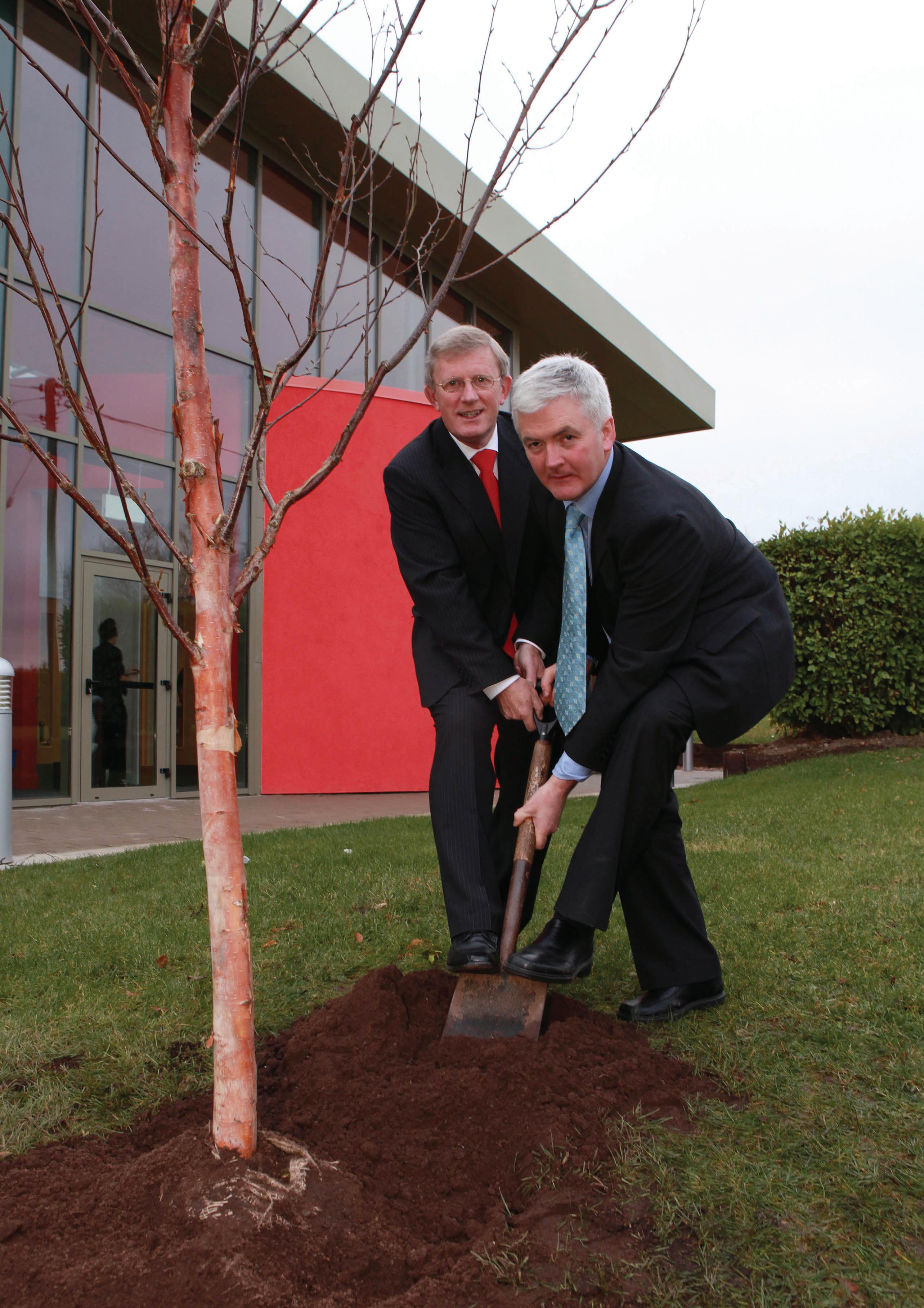





by Jim Hayes
It doesn’t feel that long – and certainly not twenty-five years - since a small group of primary school principals, driven by a shared vision for the future of leadership in primary education in Ireland, gathered to discuss the need for a dedicated voice for principal teachers. And yet, here we are, celebrating 25 incredible years since the founding of our professional association, IPPN. What an extraordinary journey it has been, in many respects.
From those nascent conversations, fuelled by passion and a deep understanding of the unique challenges and immense responsibilities faced by primary principals, our association was born. We recognised that while our individual schools were diverse, the core of our leadership roles, the dedication we poured into nurturing young minds, and the constant striving for excellence, were universal. We realised that what we needed was a platform to share, to advocate, and to inspire and empower one another.
Looking back, I’m immensely proud of what we’ve achieved together. We’ve gradually grown from a hopeful aspiration into a robust and influential force within the Irish educational landscape. We’ve
championed the needs of our pupils and schools, while tirelessly advocating for better supports, and ensured that the vital role of the primary principal is recognised and respected at every level. More importantly, we’ve fostered a vibrant community where principal teachers can connect, learn, and support each other through the triumphs and tribulations that define our demanding, yet rewarding profession.
This ePublication, marking our silver jubilee, is a testament to the enduring spirit of the Irish Primary Principals’ Network. It’s a chance to contemplate our journey, acknowledge the countless contributions of members, past and present, and to celebrate the impact we’ve had on primary education in Ireland. It’s
This ePublication, marking our silver jubilee, is a testament to the enduring spirit of the Irish Primary Principals’ Network. It’s a chance to contemplate our journey, acknowledge the countless contributions of members, past and present, and to celebrate the impact we’ve had on primary education in Ireland.
also an opportunity to look forward and to envision the next 25 years, and to recommit ourselves to the core responsibility of our role, that is, the children, the teachers, and the communities we so proudly serve in an ever-changing world.
Mo bhuíochas ó chroí le gach phríomhoide a chabhraigh agus a thaisteal linn in Líonra Phríomhoidí Éireann i rith cúig bliana agus fiche. Dhein sibh éacht! I dteannta a chéile is fearr sinn!
Your dedication to your schools, your amazing insights, and your unwavering commitment have made our network what it is today. May you continue to lead with courage, innovate with purpose, and inspire with passion for many more years to come.
Gura
fada buan sibh.
Jim Hayes Founding President
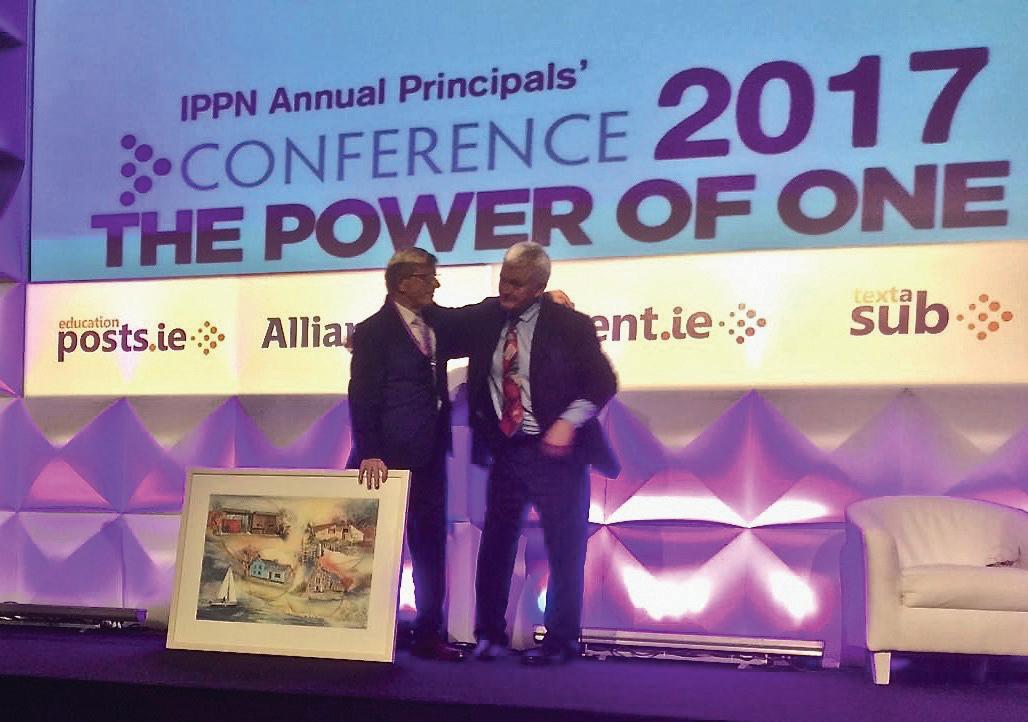
As the Presidents of IPPN spanning the 25th year of the organisation, we are delighted to bring you this commemorative ePublication marking 25 years of the Irish Primary Principals’ Network.
It is fair to say that we wouldn’t be here today if it wasn’t for the courage, perseverance and sheer hard work of the founding members and leaders from the early years. Their relentless advocacy for professional development and other supports for the very isolated role of principal bore fruit. It resulted in start-up costs and the secondment of our first director being provided to IPPN by the Department of Education by then Minister for Education Micheál Martin. The Taoiseach’s video message to IPPN for the principals’ conference in November this year is a testament to his early vision in getting behind what was then a fledgling organisation.
Some of you will recall Deich mBliana ag Fás, a reeling in the years-style overview of the first ten years of IPPN, published in 2010 to coincide with the 10th anniversary of the official launch of the organisation. This ePublication, Looking Back, Looking Forward: 25 Years of IPPN, aims to complete the picture to the present day, by recalling and commemorating the key people, milestones and achievements over IPPN’s 25year history. It also briefly describes the supports and services and advocacy projects currently underway and the strategic aims that will shape the organisation over the next five years.
In telling the story of the Network over the past quarter century, the project team – Geraldine D’Arcy, Catríona O’Reilly and Damian White - has
leaned on the leadership team, past presidents, members, key stakeholders, staff and ‘critical friends’ to share their perspectives on how IPPN has shaped school leadership and primary education, and in some cases, their own leadership experience.
Our sincere thanks to the project team and to all those who have contributed to this publication, and indeed to IPPN’s development over the years. There are too many to mention here, but we hope the following pages will give a flavour of all the work that has been done from the late 1990s to the present time to support and advocate for school leadership.
We hope that school leaders and the wider education community will enjoy reading and learning about IPPN’s journey over the past 25 years.
Le gach dea-mhéin,
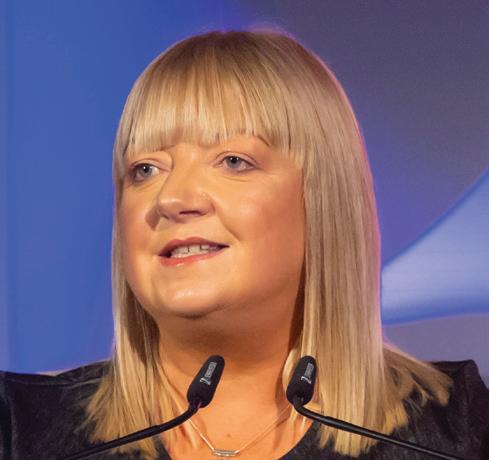
Louise Tobin
IPPN President 2023-2025
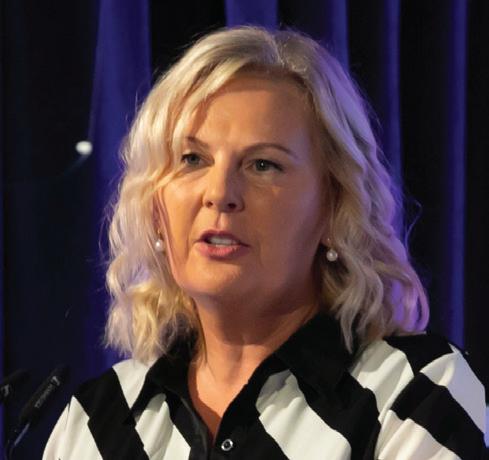
Deirdre Kelly
IPPN President, 2025-2027
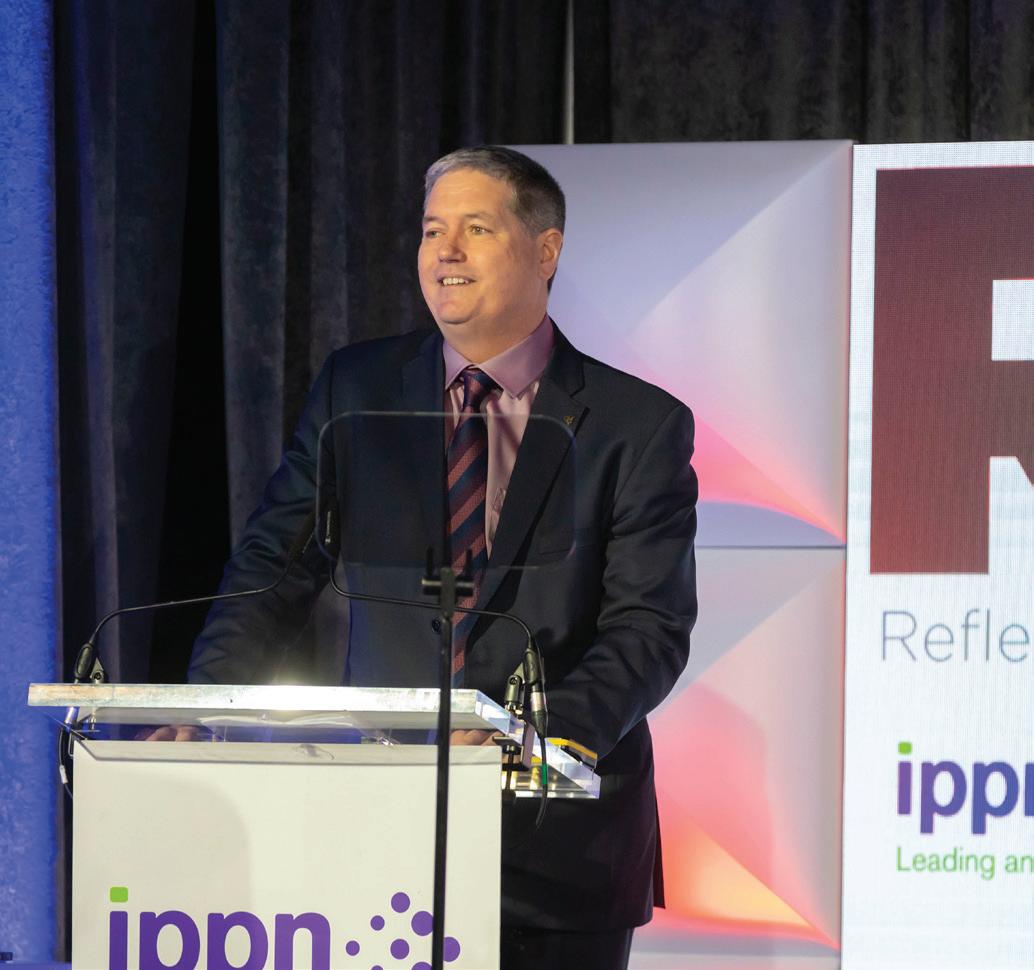
When I considered putting myself forward for the role of CEO in early 2017, I reflected on what I had gained as a school leader by my own school’s membership of IPPN from its inception, and I thought about what I could bring to it as a leader of leaders.
To me, this was relatively simple, and was based on two key things – positive collaboration with key stakeholders to achieve systemic change for school leadership, and empowerment of leaders themselves so they could set the agenda for their own schools with confidence. While it may have been simple as a concept, it hasn’t been easy to achieve in reality!
As a new school leader myself in 2001, I was founding principal of St. Patrick’s National School, Diswellstown in Dublin 15. They were different times, and role isolation was very real. Angela Lynch often says that no-one can do the job alone. This is so true. Ciarán Sugrue – now Emeritus Professor of Education in UCD) and Iggy Byrne, both principals in Dublin 15 at the time, had established a small network of local principals and invited me to join them. It was a game changer for me as a principal to have a group of peers to support me, and to whom I was later able to offer support. The value of networking has lived with me since and shapes how I see IPPN’s role to this day.
When I took on the role of CEO of IPPN, to say I was standing on the shoulder of giants is not an exaggeration. My predecessor Seán Cottrell remains to this day an inspirational leader of leaders, and those who established and developed IPPN alongside him left an incredible legacy upon which to build from that point on.
The past eight years have been challenging and energising in equal measure. The challenges facing school leaders and primary schools have been some of the most difficult I can recall, not least the COVID-19 pandemic. The close collaboration with our fellow education partners, largely owing to the establishment by the Department of Education in 2016 of the Primary Education Forum (PEF), meant that we could quite quickly identify the key issues facing schools, figure out a practical way to address those issues, get decisions made as quickly as possible and roll out guidance, supports and resources to schools. This would not have happened without the
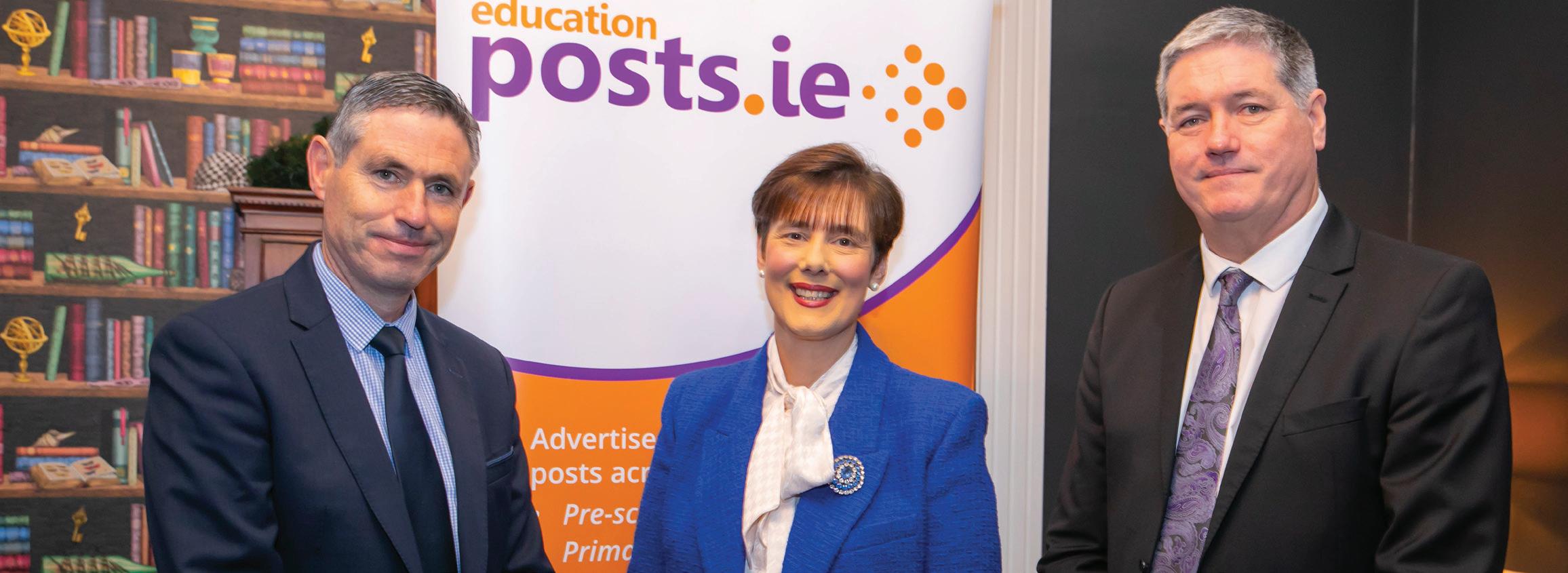
groundwork that had been laid by the DE (now DEY), the management bodies, union and professional bodies coming together to consider the impact on schools of sectoral change through the PEF.
On my years on the Board of Directors of IPPN, I was aware that the individual efforts of stakeholders were not having the collective impact that they could have if we worked together, and this was something that the Board and the IPPN Support Office team focused on as part of the 2016-2020 strategic plan. As CEO, I and my colleagues spent considerable time developing relationships with individuals in the DE, education agencies and with our fellow education partners from the PEF. We focused on those aspects of our work that aligned most closely with each other, and identified where a joint or common approach might work well. The trust and partnership built up over these earlier years have led to what is quite a close relationship now in 2025.
To further improve our approach to achieve systemic change, IPPN has focused on providing a rich evidence base in our projects, such as the ongoing work on the sustainability of the school leadership role led by Deputy CEO Brian O’Doherty who, as part of this work, engaged international experts Deakin University to undertake a longitudinal study on the health and welfare of principals and deputy
principals. The research on sustainable leadership and its conclusions and recommendations has been recognised by UNESCO in its GEM (Global Education Monitoring) Report in 2024 and by the European and International bodies representing school leaders. Having credible research makes a significant difference to achieving stakeholder buy-in for impactful change for schools and school leaders. As a result of this approach, there is now acceptance on the part of the DEY and stakeholders of the need for change and action to alleviate the unnecessary pressures on school leaders and Boards of Management. Centrally-funded pilot projects have been underway with clusters of small and larger schools around the country, looking at how skilled administration and compliance supports, and other innovative thinking such as clustered learning and professional development, can deliver positive change on the ground in schools, particularly where the schools themselves are empowered to shape how this is done.
Another tranche of our work over the past eight years has been on empowering school leaders with practical, workable approaches to their leadership and management role in schools. The development of the PIEW Capacity Management Framework is one significant project IPPN has been rolling out to school leaders and their leadership teams. PIEW
Ensuring that every school leader has access to our supports, services and guidance is important to IPPN.
facilitates schools to set their own change agenda by mapping out agreed priorities over a cycle of 4-6 years whereby priorities are identified and piloted, then implemented, then embedded, and other suggested change has to wait for an opportunity to review, pilot, and so on.
Another key development is the Guide to the Leadership of Teaching and Learning and the associated Leadership Reflection Framework, which has put shape on leaders’ core purpose in schools –leading teaching and learning.
Ensuring that every school leader has access to our supports, services and guidance is important to IPPN. While more than 95% of primary schools are members of IPPN, we reached out to the chairpersons of nonmember schools to highlight the responsibility each Board has to support their staff – in this case their school leaders – in their work. Membership of their professional body, IPPN, demonstrates that support very clearly to principals and deputy principals.
Over the past few years, we have focused on developing those crucial networks of support at a local level, to ensure that all principals and deputy principals who would like to engage with and participate in local support groups can do so, and also that they can avail of the support of a trained facilitator where needed. We plan to build on this work by developing peer mentoring of deputy principals using a train-the-trainer model.
This year, Damian White, Louise Tobin and I greatly enjoyed connecting with many hundreds of school
leaders during the IPPN 2025 Roadshow. As well as providing workshops on PIEW, we also celebrated 25 Years of IPPN with leaders in each county, paired leaders with local support groups and established new ones where needed. We are very grateful for the support provided by Education Centres around the country in this endeavour.
Another part of my role as CEO is building the IPPN Support Office team to meet the current and future needs of school leaders. I am supported in this work by our general manager Nora Peters and deputy CEO Brian. We are very proud of our team, which you can read about on page 26. Each and every one of our staff is a valuable asset and a leader in their own right. While most are not teachers or school leaders, their passion, their understanding and empathy, together with their can-do, skilled and professional approach means that IPPN delivers far more than the sum of its parts. I could not ask for more, but I probably will! The team will soon begin work on delivering the strategic plan for the period 2026 to 2030, building on the work done between 2021 and 2025. We are ambitious in our plans for the future and have a strong and clear vision for what we want to achieve with and for school leaders. You can read more about this on page 46.
IPPN – the network for principals and deputy principals - is truly blessed to have the staff, the leadership and the positive relationships with stakeholders to take us forward to 2030 and beyond. As Helen Keller said ‘Together, we can achieve so much’.
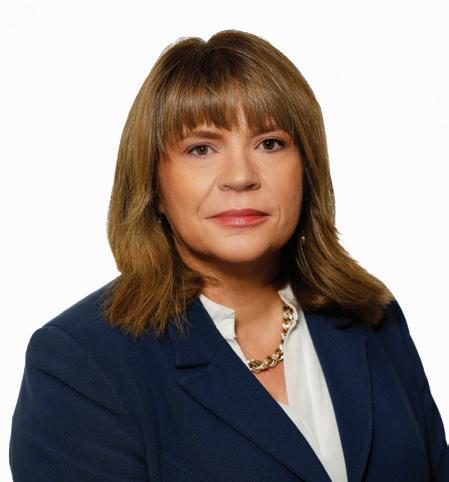
Bernie McNally Secretary General Department of Education & Youth
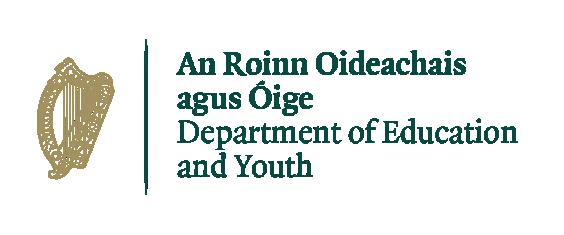
I would like to congratulate IPPN on its silver jubilee and acknowledge its stellar work over the last 25 years in representing the voice of leadership in our primary schools. From its early inception at the ‘Talking Heads’ conference in October 1994, to the official launch by the then Minister for Education and Science, Dr. Michael Woods TD, in 2000, IPPN has become a valued and important part of the educational landscape of this country.
Recognised as an official education partner, the Department has an excellent working relationship with IPPN – collaborating to support school leadership with today’s challenges and to develop school leadership for the future. The Department greatly benefits from the knowledge, experience and passion of wonderful school leaders across the country that IPPN taps into and shares with us. IPPN consistently brings evidence to the Department of the contribution such leaders make to generations of Irish schoolchildren, to our society and to our economy.
John F. Kennedy reminded us that leadership is not static and great leadership constantly seeks to improve; “leadership and learning are indispensable to each other”. IPPN has worked extremely hard, in conjunction with supports provided by Oide, to provide a continuum of high quality personal and professional development, support, coaching and mentoring, to school leaders that is relevant, robust and valued.
In ongoing engagement with the Department, IPPN provides valuable insight into the challenges facing school leadership and the lived experience in Irish primary schools today. IPPN’s work in this area, encapsulated in its sustainable leadership strategy, helps to provide a focus towards enhancing leadership capacity, effectiveness and sustainability.
The Department’s Statement of Strategy sets out our strategic objectives and prioritises working together with our partners, providing strategic leadership and support for the delivery of the right systems and infrastructure for the sector. This priority and Programme for Government commitments will see the Department looking more widely at school leadership and governance, both at primary and post primary level, to better support all school leaders and school communities. The early stages of this work have commenced.
I would like to thank and acknowledge IPPN’s work on the steering group of the Small Schools Project, and ongoing close collaboration with the Department on developing administrative supports for trialling in a number of schools in the coming school year. This is a great example of the positive and constructive approach that IPPN brings to the wider education system. I look forward to this continued close working relationship for many years to come. I wish IPPN every success for the next 25 years and beyond.

A 25th anniversary is something to be extremely proud of, whether it is a marriage, a business or an organisation as important as IPPN. It is celebrated with silver because that is a metal that represents durability, strength, and beauty. It is also believed to represent the strong sense of stability and warmth that a couple has developed after being together for 25 years of marriage.
Well, I am not sure if I can call an organisation beautiful, but it most certainly emanates beauty, and I believe the organisation has shown great durability and strength in weathering many a choppy water since its formation in 2000.
I only became aware of IPPN when I took over the role of Ombudsman for Children in early 2015, and I was delighted to meet with, the wonderful force of nature that is, Sean Cotterell. He laid out the long and arduous road along which the organisation had travelled to that point in order to get a proper network to work for, and highlight the work of, Principals and Deputy Principals across the Primary education sector. However, at that meeting he was speaking solely about how the role of the student now needed to be better supported and how their wellbeing needed to be put front and centre in schools across the country. He was certainly speaking my language there.
From there I was honoured to be invited to speak at IPPN’s hugely ambitious, and possibly risky, event which brought together both Primary and Post Primary Principals to learn about and discuss ‘Emotional Wellbeing – at the heart of school communities.’ This was Sean and IPPN
moving the dial forward by highlighting the importance of emotional wellbeing alongside academia in schools. He even managed to get An Taoiseach (Enda Kenny TD) to attend and speak on the day.
From that day forward, IPPN was to the fore in pushing for the wellbeing of the whole school community (all staff, students and parents) to be taken seriously and to be recognised as a crucial thread in the fabric of all schools across primary and post primary. They initiated the group, that became known as Wellbeing for All, which included what some would consider to be strange bedfellows – IPPN, NAPD, Teaching Council, National Parents Council and Ombudsman for Children. However, because of the uniqueness of this grouping it helped to push for improvements across the education system with regard to wellbeing and influenced the introduction of the Wellbeing Policy Statement and Framework for Practice through hosting various seminars and exhibitions of best practice from around the country.
From a child rights point of view, the education system of today is much more student focused than 10 years ago, and I am happy to say that the bravery of IPPN in pushing forward with that event in 2015 was the catalyst for same. I want to thank the great leaders across the 25 years of IPPN who have shown phenomenal commitment to their members and the students they work with and for. I wish you all another exciting and fruitful 25 years and look forward to seeing your further contributions to education over that time.
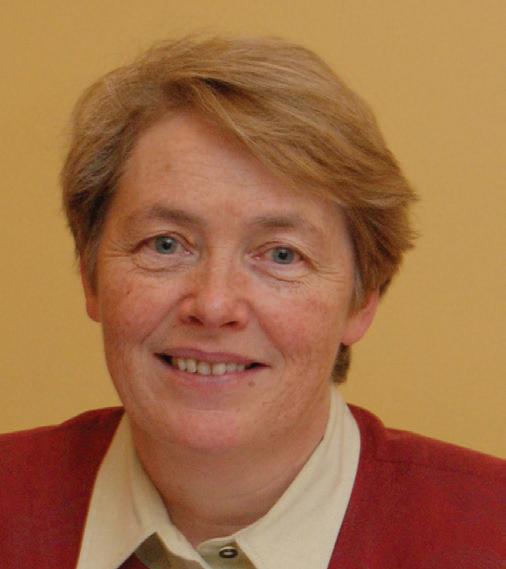
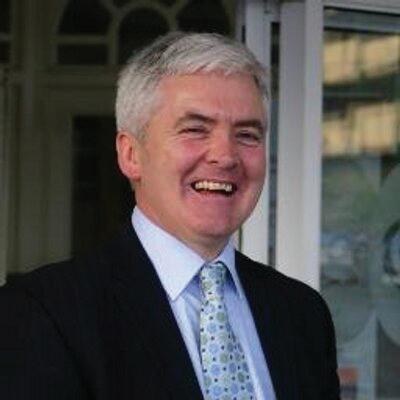
Caoimhe Máirtín
Seán Cottrell, a native of Innishannon and a graduate of St. Patrick’s College, Drumcondra, was appointed as first Director of IPPN in September 2000. Seán began his teaching career in Cobh and progressed to school leadership in Churchtown South, onwards to Little Island and afterwards to Glounthaune.
His teaching career included a teaching appointment in Djibouti, East Africa followed by his appointment as teacher trainer in Bhutan and in Tajikistan. On his return to Ireland, Seán worked as a facilitator on teacher education programmes, a representative on curricular advisory committees and a resource creator for principal teachers. Seán’s rich and varied educational experiences were an ideal pathway to his appointment as a leader of leaders in IPPN.
Seán spent seventeen years as Director of IPPN. His impact on carving and shaping a strong platform for the organisation and establishing a respected representative role for principals as key partners, co-creators and valued leaders in Irish society cannot be underestimated. Primary principals now have a real voice in policy formation and decision making and this is due in no small measure to Seán’s commitment and creativity, energy and enthusiasm, passion and persistence. In his early years as director,
Seán pursued his masterplan for IPPN, a vision that for some seemed unreachable but Seán saw no boundaries, no obstacles. His vision was always one of ‘is féidir linn’, a powerful vision that was Seán’s long before it acquired world leader prominence.
IPPN’s celebration of 25 years coincides with the reemergence of the band Oasis, no small coincidence perhaps when one reflects on IPPN’s first leader of the band! One of Seán’s inspiring moves as a newly appointed director was his bold vision for the big stage. His masterful establishment of annual conferences, his inability to think small, his packedout principal and deputy-principal venues and his inspired, simple but impactful theme titles, such as Quality Leadership <-> Quality Learning (2006), A Time for Fresh Thinking (2008), Our Children, Our Future (2011) – all proved to be memorable hits.
Seán Cottrell created an oasis of collegiality and support for principals and deputy principals at a
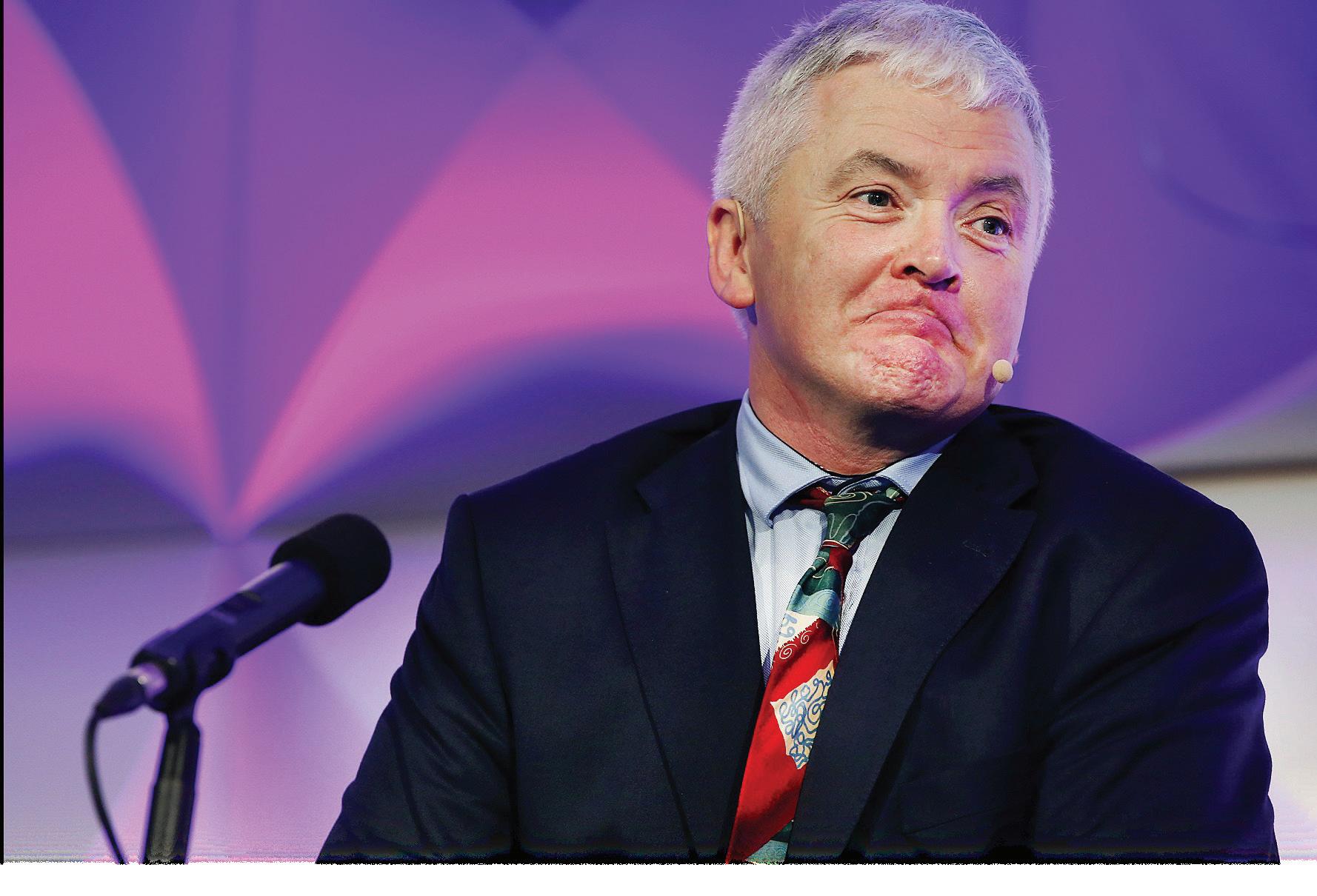
His impact on carving and shaping a strong platform for the organisation and establishing a respected representative role for principals as key partners, co-creators and valued leaders in Irish society, cannot be underestimated.
time when leadership in schools was undervalued, overdemanding, isolated and complex. His determined leadership was also at times unpredictable, radical, rebellious and roguish. Indeed, the titles of some of Oasis’ memorable hits epitomise Seán and his leadership style - ‘Wonderwall’, ‘The Masterplan’, ‘Definitely Maybe’ and ‘Born on a Different Cloud’.
Tháinig borradh agus bláthú ar Líonra Phríomhoidí Éireann le linn ré ceannródaíochta cróga, cumasach, cruthaitheach Sheáin Cottrell. Mar phríomhoide na bpríomhoidí, chaith sé i gcónaí go caoin agus go cneasta, go gairmiúil agus go gaoiseach, go híogair agus go hoscailte le ceannairí agus leas-cheannairí scoile. Mhisnigh agus spreag sé príomhoidí agus leas-phríomhoidí, go háirithe leis na deiseanna a chruthaigh sé dóibh trí Chomhdháil Bhliantúil IPPN chun teacht le chéile, ceisteanna a chíoradh, líonraí a
chruthú agus cairdis a bhunú. Tá príomhoidí aonair go mór faoi chomaoin ag Seán Cottrell as an tacaíocht a thug sé dóibh go ciúin, ciallmhar, tuisceanach, nuair ba ghá.
IPPN owes a huge debt of gratitude to its firstappointed director, Seán Cottrell. Seán created a big, bold vision for IPPN 2000. That vision underpins much of the work of IPPN 2025. Seán’s committed, caring and courageous leadership was deep-rooted in the essence of being a passionate Cork man and Cork GAA supporter. The crest on the Cork jerseys is the motto “Statio Bene Fida Carinis”, translated as ‘a safe harbour for ships’. Seán Cottrell captained the IPPN ship for 17 years and created a very safe and welcoming harbour for leaders and aspiring leaders. Tá comhluadar IPPN go mór faoi chomaoin agat, a Sheáin!
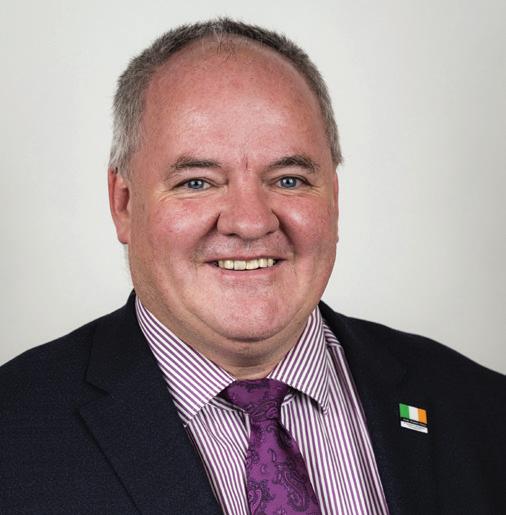
With 82 year-old Joe Biden stepping aside, making way for 78 year-old Donald Trump, one could be forgiven for thinking that a prerequisite for the role of President of any organisation - let alone the most powerful and influential democracy on Earth - involved being male, having thinning grey or glued-on hair, navy suits, and a predisposition for making crazy statements and apocalyptically misnaming fellow world leaders.
Those who achieve office have done so on the back of wild and costly campaigns, funded by super rich and influential donors and the backing of an assemblage of TV personalities, artists, musicians, sportspeople and innovators.
Presidency in Ireland has a slightly different role. For many years, the head of state was an experienced male politician, seeking to slip out of the maelstrom of regular politics into what appeared to be a somewhat charmed existence in the bucolic surrounds of Áras an Uachtaráin. There, bills would be signed into law, government ministers would be sealed into office and foreign dignitaries and diplomats would visit to pay respects to the host nation. Two powerful and influential ladies and an outspoken and articulate older man have altered that perception forever and while, constitutionally, the role is the same as always, and the president as an independent voice ensures proper separation of powers within the state, words spoken by the office holder are seen as significant and influential.
Presidency of a national organisation carries some ceremonial aspects, but the person chosen is usually selected on the back of several years of sincere devotion to the work and ideals of the organisation, and is seen in a positive light by members, confident that when they speak, they will do so on their behalf. Experience is essential, a track record is desirable and, while not stipulated within age ranges, the rising of many moons during the lifetime of the potential candidate will be seen as an advantage, though Trump or Biden, had they served as school principals, would long since have been ineligible on the basis of age for the role of IPPN President.
Over 25 years, IPPN has been excellently served by 12 Presidents, each for two years, with our founding President Jim Hayes serving a third year as a fledgling organisation left port and faced into the uncertain winds of the high seas. Each President came into the role having served IPPN and school leadership well, and embraced whatever challenges came their way during their term. Each brought expertise in different areas and generously shared the benefits of their knowledge with the executive and members.
Jim Hayes was an oasis of calm in the early days. He was a visionary who foresaw what the organisation could achieve and was instrumental in laying the foundations for what has become such a successful and influential voice in Irish education. His successor, Virginia O’Mahony was a calm and reassuring presence and highly capable negotiator whose capacity at the helm saw her rise afterwards to the Presidency of the International Confederation of Principals (ICP).
Tipperary’s Tomás Ó Slatara became the organisations third president and the first teaching principal to serve in the role. He was meticulous in the development of IPPN’s constitution and like both Virginia and his Offaly-born successor, Larry Fleming served time as editor of Leadership+. Larry led the development of several policy papers and IPPN press releases always had the mark of his skilled hand. He was one of the first Principals in Ireland to oversee the opening of an ASD Unit in his school and along with fifth President Pat Goff, who took his Wexford school on a similar trajectory, led IPPN’s input in all fora where special needs education was an area of increasing and necessary focus. His Presidency began as the Celtic Tiger economy collapsed and his calm and positive leadership saw IPPN through the dark days of the IMF and austerity. Pat would go on to serve as IPPN Deputy Director and has, for many years, served on the board of NCSE.
Louth’s Gerry Murphy, principal of a large Dundalk school was IPPN’s sixth president. He had a passion for equality of access for the underprivileged child and brought great focus onto DEIS supports for schools. He also developed very significant links with the National Association of Head Teachers (NAHT) in Northern Ireland through which several
inter-school visits were facilitated, with great success. His successor was Meath principal Brendan McCabe, whose presidency saw IPPN grow very strong links with the National Parents Council (NPC) and the development of a significant shared policy document.
Waterford’s Maria Doyle became President in 2015 and was a highly-skilled negotiator on IPPN’s behalf at Department level. She also brought great expertise to the development of proper Child Protection policy and procedures and led many principals in the necessary training as they oversaw the development of policies relevant to their own school’s needs. In addition, as President, she oversaw the transition from hugely influential IPPN CEO Seán Cottrell to his excellent successor Páiric Clerkin.
David Ruddy was next in the president’s chair. The Mayo-born barrister and Clondalkin-based principal was, and still is, amongst the most sought-after voices on school-related legal issues, with his regular columns in Leadership+ a must-read every time for school leaders.
I’ll leave others to judge the merits of his successor, yours truly, other than to say that, for more than three quartersof the two-year period, Ireland and the world faced the new reality of a global pandemic, so the moniker ‘Pandemic President’ has stuck! It was a time where everyone simply pulled together and supported schools and school leaders in the very best way we could.
My successor Brian O’Doherty will forever be associated with leading the way on the Sustainable Leadership Project, which has gained international attention for the detailed research and findings
As President, each has contributed enormously to IPPN and the wellbeing and support of school leaders.
which raise genuine concerns for the future of school leadership. Brian has since gone on to become IPPN’s Deputy CEO.
Tipperary Principal Louise Tobin led the organisation into its 25th year. Her passion has always been for equality of opportunity for all children and the proper designation of DEIS status for schools who need it. When Louise handed over the reins in September, it was to Sligo teaching principal Deirdre Kelly who has been, for many years, a constant voice for small schools and the wellbeing of school leaders.
As President, each has contributed enormously to IPPN and the wellbeing and support of school leaders. Nobody has mixed up Putin with Zelensky or threatened to take over Greenland from the Danes. Each has, however, agreed to an interview on their time in office, audio of which will be available through the IPPN website and E-scéal. I would encourage all school leaders to listen in.
Wisdom might never again be shared so freely.
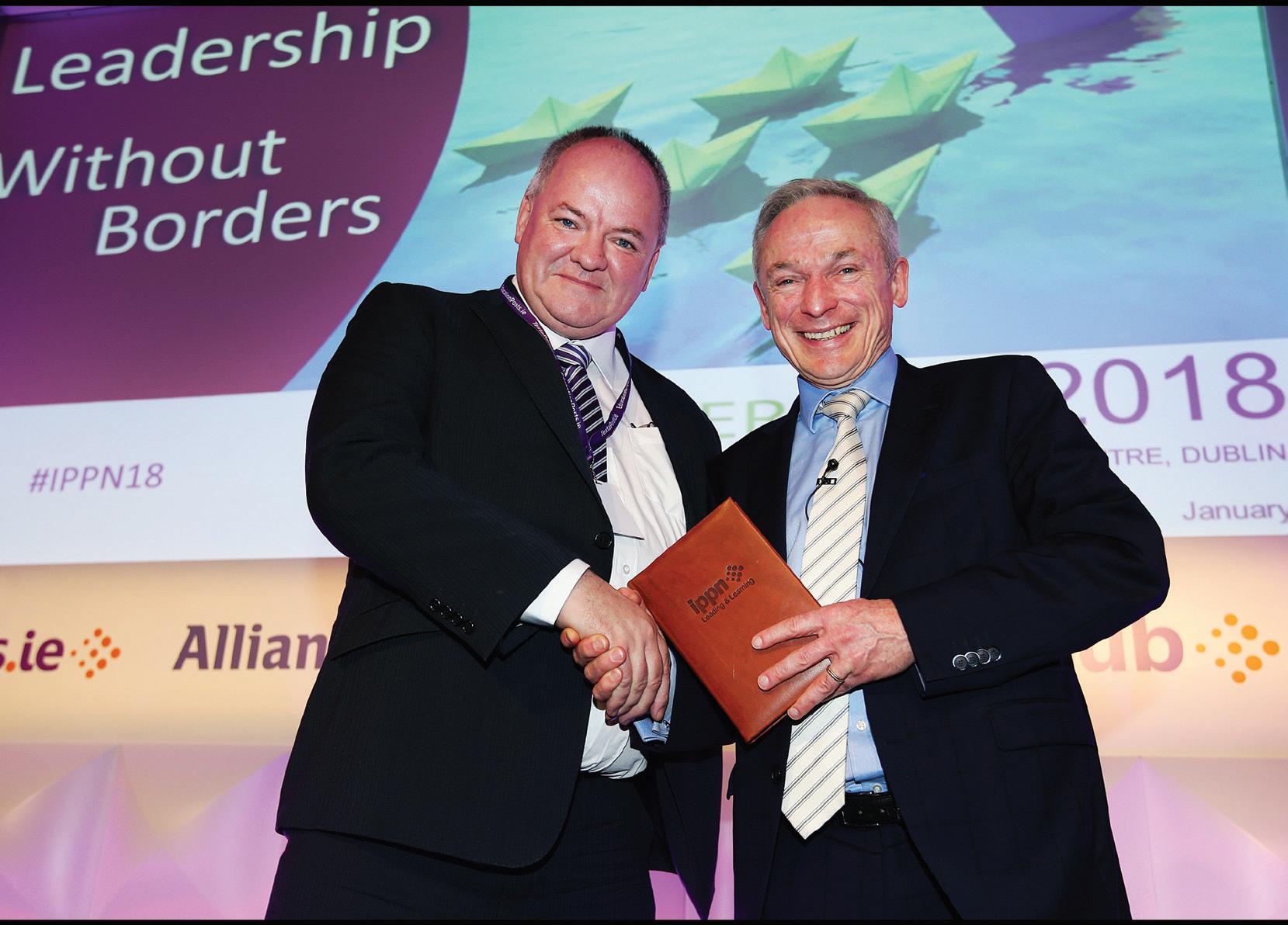
We have recorded interviews with our IPPN Presidents which provide a rich oral history of IPPN and can be accessed here.

Jim Hayes 2000-2003

Pat Goff 2009-2011
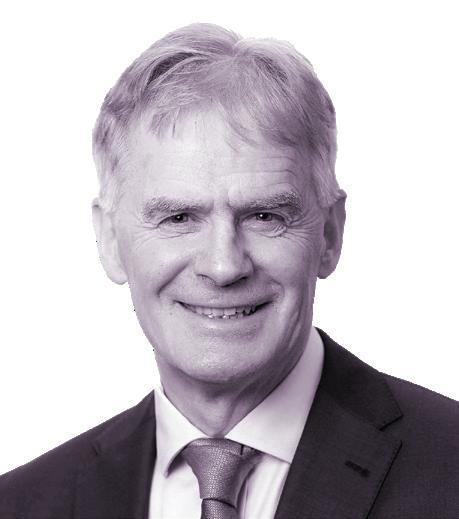
David Ruddy 2017-2019
2023-2025 VIEW INTERVIEWS HERE

2003-2005
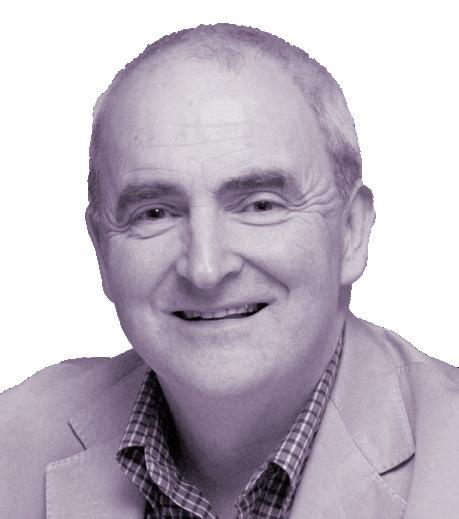
Gerry
2011-2013
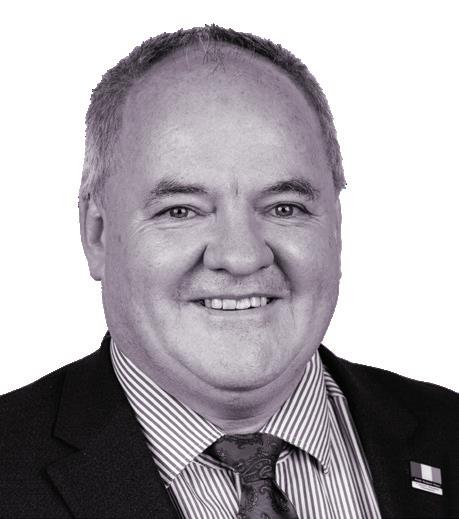
2019-2021



2013-2015
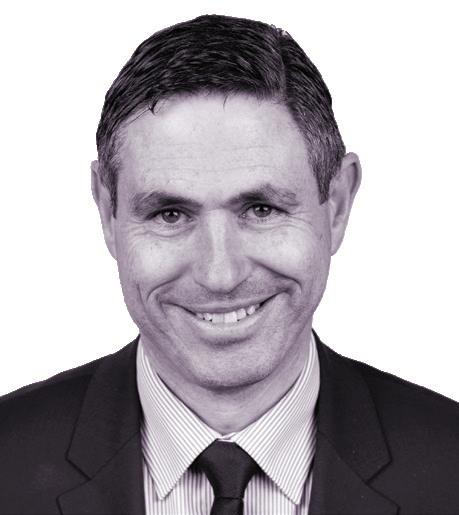
2021-2023
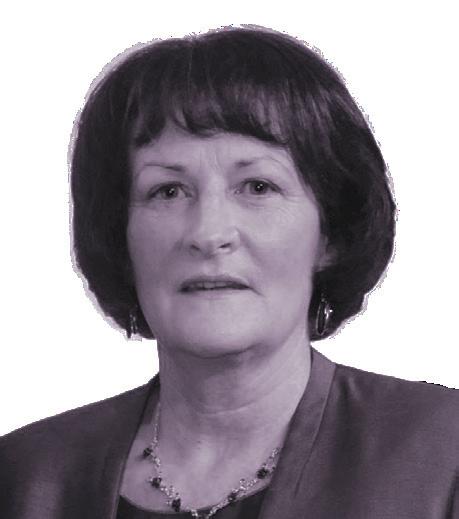
2015-2017
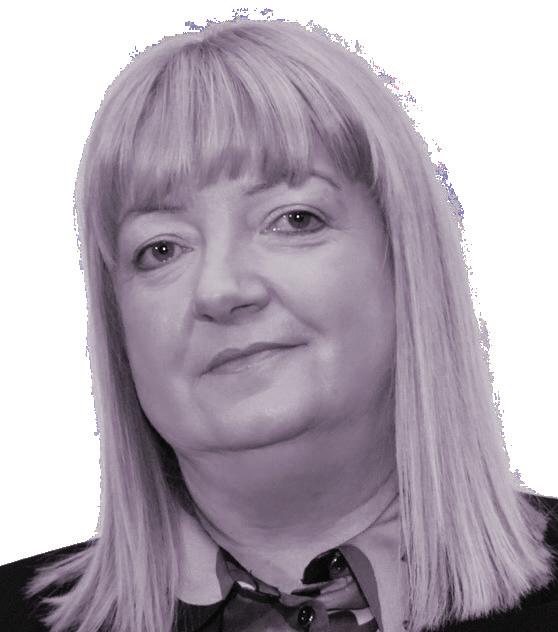

Yvonne Keating Chief Inspector
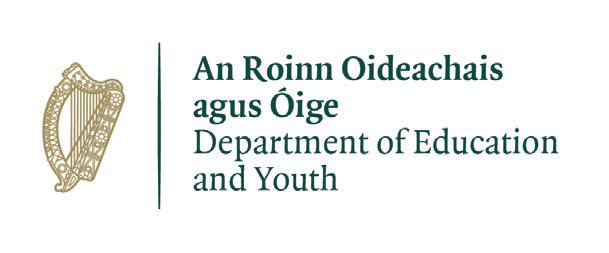
Since its formal establishment twenty-five years ago, the Irish Primary Principals’ Network (IPPN) has played a pivotal role in shaping and supporting primary education in Ireland. IPPN developed as an organisation from local school leadership groups in the 1990s and has become a key source of policy advice to the system, and a significant leadership resource for the primary sector. Its founding purpose to draw on the collective expertise and experience of school leaders remains central to its mission and has been consistently strengthened over time. As a representative of the collective voice of over 6,400 principals and deputy principals, IPPN brings valuable insight and leadership experience to the national education conversation.
IPPN has made significant strategic contributions to the work of the Department of Education and Youth and the Inspectorate over the years. These include its participation on national committees, policy working groups and curriculum development boards; and through membership of groups to address inclusion, special education, disadvantage and wellbeing.
Alongside its strong advocacy role for school leaders, IPPN offers a wide range of practical supports and professional development opportunities. These include city and county network groups, leadership programmes for both current and aspiring school leaders, and a variety of helpful resources for managing the day-to-day running of schools. Resources such
as A Guide to the Leadership of Teaching and Learning (2024), the Leadership Effectiveness Reflection Tool and the Leadership+ publication are designed to support professional growth and strengthen leadership across the primary education system.
The Inspectorate values the pivotal role IPPN plays in supporting the development of school communities, where effective leadership and a commitment to children’s wellbeing and learning are at the heart of practice. The Inspectorate has enjoyed highly collegial, co- professional relationships with successive IPPN leadership teams and constituent members over the years. This has resulted in many collaborations, interactions and conference presentations by Inspectorate members and IPPN representatives, to discuss topics and themes relating to the work of schools, school leadership and developments in provision for children and young people in schools.
IPPN has been a valuable consultation partner in the development of policies that support the Inspectorate’s work programme. We acknowledge the careful and constructive feedback IPPN has provided, over many years, in response to the Inspectorate’s proposals for updated quality frameworks, revised inspection models and approaches, development of advisory visits to schools and new formats for reporting.
In more recent times, the Inspectorate and IPPN, together, adopted a strong partnership approach to the development and implementation of arrangements for school self-evaluation (SSE), ensuring that approaches emphasised capacitybuilding and empowerment of the whole-school community. In addition, the support of IPPN was critically important when proposals for Child Protection and Safeguarding Inspection (CPSI) were developed and implemented in all schools from January 2019. This support helped to build a strong, shared commitment to ensuring that every child and young person can thrive in a caring, supportive and safe school environment.
as they guide curriculum developments, lead teaching and learning to address the needs of all students, and foster vibrant, thriving school communities.
As the landscape of primary education continues to evolve, the role of school leadership has never been more critical. Through its advocacy, professional learning supports and commitment to collaboration, IPPN remains a trusted partner in helping school leaders navigate change, lead with confidence and foster strong, inclusive school communities.
IPPN has played a key role in advancing the professionalisation of primary school leadership in Ireland, and its members can take justifiable pride in the organisation’s lasting contribution to the development of schools over the past twenty-five years. IPPN has played a significant role in shaping and supporting school leaders
The Inspectorate extends its warm congratulations to IPPN on its commemorative celebrations and wishes the organisation continued success in the years ahead. The strong, collegial partnership between the Inspectorate and IPPN has already proven valuable, and it holds great promise for further meaningful collaboration that can positively impact school communities across the country.
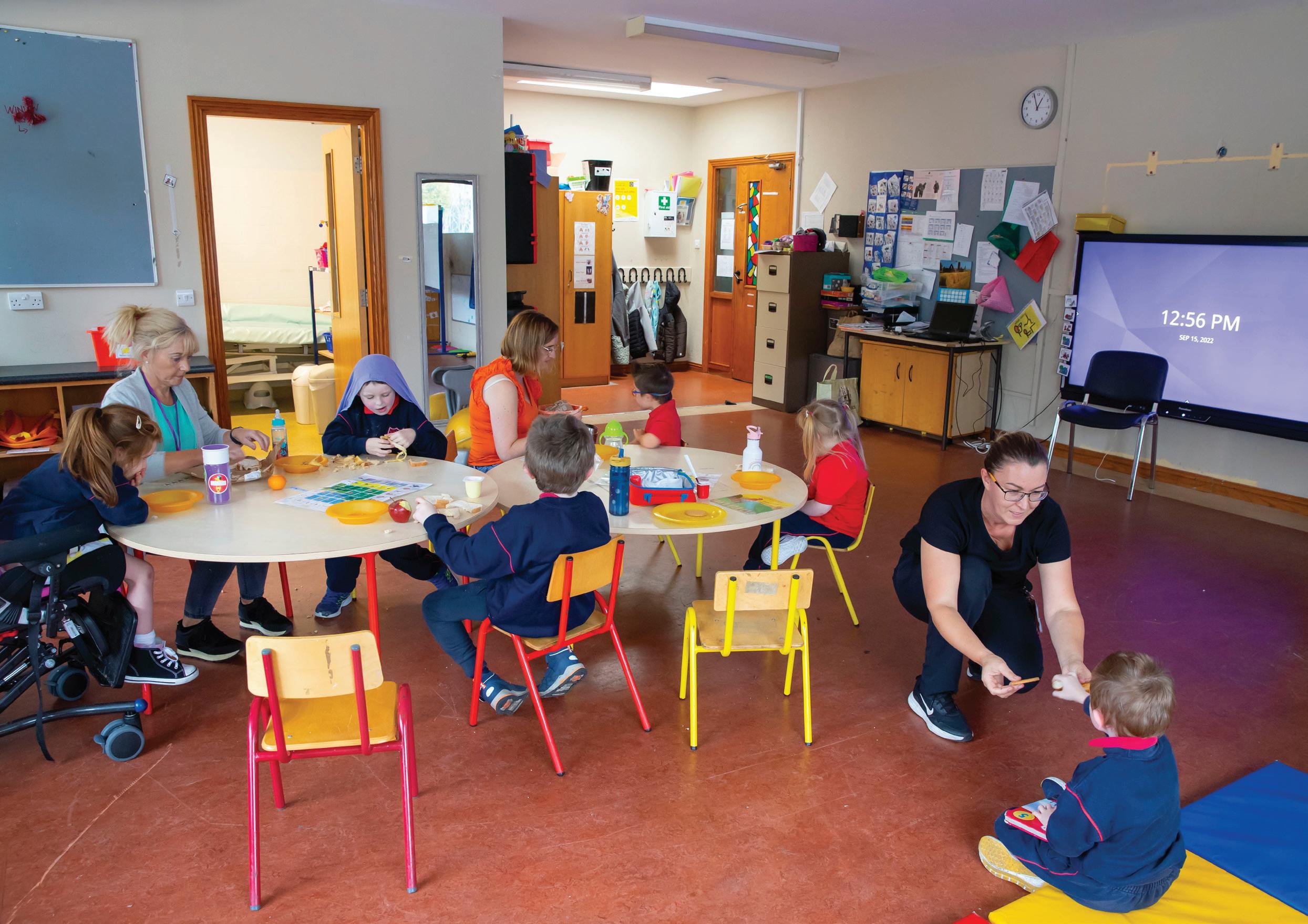
In line with the clearly-defined aims of the founding members of IPPN, all of the following has been achieved through IPPN’s consistent advocacy on behalf of and for school leaders over the past 25 years – through research, lobbying, position papers, submissions and publications, but mainly through the development of strong relationships with key stakeholders and offering well considered solutions to address the opportunities and challenges of school leadership.
n Building on the enthusiasm at the first-ever Irish Primary Principals’ Conference held in Cork in 1994 attended by 250 principals, the seeds of IPPN were sown and nurtured national network of primary school leaders was created in 1999, providing professional supports and services for principals
n The first invitation for a Principal (Ministerial) nominee to participate in a Department of Education policy group was received in 1999 – Jim Hayes, Principal of Scoil Oilibhéir, Ballyvolane, Cork was nominated by Mr Micheál Martin, Minister for Education & Science, to the Working Group on the Role of the Primary School Principal
n An official letter of recognition of IPPN was given to Jim Hayes, Raymond King and Tomás Ó Slatara by Minister Micheál Martin on January 19th
n The Irish Primary Principals’ Network was officially launched at Dublin Castle on 10th February by Minister for Education and Science, Michael Woods
n Leadership+ newsletter was launched in March 2000 to communicate key issues and professional guidance to school leaders.
n A Legal Diary has been written by David Ruddy and published in each issue of Leadership+ since 2000, examining the legal implications of school policies and practices
n Seán Cottrell, seconded from Glounthaune NS, Co. Cork, was appointed as first National Director of IPPN in July
n The Professional Guidance service, now called Leadership Support, was established.
n Networking peer-to-peer mailing list was initiated in October 2000 with 250 principals participating. More than 3000 members are subscribed in 2025.
n IPPN became a member of the International Confederation of Principals (ICP). Engaging with international professional associations for school leaders has resulted in a richness of shared learning, resources, expertise, and research.
n www.ippn.ie was launched in January as a first port-of-call for school leaders looking for practical resources, event information and CPD materials
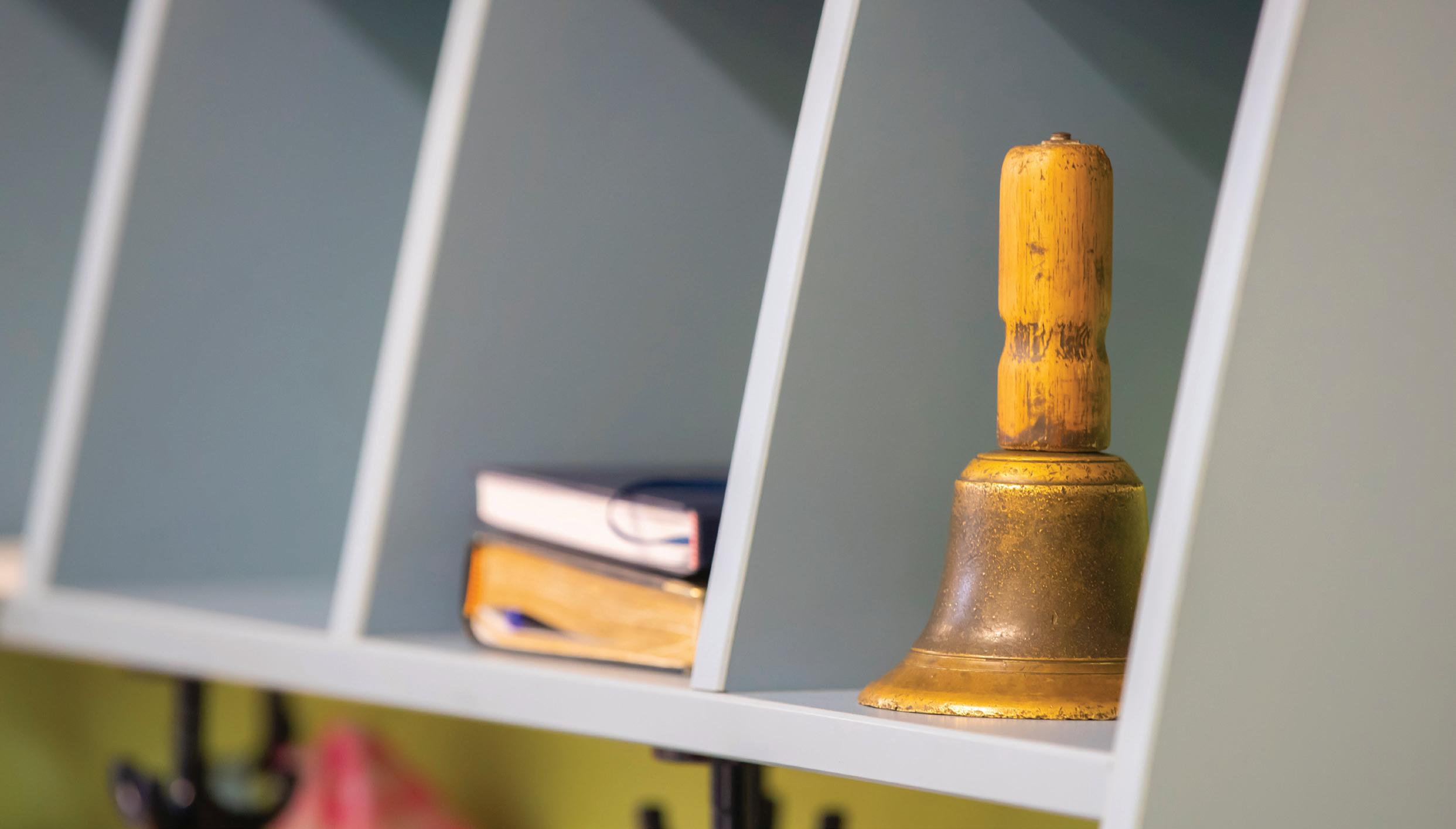
n The first IPPN Annual Conference was held in February 2001 in Galway.
n The first IPPN press release was issued on 15th Feb regarding the looming crisis in recruitment of school leaders.
n The first media interview was conducted on 16th February, when Seán Cottrell was interviewed on Morning Ireland on the topic of the challenges of school leadership
n IPPN’s first research publication The Value of Leadership was launched.
n Promotion of the role of Deputy Principal as a vital role within Irish primary schools was a key concern at IPPN’s first conference for Deputy Principals in May 2002
n Official recognition of IPPN as a professional association was achieved - with the publication of DES Circular 0014/2002
n EducationPosts.ie was launched in July 2002 to provide an online method of recruiting staff and to replace expensive and inefficient newspaper advertising
n Membership surpasses 1,500 schools in September 2002
n TextaSub was developed to provide a free and efficient way of finding substitute teachers
n IPPN commissioned HayGroup to research the role of the principal. The seminal report Defining the role of principal teachers in Ireland led to discussions with key stakeholders around the need to clarify the role and responsibilities of school leaders.
n One-to-one mentoring of newly appointed principals began in September of 2002
n The Airgead Bunscoile school finance package was developed in October 2002 to manage school expenditure and income
n By January 2003, IPPN has over 2,000 member schools
n In-School Management: A Critical Review was published in 2003 - examining how to maximise the potential of the existing ISM structures
n The development of Local Principal Support Groups to provide mutual peer-to-peer support gathered pace in 2003.
n President of the European Parliament Pat Cox addressed IPPN Conference 2004
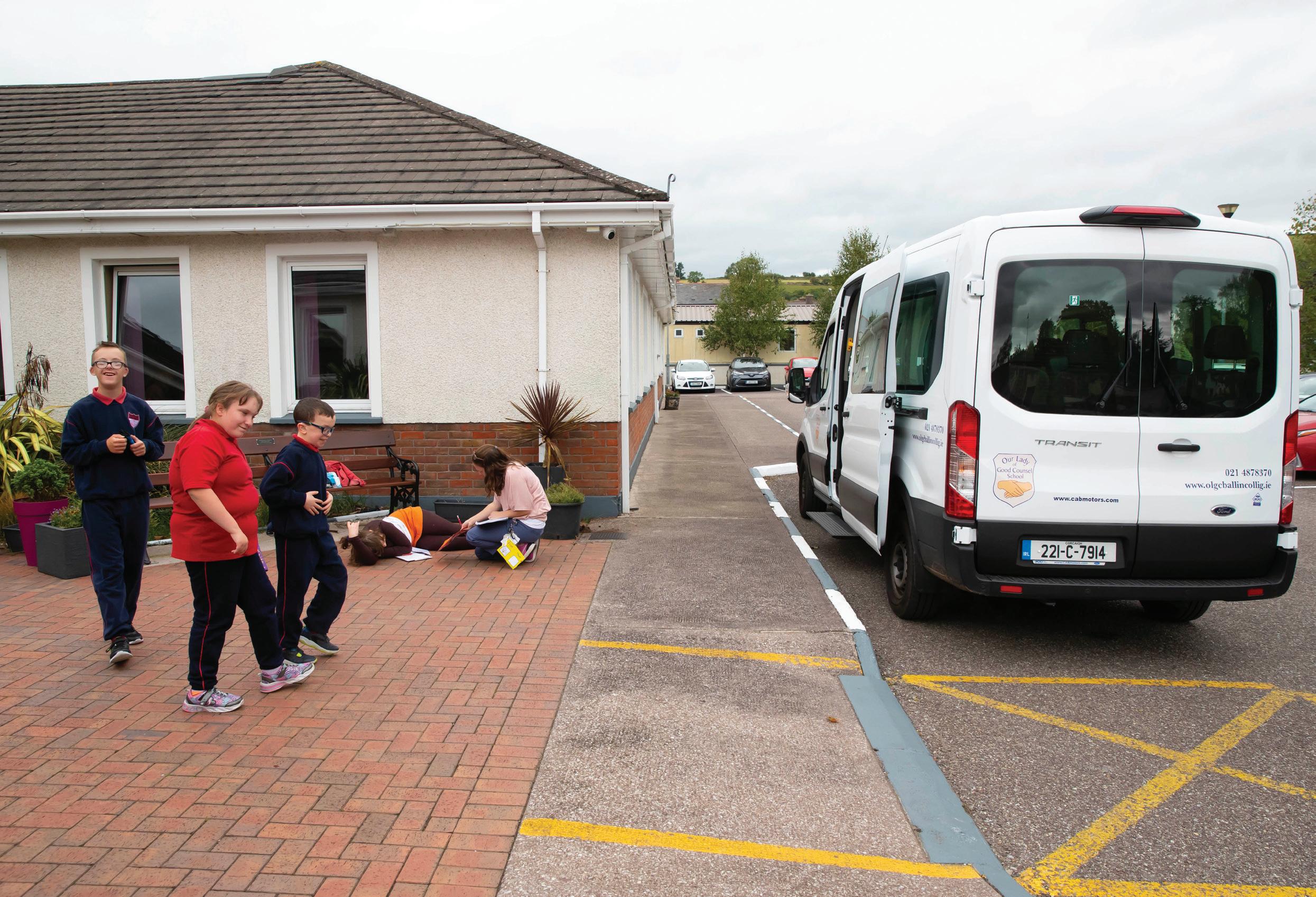
n The first Education Expo at an IPPN conferences was in 2004, enabling school leaders to talk directly with suppliers without having to make a single phone call or view a single website!
n TextaParent.ie was established in October 2004 to facilitate low-cost home/school communication. It attracted much media attention and featured on Sky News!
n The first North/South Conference of primary principals, a collaboration between IPPN and NAHT-NI - was held in November 2004 in Cavan.
n New Horizons for Smaller Schools and Teaching Principalship in Ireland was ground-breaking at the time of its publication in 2005 - it clarified for the first time the challenges of the role of Teaching Principal and set out possible solutions, including clustering.
n The Constitution of IPPN Ltd. - comprising a Memorandum and Articles of Association - was formally ratified in October 2005
n The Principal’s Information Management System (PIMS) was initially published in June 2006 – a vital tool to capture and have at hand all the key information in one place
n Professor Michael Fullan undertook research for IPPN in 2006, resulting in the seminal report Quality Leadership<=> Quality Learning - Proof beyond reasonable doubt A key quote encapsulates the research conclusions:
n “The principal is the nerve centre of school improvement. When principal leadership is strong, even the most challenged schools thrive. When it is weak, schools fail or badly underperform. But the principalship itself is not thriving. If anything, it is reeling because of heightened expectations and corresponding neglect of re-examining and repositioning the role, suitable to the needs of the system in the twenty-first century.”
n Founding IPPN president Jim Hayes was awarded the inaugural Honorary Life Membership of IPPN at Conference 2006
n Investing in School Leadership was submitted to the Public Service Benchmarking Body in July 2006. Principals were the only group in the Public Sector to be awarded an increase.
n Virginia O’Mahony was the first Irish principal elected to the Executive Committee of the International Confederation of Principals – in April 2006. Virginia was also first Irish Principal elected as President of ICP, serving from 2011 to 2012.
n ‘Designated Status’ was given to IPPN, recognising IPPN as an official Education Partner with corresponding consultation rights, by Minister Mary Hanafin at IPPN Conference 2007
n In 2007 and 2008, IPPN delivered On-Line Claims System (OLCS) training to primary school principals and secretaries from Malin to Mizen
n Giorraíonn Beirt Bóthar was published in 2007 and launched at IPPN Conference – it helped to define the key role of Deputy Principal and the importance of co-leadership.
n The first Assistant Director of IPPN, Virginia O’Mahony - was appointed in September 2007
n Ciall Ceannaithe – Sound Advice and Borrowed Wisdom for Newly Appointed Principals was first published in 2007. Since 2008, as an online course, Ciall Ceannaithe has provided a wealth of practical information and guidance for existing and aspiring school leaders
n The first time a sitting Uachtarán na hÉireann spoke directly to primary principals was at IPPN Conference 2008 in Killarney when President Mary McAleese addressed the attendees
n Professional Briefing Days were held each Autumn from 2008 to 2021 for key education stakeholders to brief school leaders on the latest information pertinent to them
n The first sod was turned for IPPN’s permanent Support Office in June 2009 and the new building was opened on 10th February 2010 – the 10th anniversary of IPPN.
n Deich mBliana ag Fás – which set out the key milestones of the first decade of IPPN was published in 2010 to coincide with the opening of the new National Support Office
n Supporting Each Other - a guide to best practice for the effective partnership between Principals and Parent Associations was published by IPPN and the National Parents Council – Primary. It was launched by Minister Mary Coughlan in July 2010.
n The Board of Management Resource Pack was issued by IPPN in 2011 to all Boards of Management, along with the Board of Management Guidelines for Best Practice
n Primary School Governance – Challenges and Opportunities was published in 2011 - based on in-depth research with 500 primary schools to highlight key issues and recommendations
n IPPN Summer Schools (from 2012) provided best practice guidance in a blended online and face-to-face approach
n IPPN lobbied hard over many years to lift the prohibition on principals taking up the role of learning support/resource teacher – this was achieved in September 2012
n Once wasn’t enough! In 2013, Uachtarán na hÉireann Michael D Higgins addressed principals at the annual principals’ conference in Citywest
n The unique Headstart event - initiated in August 2013 - helped principals new to the role of school leader to start off on the right footing
n Priorities for Principal Teachers – In Clear Focus: a resource to focus the attention of school leaders, Boards of Management and school staff on what are the real priorities in schools, was launched at IPPN Conference in January 2014 by Minister Ruairi Quinn
n In September 2014, IPPN initiated a pilot project to provide remote administrative support to principals in five small schools in Mayo, Sligo, Dublin, Tipperary and Louth
n IPPN and NAPD research into Health and Wellbeing of School Leaders in 2014 and 2015 highlighted significant risks that need to be addressed by management bodies and the DES
n The report Irish Principals & Deputy Principals Occupational Health, Safety & Wellbeing Survey Report 2015 was launched at IPPN Conference by Minister Jan O’Sullivan.
n The establishment of the Centre for School Leadership (CSL) in 2015 was a key milestone for school leaders – the culmination of a number of years working in partnership with NAPD and the Department on school leaders’ professional development.
n Improvement to the staffing schedule for oneteacher schools was achieved following our Symposium on One-Teacher Schools in October 2016
n IPPN lobbied extensively to increase the number of administrative/ release days for Teaching Principals to provide more time for leadership and management responsibilities. A small increase in 2015 was a step in the right direction.
n The joint IPPN/NAPD national symposium on Emotional Wellbeing: At the heart of school communities in November 2015 brought together stakeholders from across the education and social care sectors to discuss the importance of emotional wellbeing in schools. An Taoiseach Enda Kenny addressed the attendees.
n The IPPN Dashboard was created in 2015 to create a simple portal to key information. It was superseded in 2025 with the launch of the new ippn.ie website.
n The first time a sitting Taoiseach addressed an audience of primary principals was at IPPN Conference 2016 when Taoiseach Enda Kenny spoke to over 1000 school leaders in Citywest
n By March 2016, IPPN membership surpassed 3,000 schools. This has since grown to a membership of 95% of all primary and special schools
n The TextaParent.ie online payment facility was launched in September 2016, enabling parents to pay online for school tours, book rental and other school costs
n IPPN introduced the concept of a Calendar of Reform with key stakeholders with the aim of creating a single, integrated plan for all education agencies and the DES
n IPPN past president Gerry Murphy’s relentless work for marginalised children and families culminated in the Hunger Prevention in Schools Strategy in 2016, in collaboration with Dr Paul Downes of the School of Human Development in DCU
n A One-teacher schools symposium was held in October 2016 in Ballinasloe. It was attended by 24 principals from the 32 one-teacher schools across 11 counties in Ireland, and helped ease the isolation of the role for those principals
n IPPN 2020 (an overview of IPPN’s Strategic Plan 2016-2020) was launched in November 2016 at the AGM of IPPN’s National Council
n IPPN Education and Leadership Symposia brought together education and business leaders
n The largest-ever attendance at an IPPN event was at IPPN Principals’ Conference 2017, which 1200 principals attended – representing well over a third of Irish primary schools!

n Towards a Better Future - A review of the Irish School System was jointly commissioned by IPPN and NAPD and published in March 2017, the culmination of significant research undertaken by Drs John Coolahan (RIP), Sheelagh Drudy, Áine Hyland, Pádraig Hogan, and Séamus McGuinness. The book was launched in Dublin on 7th March 2017
n Appointment of Páiric Clerkin as the second CEO of IPPN in 2017
n A report on the Health, safety and wellbeing issues in One-Teacher Schools was approved by the Board of Directors in June 2017.
n Group mentoring of principals in their second year began in September 2017, delivered by CSL-trained IPPN members
n Seán Cottrell and Virginia O’Mahony were awarded ‘outstanding contribution to school leadership’ by the ICP. Seán was presented with his award at IPPN Conference 2017; Virginia’s award was presented at an event in Capetown, South Africa in September 2017.
n September 2017 - a key milestone is reached –100 issues of Leadership+!
n In October 2017, a second mainstream teacher was allocated to One-teacher Island Schools
n One leadership and management day per week for teaching principals was finally achieved in September 2020 as part of a Roadmap to Reopening Schools support package during the COVID-19 pandemic, representing a 85%-225% increase depending on school size.
n In October 2021, two key IPPN priorities were realised, with the announcement that teaching principals in schools with one or more special class would have 4 additional release days and that the vast majority of special schools would have administrative principals
n Another milestone that year was that the benchmarking award to school leaders, announced in 2007, was finally paid!
n Following extensive work by IPPN, the Small Schools Clustering Action Research Project was established in January 2022 and extended in 2024 to run to 2026
n As part of its Sustainable Leadership project, IPPN published a key report in November 2022 ‘Primary School Leadership: The Case for Urgent Action – A Roadmap to Sustainability’. A key focus of the report was an evidenceinformed analysis of the extent and nature of the workload of school leaders and the consequential impact on the sustainability of their roles and on their health & wellbeing. Progressing the recommendations in the report has been a key focus of IPPN’s advocacy since its publication. Project progress reports were published in 2023 & 2024
n EducationPosts.ie launched the Online Application Portal to reduce the administrative burden arising from recruitment.
n June 2023 - The Minister announced the establishment of a new type of support for clusters of primary schools including the introduction of Education Wellbeing/Mental Health Practitioners, who will work under the direction and supervision of the National Educational Psychological Service (NEPS). This was proposed by IPPN and significant work was done by IPPN, the Ombudsman for Children, NPC, NAPD and the Teaching Council, among others.
n Progress was achieved in relation to the reform of school governance structures in September 2023, with acknowledgement by Minister Foley that ‘The Primary Education Forum offers a platform for discussion with our partners as to what the future governance arrangements for schools might look like. This platform also offers an opportunity to consider how in future boards might be supported and strengthened in their key governance role in schools.’
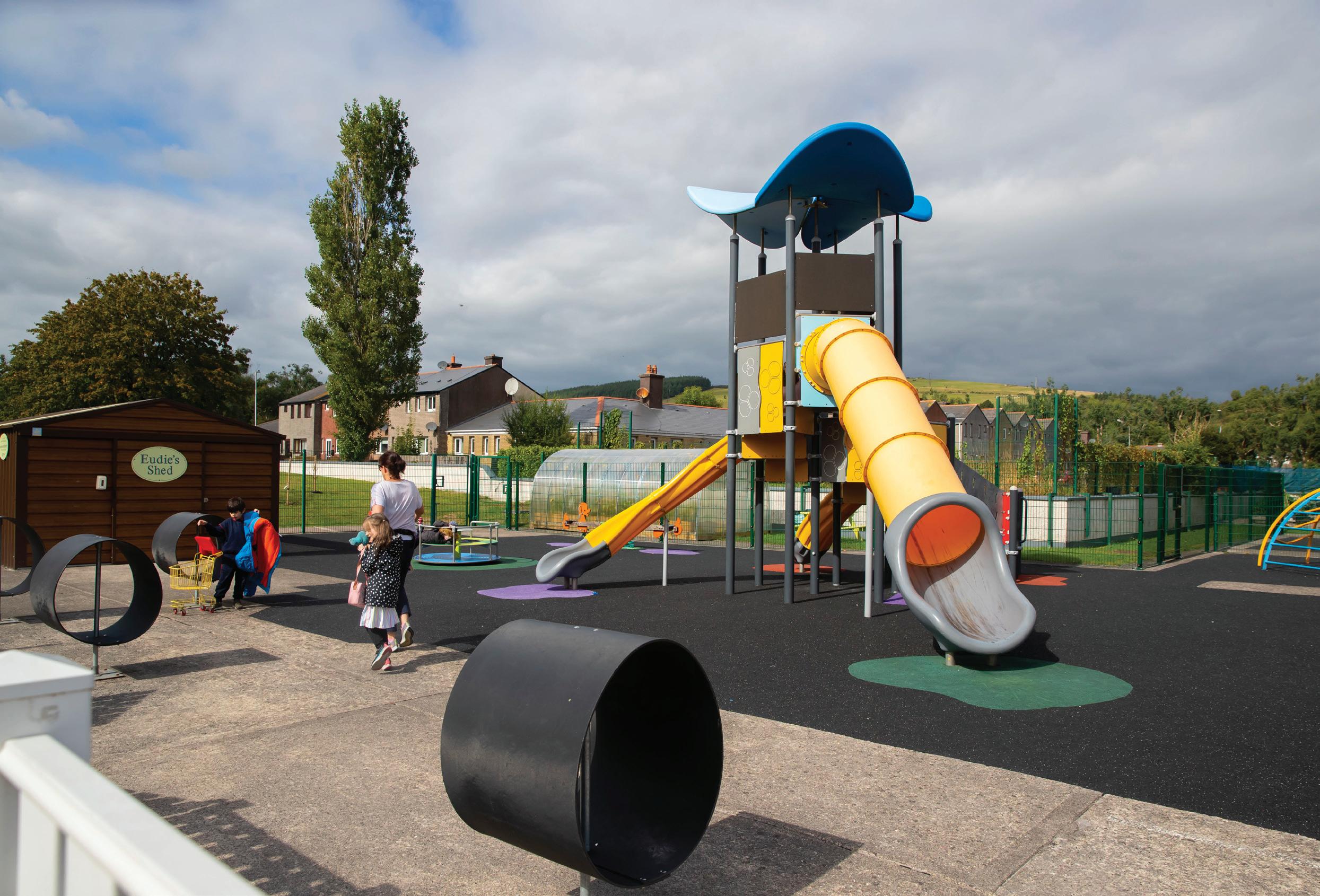
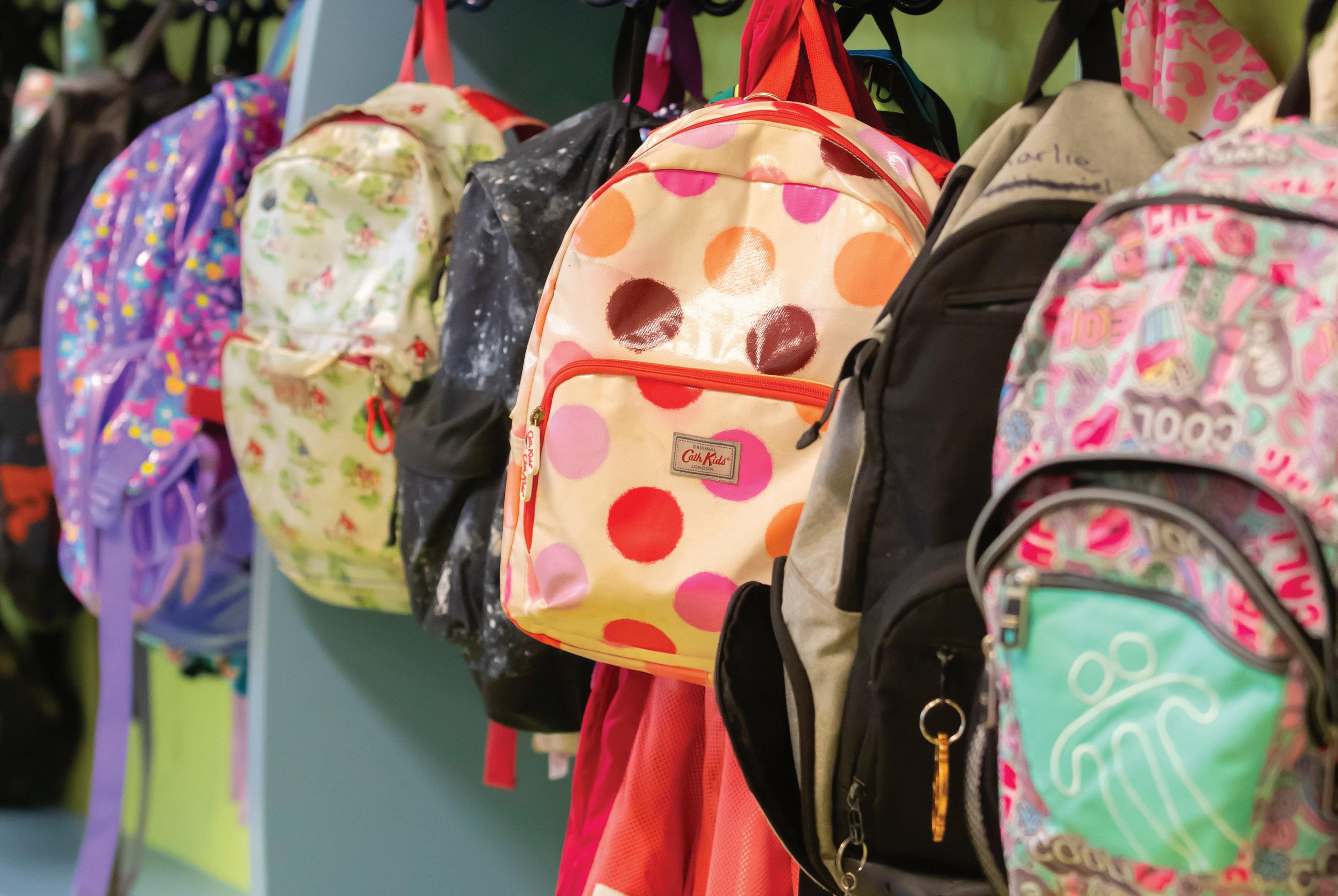
n In October 2023, it was announced that Deputy Principals in Special Schools would be given administrative status
n The Charities Institute of Ireland awarded IPPN Triple Lock Status on 6th February 2024
n In early 2024, schools were permitted to combine part-time SET and Principals’ Leadership and Management days to form a full-time post – a proposal by IPPN as part of the Small Schools Clustering Project
n June 2024 - Further to IPPN’s advocacy for school-based therapeutic supports to be provided nationally, the Educational Therapy Support Service was announced by Minister Norma Foley
n January to October 2025 – the IPPN Roadshow brought the IPPN leadership team to every county to celebrate ’25 Years of IPPN’ and provide CPD on ‘Making Leadership Doable’
n February 2025 – a new logo and strapline for the organisation were launched at the Deputy Principals’ Conference in Galway
n October 2025 – Budget 2026 provides for several of IPPN’s key priorities:
n Additional funding to support the role of the deputy principal
n Enhanced SEN funding to provide additional places for children with SEN
n The establishment of a new DEIS+ scheme
n Increased capitation funding to €275 per pupil
n Late 2025 – The SNA Workforce Development Plan progresses key issues relating to SNAsnew contract, centralised vetting, training and complaints procedure. IPPN had been pushing for centralised vetting for many years.
To quote a crafty Irish politician from this period, ‘A lot done. More to do’…
by Nora Peters, General Manager
As IPPN celebrates 25 years of service to school leaders, we honour the dedicated staff and associates who have been instrumental in shaping and delivering our mission. Their unwavering commitment to excellence, innovation, and collaboration, has laid the foundation for the strategic vision that will guide us into the future.
Together with IPPN’s senior leadership at Board and Council level, they have imagined, designed, delivered, and continuously enhanced the supports, services, infrastructure, and advocacy efforts of our organisation. Their work will continue to drive the implementation of our strategic plan, ensuring that IPPN remains a beacon of leadership and support for school leaders across Ireland.
Our Leadership Support Team, all highly experienced school leaders, provide professional guidance, CPD development and delivery, and advocacy support:
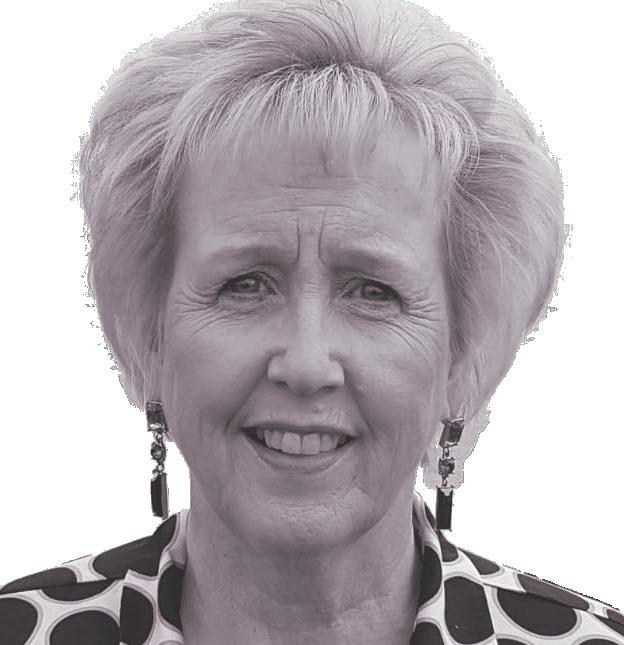
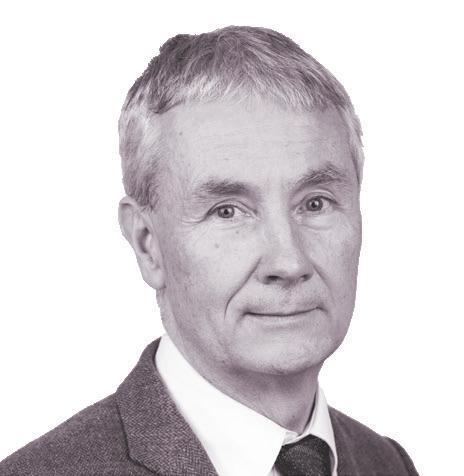

Our team exemplifies leadership in action, delivering strategic support and services with professionalism and passion:
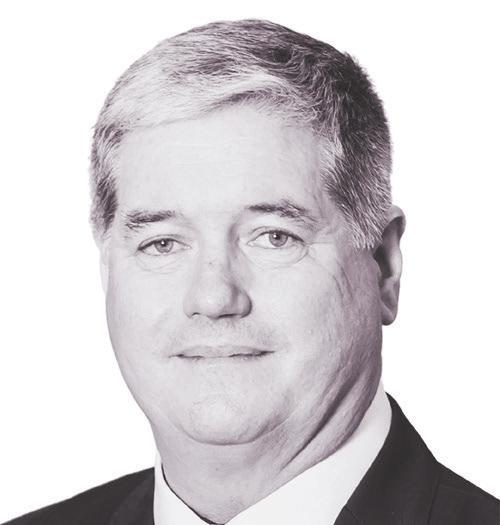

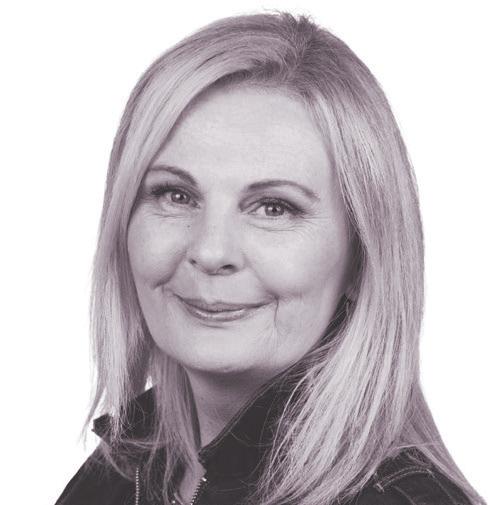

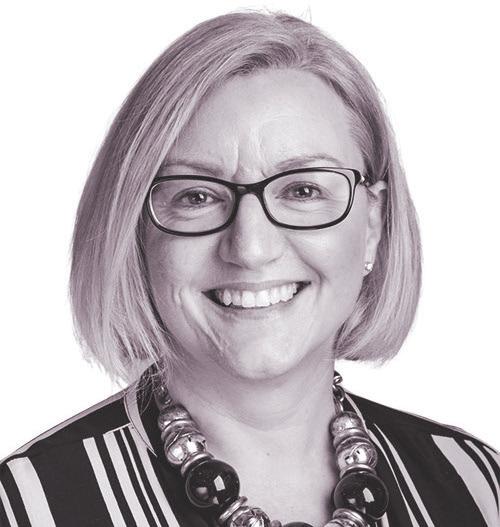

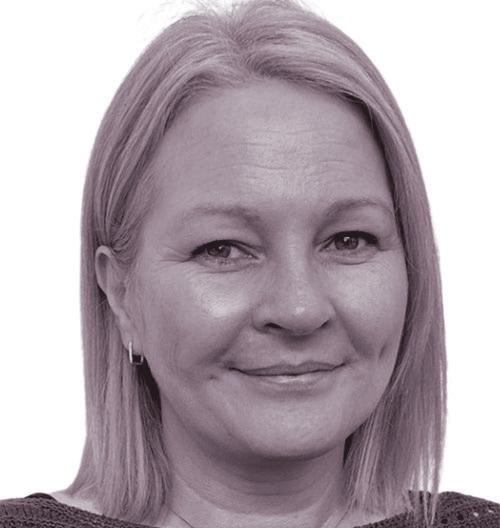
We extend our heartfelt gratitude to those who have previously served IPPN. Their legacy continues to inspire our work and vision:
n Angela Lynch – Supports & Services
n Jack Durkan – Leadership Support
n Donal Kerins – Leadership Support
n Caroline O’Dea – Operations Manager
n Pat Goff – Deputy Director
n Virginia O’Mahony – Deputy Director
n Susan Forde – Front of House
n Rachel Hallahan – Principal Information Officer
n Ann Ryan – Leadership Support Associate
n Claire O’Donovan - PR
n Sarah O’Neill - PA
n Sinéad Coakley – Business Development
n Nicole Walsh – Marketing
n Louise O’Brien – Marketing
n Annie Bosma – Administrator
n Anna Lehane – Administrator
n Anna Kleven – Administrator
n Lee Flood - Administrator
n Sue Cowburn – Administrator
Ár mbuíochas libh ar fad as ucht bhur dtiomantas, bhur ngairmiúlacht agus freisin, bhur gcomhghleacaíocht.
Thank you all so much for your commitment, professionalism and collegiality.


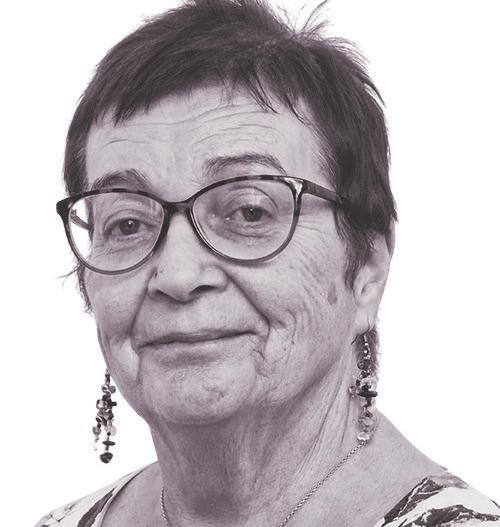




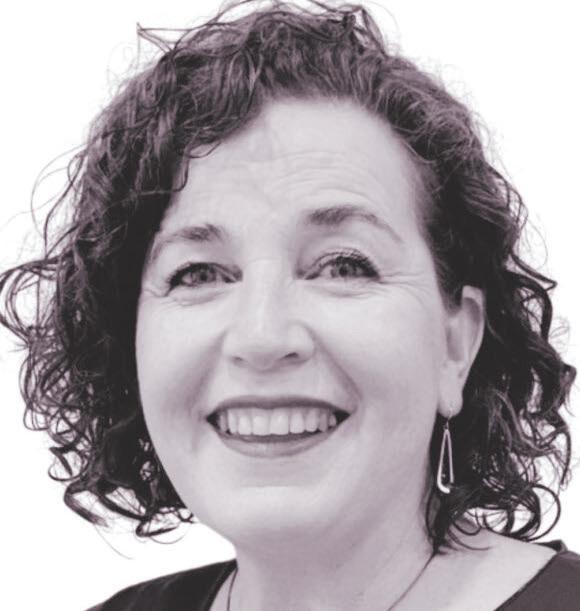

Seamus Mulconry Secretary General CPSMA
IPPN and CPSMA, celebrate significant birthdays this year. Both are 25 and 50 years young respectively.
The educational landscape over the last 50 years and 25 has changed beyond recognition. We have experienced much curriculum change, school self-evaluation, inclusion, child protection, and digital learning, to name but a few.
The enactment of the Education act in 1998 and subsequent legislation placed new and unprecedented demands on school management and governance.
Principals and Deputy Principals, with the support of Boards of Management and Patrons, have shown enthusiasm, courage and flexibility in delivering policy change to help deliver better learning outcomes and experiences for our children.
IPPN has played a vital role in this process and have developed critical services and supports
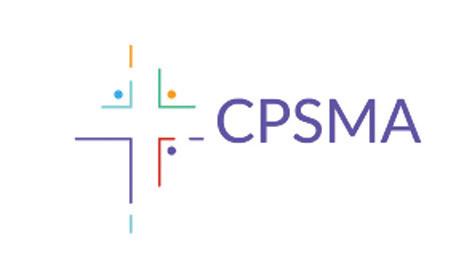
for principals, deputy principals and schools such as the Education Posts website, which is an invaluable resource for schools. IPPN has also been a forceful (and thoughtful) advocate for both its members and primary education.
Over the last number of years, IPPN, INTO and CPSMA have worked closely together to better serve our members, for example during the COVID crises. The Primary Education Forum is another example of where we work collaboratively to sequence (or at least try our best to sequence) the pace of change to address workload issues. CPSMA also greatly value the support of IPPN in advocating for increased capitation for schools.
On a personal note, I would also like to thank Paric Clerkin and Brian O’Doherty for their commitment and dedication to primary education. and the collaborative approach that they have done so much to foster to ensure that we are all working together for the good of the pupils in our schools.
A good school leader is someone good and kind, who will help and listen. This is someone who is caring and well mannered, who can find a way out of any situation. This is someone who will never let anyone offend you but will help no matter what the problem is.
By Arianna, 5th Class, St. Joseph’s N.S., Leitrim Village
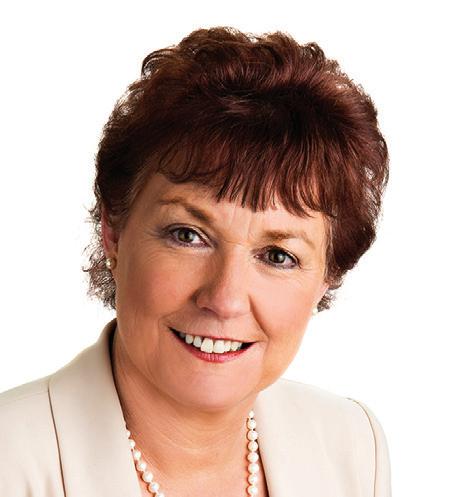
Dr Mary Nihill Director of Leadership in Oide
‘Twenty-five years is long enough to build a life, but short enough to make it feel like it’s just the beginning.’
This quotation, attributed to Winston Churchill, resonated with me when I think about IPPN and its contribution to supporting Primary school leaders over the past25 years. Not only has IPPN established itself as a very influential organisation that supports primary school leaders, but one gets the impression that such is the rapid pace of development of the organisation over the past 25 years that it is only beginning its work. I have been very fortunate to have the opportunity to work very closely with IPPN since 2015. The formation of the Centre for School Leadership (CSL) in 2015, was championed by the founding CEO of IPPN, Sean Cotrell and by the then Director of NAPD,Clive Byrne. The decision to establish a Centre for School Leadership on a partnership basis between IPPN/NAPD and the DE, represented a new departure and presented a unique opportunity for the development of a coherent continuum of professional development for school leaders. That partnership has continued into Oide Leadership, and both IPPN and NAPD are very active members of the Oide Leadership Committee.
The commitment of the current CEO of IPPN, Pairic Clerkin, to supporting CSL and now continuing that support for Oide Leadership has been, I believe, hugely influential in raising
the profile of Primary school leadership. As IPPN celebrates its 25th anniversary, the collaboration between the two organizations has been instrumental in providing ongoing professional development opportunities, resources, and advocacy for primary school principals in Ireland. Through working together, Oide Leadership and IPPN have been able to ensure that school leaders have some of the necessary supports and guidance to effectively lead their schools and provide the best possible education for their pupils.
The challenge for both organisations into the next 25 years will be to ensure that together we provide quality professional learning and supports to both aspiring, newly-appointed and serving school leaders that emphasises sustainability in the role. The diversity of contexts within primary education challenges us to contextualise our supports to meet the needs of the many needs of leaders such as teaching principals, principals leading DEIS schools, principals with differing patronage and principals of large schools to mention but a few.
I have no doubt, but that IPPN will continue to guide Oide Leadership to ensure that we get the best possible outcomes for our learners.
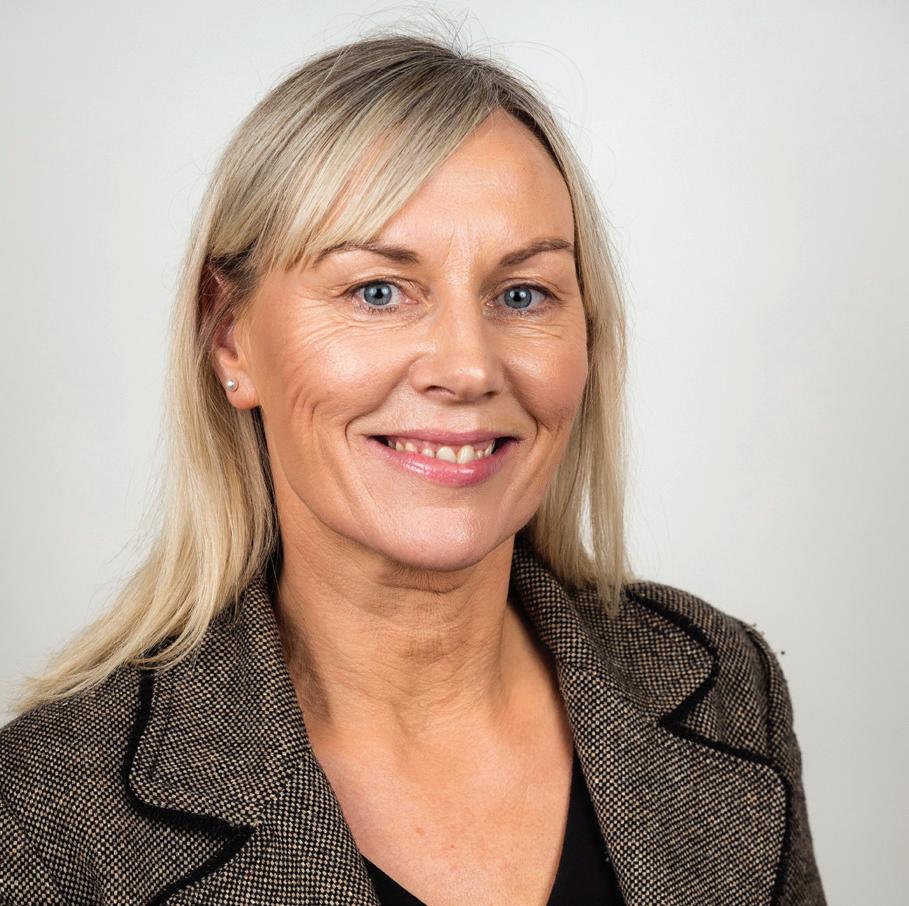
by Maria Tully
As the Irish Primary Principals’ Network (IPPN) celebrates its 25th anniversary, I am deeply honoured to reflect on my own journey within this organisation, particularly as the first Deputy Principal to serve on the IPPN Board of Directors from 2019 to 2022, having previously represented Kildare on the National Council in 2018/19.
My appointment to the Board was not just a personal milestone, but a recognition of the vital role that deputy principals play in co-leadership and in sustaining effective leadership across our schools. For me, my journey with IPPN has always been rooted in the belief that ‘ní neart go cur le chéile’ – there is no strength without unity.
Throughout my career, I have seen the immense pressures that school leaders face. It became clear that the sustainability of the principal’s role depends on the strength of the co-leadership relationship between principal and deputy principal, and on the capacity, we build within our middle leadership teams.
One of the most significant contributions I have made, both within my school and through my work with IPPN, has been embracing and championing the PIEW model – Pilot, Implement, Embed, Wait –
as a structured, sustainable way to manage change. The PIEW model, rooted in Looking at Our School 2022: A quality framework for primary schools and special schools and School Self Evaluation (SSE), enables schools to identify priority areas, pilot initiatives, implement and embed them, and crucially, to pause and review before taking on further change. I have been privileged to champion the PIEW model at conferences and professional gatherings, sharing our school’s experience and its impact on sustainable leadership with colleagues nationwide.
Having experienced the isolation that so often accompanies the role of Deputy Principal, I saw huge untapped potential in creating a dedicated network for deputy principals in Kildare – a space that simply didn’t exist before. In October 2019, with the support of Kildare Education Centre, I established the first ever Deputy Principals’
One of the most significant contributions I have made, both within my school and through my work with IPPN, has been embracing and championing the PIEW model – Pilot, Implement, Embed, Wait – as a structured, sustainable way to manage change.
Network in the county, born out of a real need for support, collaboration, and professional dialogue. Recognising that deputy principals, often working behind the scenes, needed a forum to share good practice, discuss challenges, and find collective solutions, the network quickly became a vibrant professional community. Members openly exchange ideas on everything from distributed leadership and the use of models like PIEW, to the everyday realities of school leadership and management. Regular meetings have allowed us to harness the group’s collective wisdom, helping each other navigate both opportunities and obstacles. This collegiality has empowered deputy principals to step confidently into co-leadership roles, fostering innovation, resilience, improved communication, and greater professional confidence. Most importantly, the network has become a trusted space where deputy principals support each other, ensuring no one faces the challenges of school leadership alone – a true embodiment of ‘ní neart go cur le chéile.’
My time as a board member with IPPN also offered opportunities to collaborate with system leaders and stakeholders, both locally and nationally. Through involvement in initiatives such as the NCCA’s ‘Leading Out’ seminar series on System Wide Leadership, I engaged with colleagues committed to innovative and sustainable leadership. These collaborations have been invaluable, providing a platform to identify the conditions necessary for effective curriculum reform and support the redevelopment of the primary school curriculum. I was also privileged to work with the NCCA, on
behalf of IPPN, on the Guidance on Preparation for Teaching and Learning, reflecting on its practicalities as a deputy principal and participating in a national panel discussion to share insights on implementation. These experiences reinforced the importance of bringing all voices – principals, deputy principals, middle leaders, teachers and national agencies – to the table, ensuring new initiatives are both realistic and impactful at school level.
As we mark 25 years of IPPN, we do so with gratitude for those who paved the way and optimism for the future. The journey is far from over. There is still much work to do in developing co-leadership and harnessing the collective capacity of our schools. For a quarter of a century, IPPN has championed exemplary leadership, recognising that leadership is not a solitary pursuit but a shared journey, strengthened by collaboration and mutual support. Let us continue to shorten the road together –supporting, empowering, and inspiring one another as we lead our schools through whatever challenges and opportunities the next 25 years may bring.
Le meas, Maria Tully Deputy Principal, Scoil
Phádraig, Clane
IPPN
Board of Directors, 2019–2022
by Geraldine D’Arcy, Advocacy & Communications Manager
A key objective of IPPN’s work is to advocate for the enhancement of leadership capacity, effectiveness, and sustainability, as well as improved policy and funding for primary education. Our advocacy work takes account of IPPN’s overall vision for school leadership, as well as specific issues and concerns that relate to particular cohorts of our members, including special schools, schools led by teaching principals, DEIS schools and developing schools.
We do this work through:
We engage in direct and commissioned research to set out evidence-informed solutions to the key challenges of school leadership. The resulting publications are listed below.
Each year, the Advocacy & Communications committee of the IPPN National Council sets out advocacy-related objectives aligned to our strategic aims. This sets the agenda for engagement with our 6000+ members, who provide crucial input to our ongoing programme of work.
Building positive, collaborative relationships with the key stakeholders in education, to ensure that the challenges, concerns and opportunities relating to primary education and school leadership are fully understood.
IPPN is involved in a significant number working groups to progress the key challenges facing primary education and school leadership, including
n Primary Education Forum (PEF) and its subcommittees
n Anti-bullying Forum
n Postgraduate Diploma in School Leadership
n Small School Action Research Project.
IPPN is also represented internationally on the Board and Committees of:
n the International Confederation of Principals (ICP)
n European School Heads Association (ESHA) where we seek to collaborate on research and other projects of mutual interest.
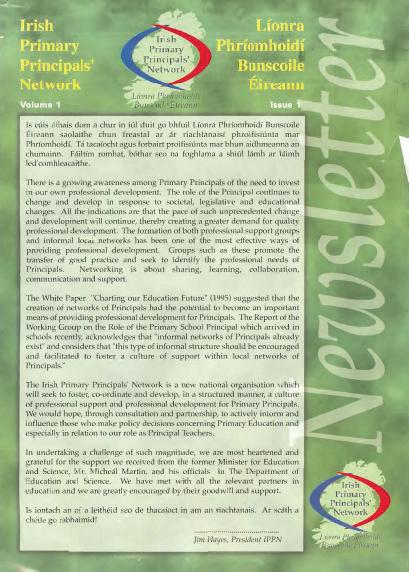

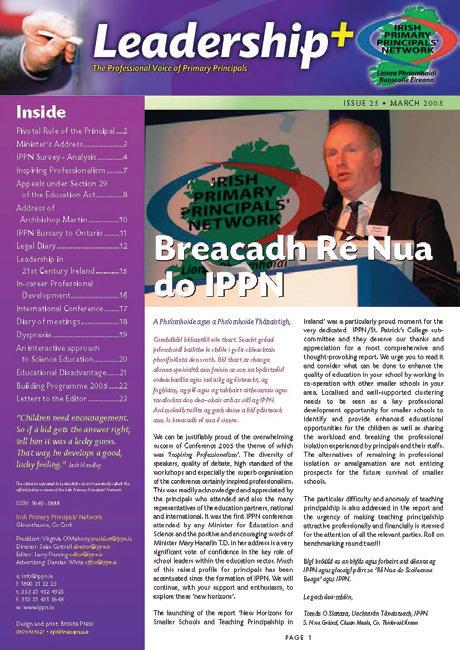

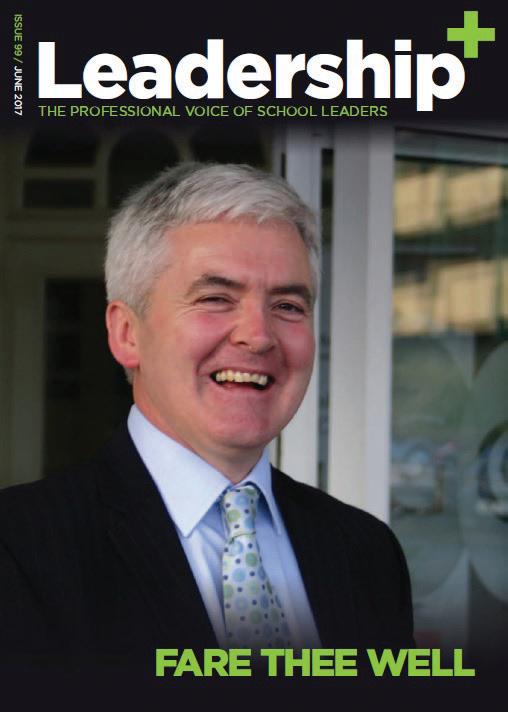
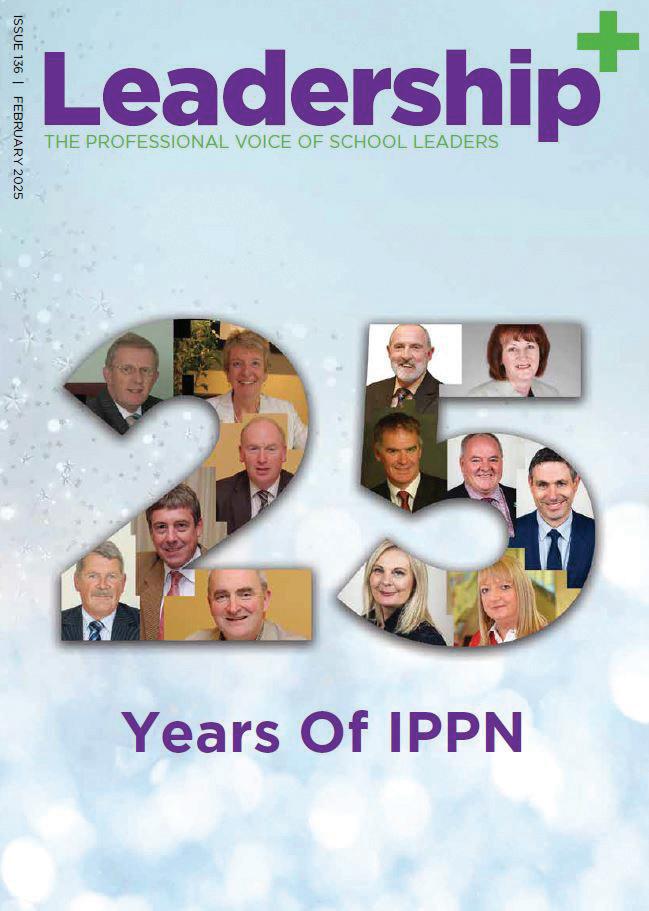
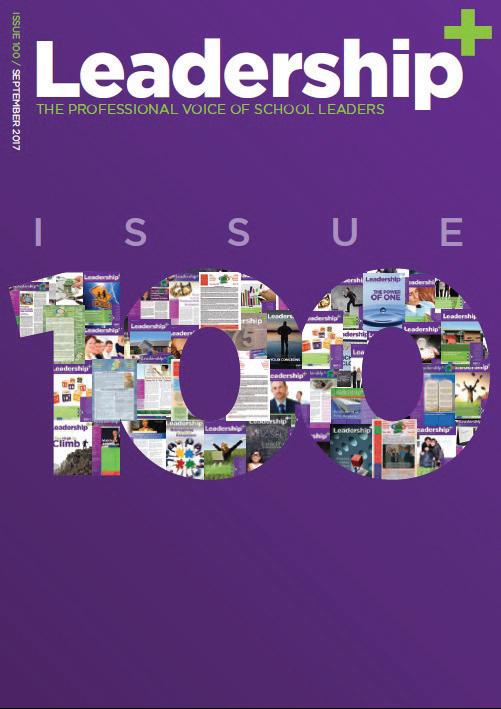
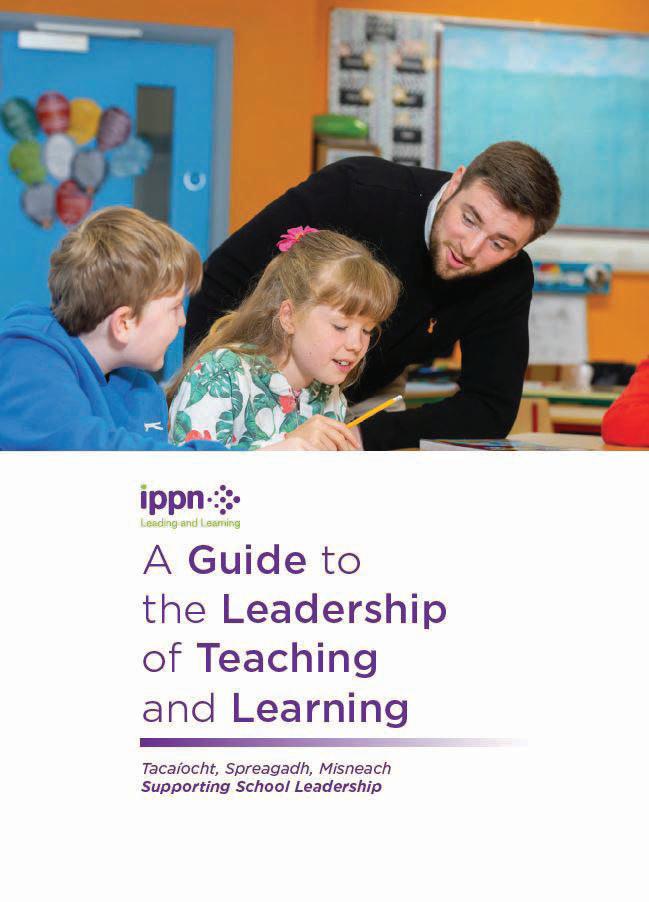
IPPN Guide to the Leadership of Teaching and Learning 2024
The leadership of teaching and learning is core to the purpose of school leadership. Empowering the provision of high quality learning experiences that allow children to exercise agency with regard to their learning, and better enable them to achieve their potential, is at the heart of what those with leadership and management roles aspire to do. It is in this context that we have developed these guidelines. We do hope that schools will use the guidelines to reflect upon and to inform the practice of leadership of teaching and learning in their particular context.
Leadership+ is IPPN’s professional journal, issued 5 times a year. It contains professional guidance, research summaries, expert perspectives by and profiles of school leaders, and much more.
IPPN’s direct engagement with school leaders highlighted the increasing levels of challenge, frustration and disillusionment experienced and articulated by school leaders in response to their experience of the practice of leadership. This prompted IPPN to undertake the Sustainable Leadership project. This report sets out the current reality of the practice of school leadership, the core purpose of leadership, how leaders are prepared for the role and recruited into it, how they share and are supported in the role, how governance is structured, as well as a series of recommendations to strengthen school leadership so that it becomes sustainable.
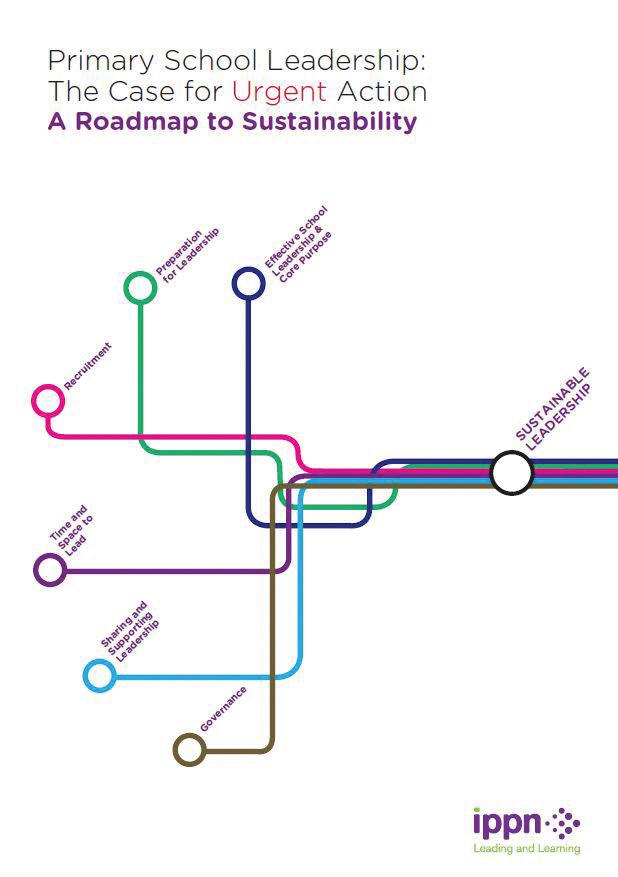
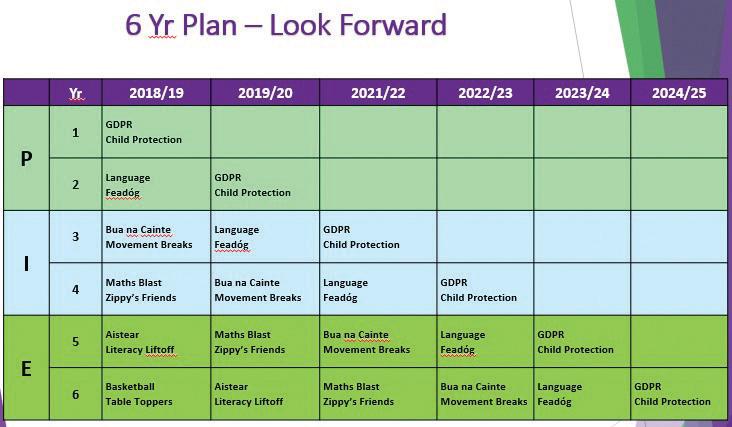
PIEW stands for Pilot-Implement-EmbedWait. It is a framework to support schools in identifying and planning their own priorities according to their capacity to take on the work over a period of time. Prioritised projects are then piloted. Those projects that are deemed to have met the objectives are implemented, time is given to embed practice across the school and any ideas or suggestions are respected by capturing them on a waitlist for review of the next set of priorities.
This publication was drawn up to help principals focus on their key priorities, to identify how important relationships are to the work done in schools, to reflect on their use of the time available to get work done, and to facilitate communication with Board and staff.
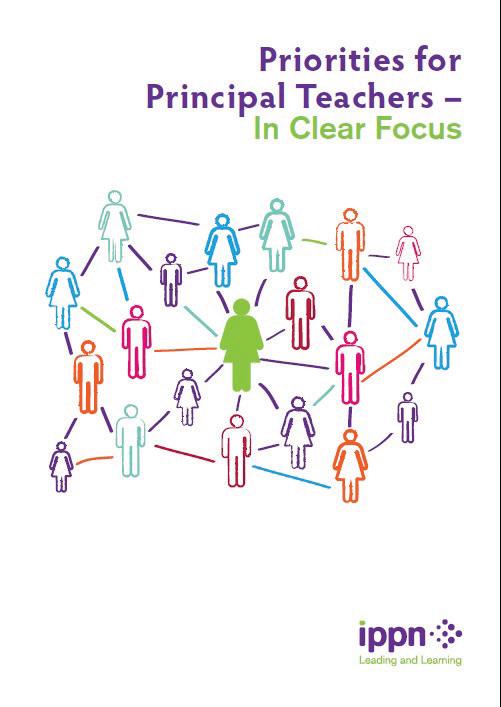
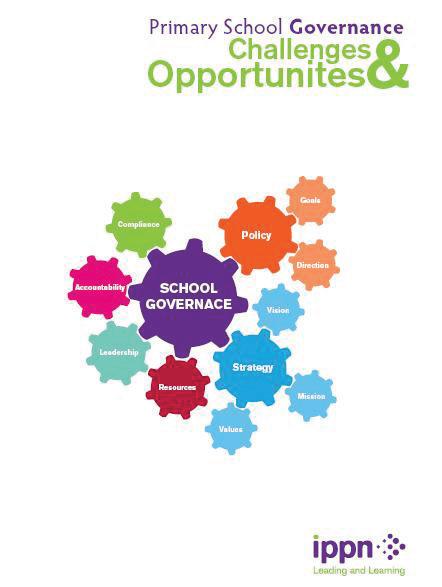
Primary School Governance
- Challenges & Opportunities 2011
The Board of Management has been the governance structure underpinning Irish primary education for more than five decades. The leadership potential for governance is immense given that there are approximately as many people directly involved in school governance as there are teachers teaching in schools. It is for this and other reasons that IPPN has been keen to spotlight governance and to review the composition, roles, operation and effectiveness of the current governance model in Irish primary schools.
Supporting Each Other - a guide to best practice for the effective partnership between Principals and Parent Associations
This framework, published in 2010, has been jointly developed by the National Parents Council Primary and IPPN to support an ethos of transparency and openness between all members of the school community.
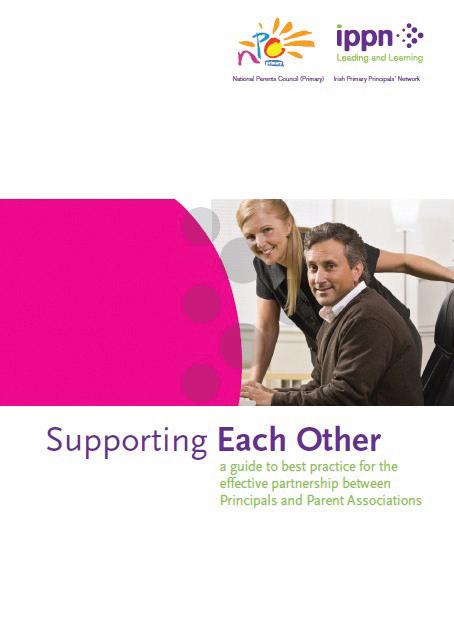
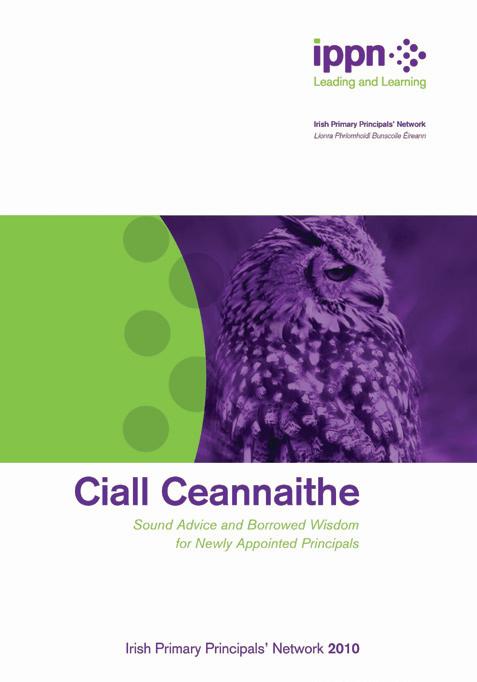
Ciall Ceannaithe – Sound Advice & Borrowed Wisdom for Newly-Appointed Principals – first published in 2007, provided a ‘compendium’ of hints, tips and advice gleaned from highly experienced Principals and mentors of new principals to help get started in the leadership role and successfully navigate your way through the first few years.
Giorraíonn Beirt Bóthar: Distributed Leadership –Deputy Principals
This report, published in 2007, describes how the shared leadership vision for schools might be realised and how the role of Deputy Principal needs to be repositioned to provide for distributed leadership in the school.
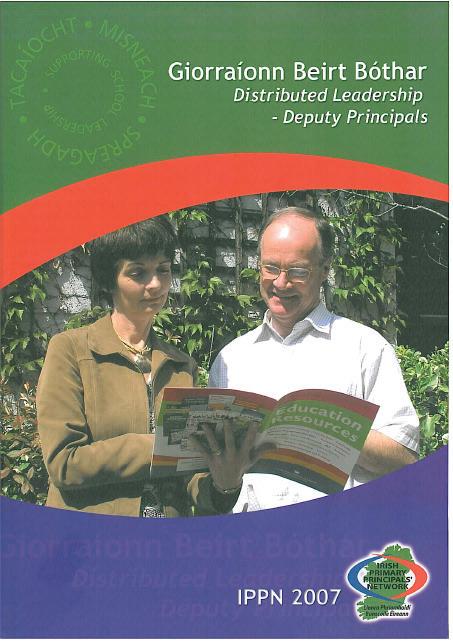
in School LeadershipRecruitment & Retention Crisis in Primary School Principalship.
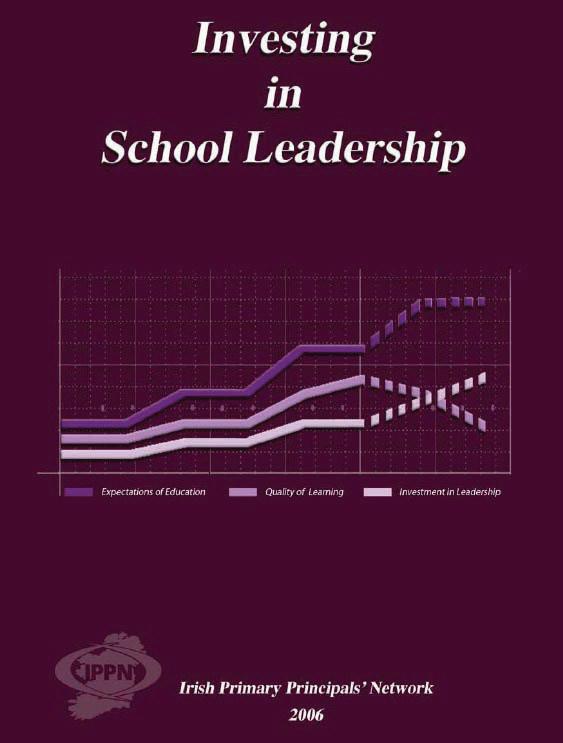
This report incorporated a review and analysis of the key issues that IPPN felt should feature in the report of the Public Service Benchmarking Body 2006-7 to address the Recruitment & Retention Crisis in Primary Schools. It is worth noting that primary principals were the only leadership group in the public sector that was singled out for an increase in pay.
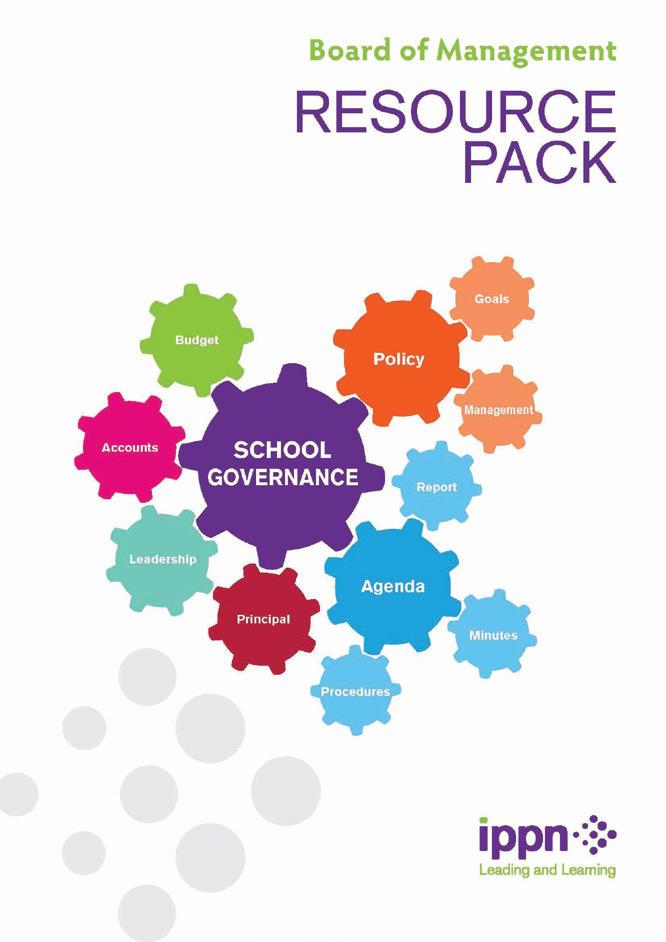
– A Framework for Good Practice
Co-written by IPPN and the CPSMA, this framework offered practical suggestions in relation to the election and appointment of new Boards of Management.
Information Management System (PIMS)
PIMS is a desk diary designed by and for Principals, with tools to help with both time and information management, it is designed to be shared with the school secretary and the Deputy Principal. It was first issued in 2006 and is still in use in 2025.
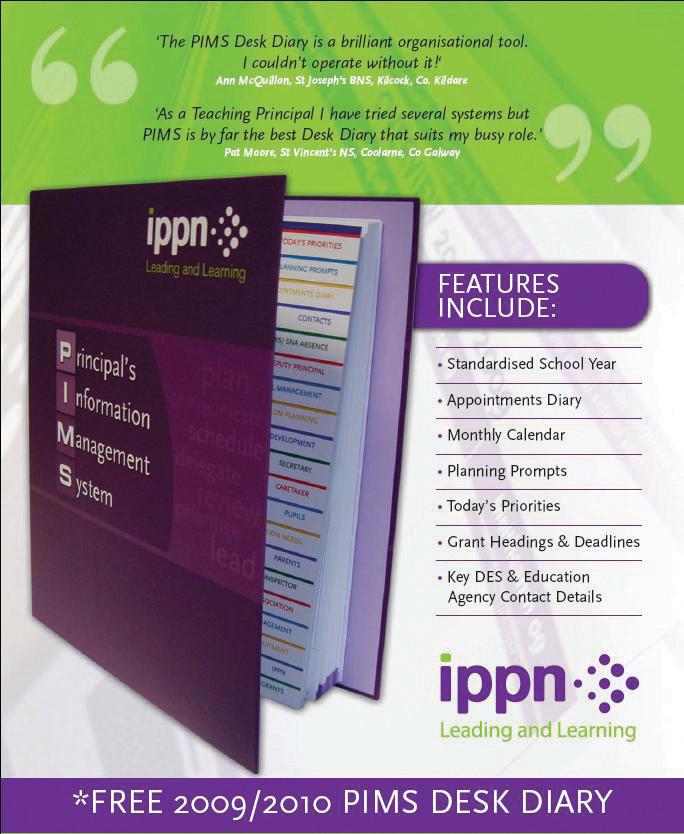
Quality Leadership <=> Quality LearningProof beyond reasonable doubt. This seminal paper by Professor Michael Fullan explores the now-generally-accepted link between the leadership role and the quality of teaching and learning in schools. Often quoted is Professor Fullan’s comment that
‘Every review of the research literature on school improvement has highlighted the key role of the principal, for better or for worse, i.e. there are no examples of schoolwide success without school leadership; all examples of school failure include weak or ineffective leadership.’
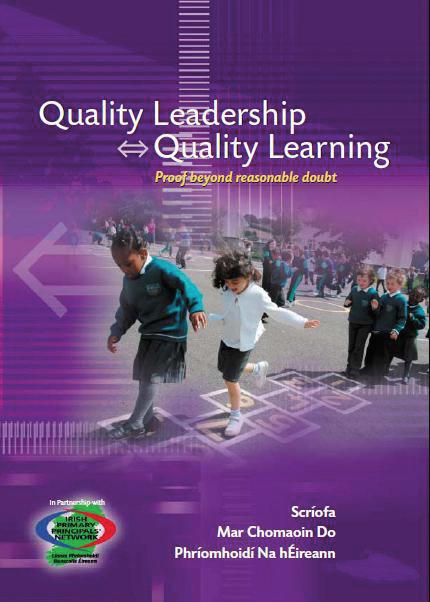
After a two-year research project, New Horizons for Teaching Principals was published in 2005. The report looked at the advantages and viability of smaller schools, the dual role of teaching principal, how other jurisdictions approach this and initiatives/pilot projects.
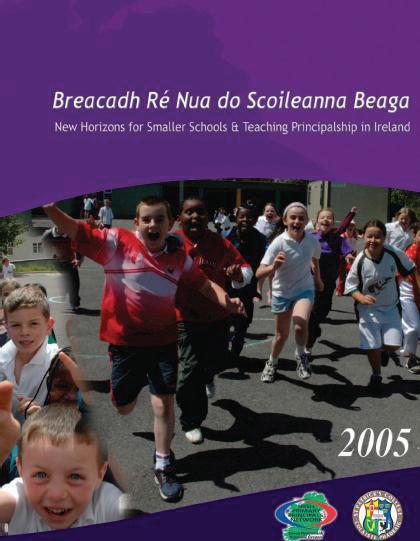
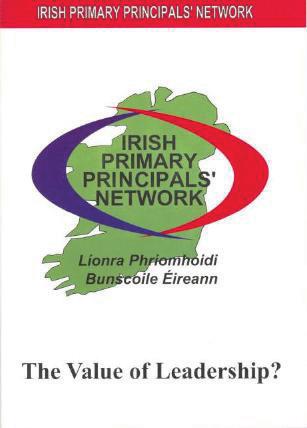
The Primary Education Management Manual was initially published in 2004 in conjunction with Thomson Roundhall. This was a comprehensive legal handbook for Principals edited by David Ruddy BL – then IPPN legal advisor.
Defining the Role of the Primary Principal in Ireland – this was a groundbreaking piece of research back in 2001, conducted by HayGroup management consultants, the first time the school leadership role had been reviewed in such detail.
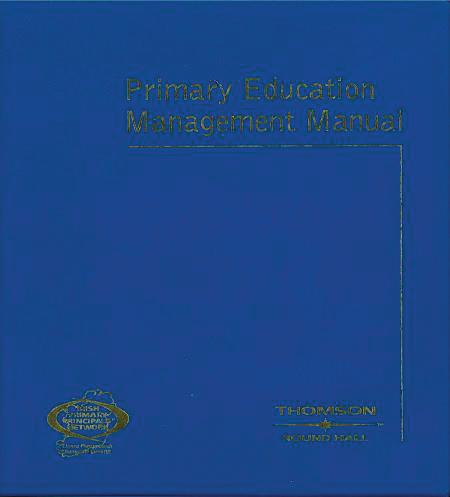
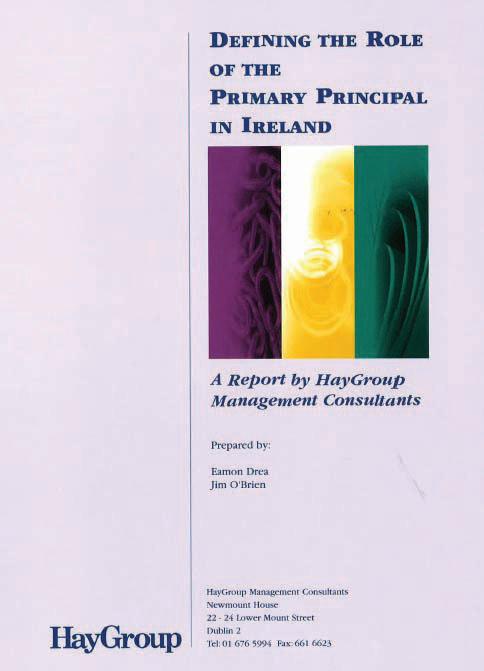
This was published in 2000 and was IPPN’s initial report on the leadership role and an input to the INTO on the first Public Service Benchmarking Report in 2001.
of the
The leaders in my school are understanding, helpful, positive and help overcome your fears disabilitlies.and
Caoimhe, Rang 5, Urbleshanny NS Co. Monaghan
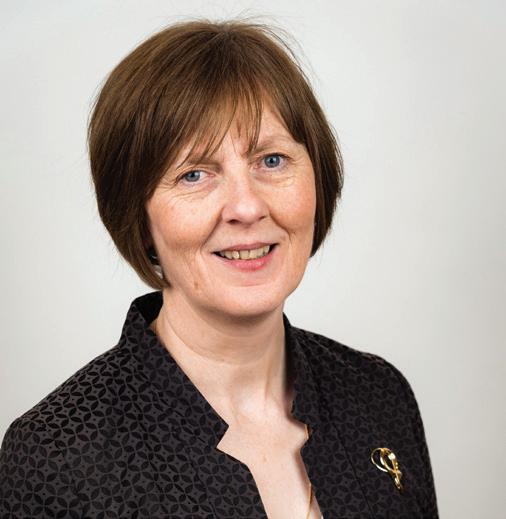
by Catríona O’Reilly, IPPN Chairperson
2025 is a very special year for the organisation as we are celebrating 25 years since the Irish Primary Principals’ Network was formally launched at an event in Dublin Castle by the then Minister for Education, Michael Woods.
We are marking this anniversary in several ways. Some examples of how we are celebrating include video recordings of interviews with all 12 IPPN presidents, which will be shared with you through E-scéal, the 2025 IPPN Roadshow which is already underway and an e-Publication to follow later in the year.
IPPN has always promoted collaborative leadership between the Principal and the Deputy Principal because we know that it results in better, more sustainable leadership of our schools. From the very beginning, when a school became a member of IPPN, both the Principal and the Deputy Principal could avail of all of IPPN’s supports and services.
Giorraíonn Beirt Bóthar, published by IPPN in 2007,
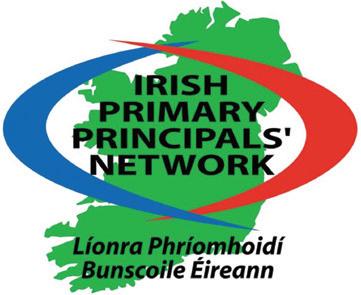
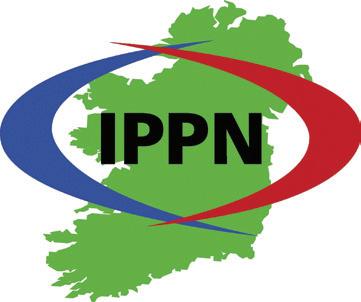
set out a pathway for shared leadership. Our annual Deputy Principals’ Conference continues to go from strength to strength.
IPPN’s 25th Anniversary is an opportunity to make explicit what has always been understood and with that in mind we have launched a new IPPN logo and strapline.
As we plan and prepare for the next 25 years, we renew our commitment as a professional network of Principals and Deputy Principals to continue doing our best for the children in our schools, and we do so because leadership matters.
Go n-éirí libh ar fad ar bhur n-aistir.
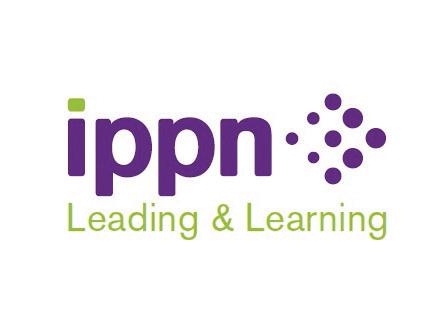
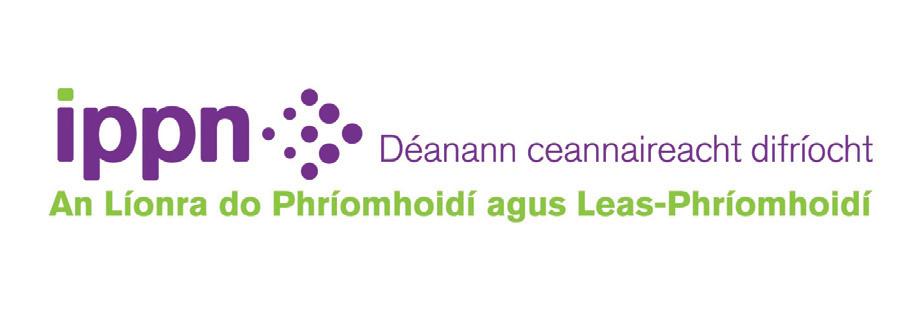
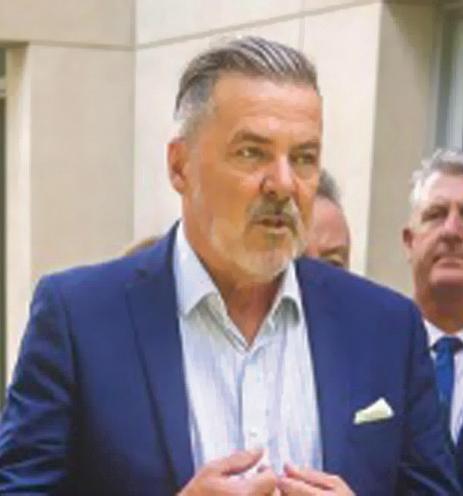
Matthew Johnson President and CEO, The Australian Special Education Principals Association (ASEPA)
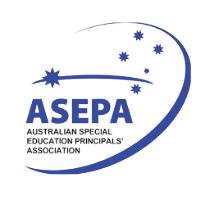
The Australian Special Education Principals Association (ASEPA) warmly congratulates IPPN on the significant milestone of its 25th anniversary. Since its inception in the historic surroundings of Dublin Castle in 2000, IPPN has been an inspiring model of advocacy, leadership, and collaboration for school principals worldwide.
Over the time, IPPN and ASEPA have fostered a valuable international partnership grounded in mutual respect, shared vision, and collective action. Our collaboration has notably enhanced professional learning opportunities, leadership development, and advocacy efforts, benefiting principals and significantly improving outcomes for students with disabilities in both Ireland and Australia. Recently ASEPA has shared our ongoing Australian research around principal wellbeing looking at the impact and management of secondary trauma in Educators. ASEPA seeks to build on our collective knowledge, including the Irish Primary School Leaders’ Health and Wellbeing: A 3-year national study, also working with Deakin University, to build an international hub of principal and leader, health and wellbeing research.
IPPN’s commitment to empowering school leaders through networking, researchdriven policies, and best practice sharing has significantly influenced ASEPA’s strategic directions and priorities. Notably, previous ASEPA presidents’ such as Fiona Forbes and Lorraine Hodgson have attended IPPN events and contributed to strengthening our international relationships through participation in joint conferences and collaborative initiatives, exemplifying a vibrant and impactful partnership.
IPPN has also formed many friendships and collaborated with other Australian principal association members through the International Confederation of Principals and ASEPA values the opportunity to work with our IPPN colleagues at every opportunity.
As we celebrate IPPN’s silver jubilee, ASEPA looks forward to deepening our collaboration, ensuring continued positive impacts on school leadership and inclusive education globally.
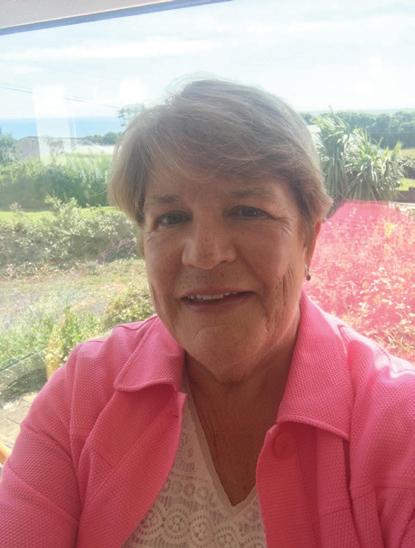
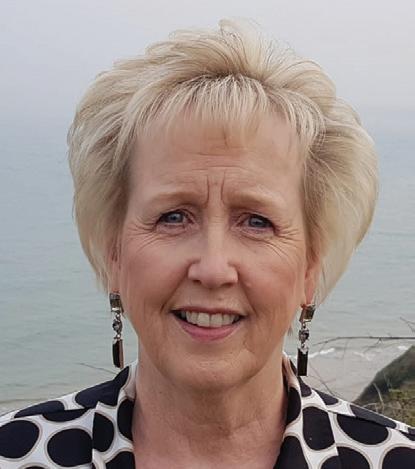
Caroline Quinn NABMSE Board of Trustees/ IPPN Leadership Support Team
Patricia Harrington NABMSE Chairperson
NABMSE was founded in Ireland 58 years ago in 1967 and it supported special schools for the second half of the 20th Century. At that time, Patrons and Trustees often had a vested interest in special schools and usually had at least two representatives on school boards of management. Many of these patron representatives also sat on NABMSE’s Executive Committee together with parents, school principals, chairpersons and community representatives. As an organisation, NABMSE focussed on the child and sought interventions for pupils in special schools. Throughout this time, many of the patron bodies managed special school finances and, in a lot of instances, the special school was seen to be a department of the larger organisation. The principal teacher in these special schools was often seen to be a ‘department head’ and a lot of the administrative functions of a school were managed by staff members of the patron body.
The founding of IPPN in the late 1990s gave special school principals a voice of their own. The recognition of the role of Principal as Leader of Teaching and Learning empowered special school principals, and whilst finances continued to be managed by patron bodies, the special school principal was now able to seek more money for upskilling of staff and for the purchase of resources for schools.
NABMSE and IPPN shared a close relationship from the start. Principal teachers
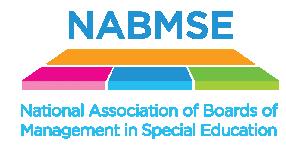
of special schools joined the first national panel of IPPN, and soon special education became a focal point of discussion at national and regional IPPN meetings. Discussion points raised at IPPN support meetings filtered into NABMSE support groups and vice versa. Many of these discussion points became motions at the NABMSE Annual Conferences, and this still happens to this day. Principal teachers of special schools soon attended regional meetings in local areas. IPPN support groups were soon established, and it became apparent that the issues on the table impacted in a similar way on all principals, regardless of rural/urban, special/ mainstream, DEIS /non-DEIS settings. For special school principals, IPPN united principals and gave everybody a voice.
As special classes opened in mainstream schools, those principals and special school principals worked together in local support groups, developing networks and addressing common issues and concerns. IPPN sought and appointed representatives to local organisations such as library sub-committees, arts and sports organisations and eventually onto regional and national groups such as Music Generation. Many special school principals have served, and continue to serve, on the IPPN National Council working on many areas of national interest within the education sector. Several IPPN school leaders serve on the Board of Trustees of NABMSE each year.
IPPN is long recognised as a significant partner in primary education in Ireland and we, in NABMSE, are proud to have an association with IPPN, which values the special school educator in mainstream and special schools.
NABMSE would like to work more closely with IPPN on the international education stage, including special education at international conferences throughout the world. NABMSE can also see a future for special schools within the pilot small schools’ project. NABMSE shares many concerns expertly articulated by IPPN at national level, including the request for increased capitation, allocation of resources for special education, school places, the sustainability of the role of school leader and the wellbeing of all in the school community. NABMSE will continue to advocate alongside IPPN on these and many other issues into the future.
IPPN’s recent document presented to a Joint Oireachtas Committee is testament to the
sterling work that IPPN does in representing its school leader members. Dr. Brad Johnson tells us that “education is not teacher-centred, it is relationship-centred, and this is enhanced by connection, trust and collaboration”. NABMSE is proud of its good relationship with IPPN, and it values the organisation as a partner in all discussions on forward planning for special education.
Congratulations to IPPN, to Páiric Clerkin (CEO), Brian O’ Doherty (Deputy CEO), and all in the IPPN family, past and present, on its first 25 years. NABMSE looks forward to sharing the next 25 years with this wonderful organisation.
Ar scáth a chéile a mhaireann na daoine.
Patricia Harrington, Chairperson of National Association of Boards of Management in Special Education
Caroline Quinn, NABMSE Board of Trustees/IPPN Leadership Support Team
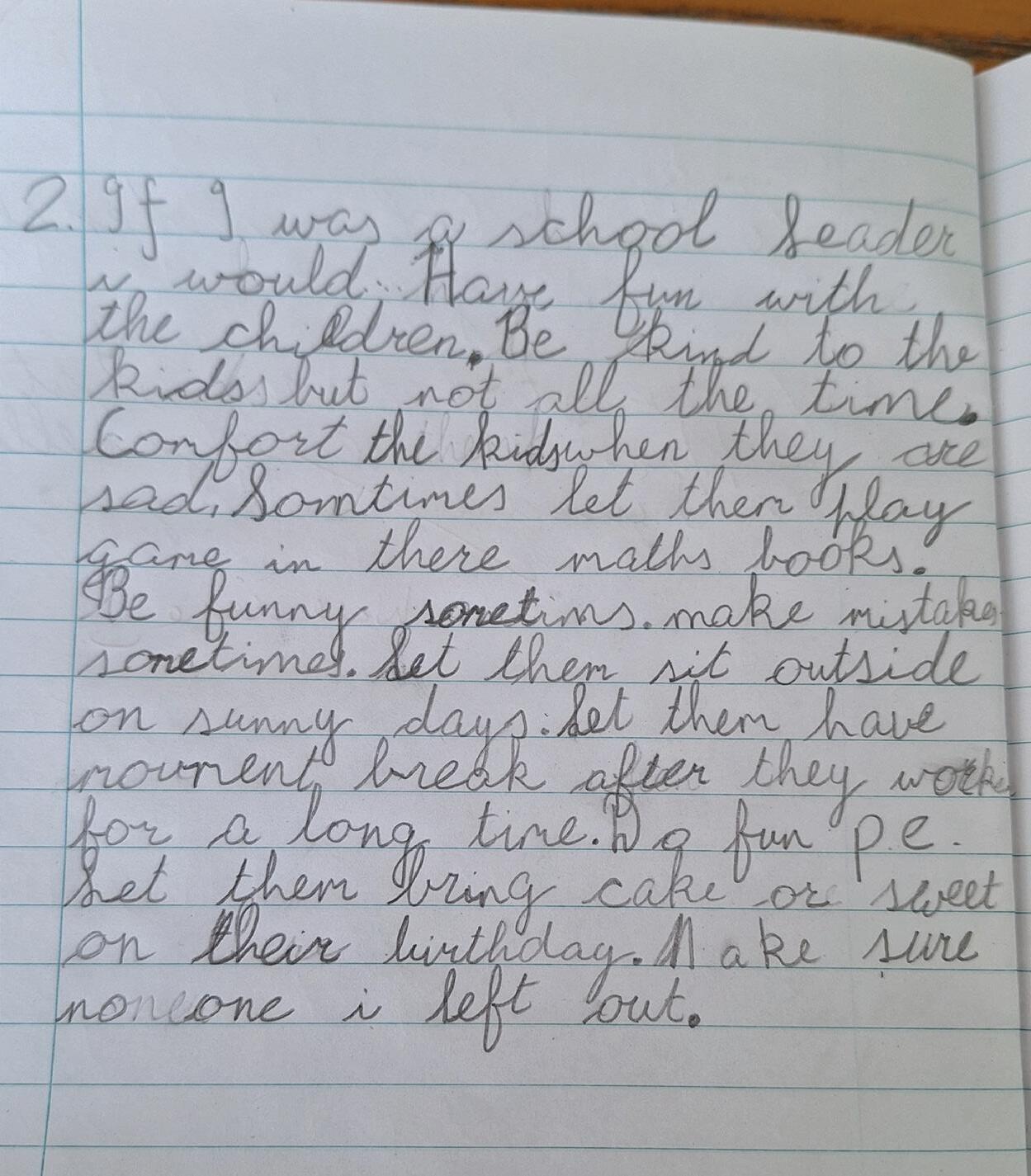
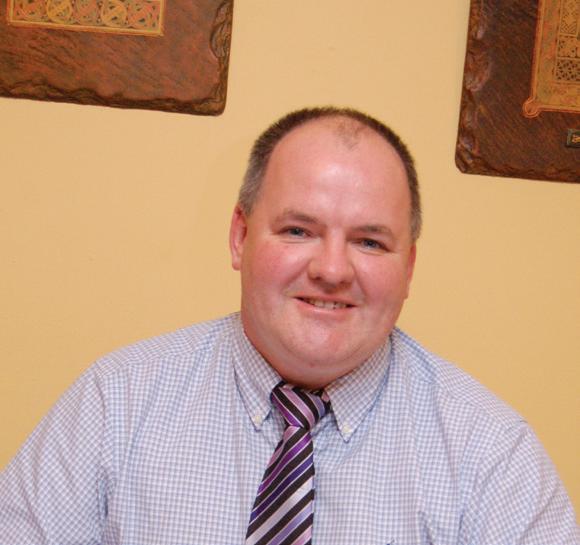
Damian White, IPPN past president 2019-2021 and ICP European Representative
In the mid-1970s, a very famous politician, whose reputation had been tarnished by events to which he was allegedly central, decided to set off on a countrywide tour to restore his reputation and rally the party aficionados ahead of his plans for acquiring power at a future date.
He and his almost equally famous sidekick attended Cumann meetings in every county in what was soon labelled the ‘Chicken and Chips Tour’ reflecting the savoury fare they dined on at ungodly hours as they made their way, in the premotorway days, back to North Dublin. The future Taoiseach however, occasionally liked the finer things and never passed a particular restaurant in the West without calling and ordering without fail, one of their finest steaks. Unknown to him however, the chef despised his famous customer and upon hearing the order each time, removed a large sirloin from the freezer and with the kitchen staff watching, did some unmentionable things to the prime cut. The coup-de grace came with the chef and his staff lining up at the conclusion of the meal to receive compliments for the unique taste of the devoured meal from the grateful customers.
The politician went on to survive the meal and several other traps and pitfalls in an eventful and sometimes controversial career. Like a lot
of subsequent politicians, those who were more successful were those who came out of their offices and met people they represented in their own neighbourhoods, leading to a greater and more empathetic appreciation of the issues faced daily in their constituencies.
IPPN was officially founded in 2000, and it is hardly stretching our mathematical capabilities to the limit to figure out that the organisation is in its silver jubilee year. I had the good fortune to be in the room when history was made in Dublin Castle back then as newly appointed Education Minister Dr. Michael Woods formally acknowledged and welcomed the new organisation supporting school leaders. The impressive event was the culmination of several months of hard work and meticulous planning, building on the work of Cork Primary Principal’s Network who had been an impressive forerunner from 5 years previously. The idea of school leaders supporting each other wasn’t entirely new - Kilkenny city have a group which has been meeting regularly
for over 40 years - but now it was becoming a national movement, highlighting the challenges, and more importantly, the solutions to the myriad of issues facing principals and deputy principals on a daily basis.
The IPPN executive committee at the time was a small but incredibly dedicated group, who realised that grand launches were one thing, but for the rubber to hit the road for IPPN, they had to hit the road to make it happen. Meetings were arranged for every county in the Republic, and while many of us were at a number of these gatherings, Jim Hayes and Seán Cottrell were at most of them together, and every meeting had at least one of them in attendance. Bearing in mind that both were at the time, principals of large schools in Cork, they regularly travelled several hundred miles to and from meetings the length and breadth of the country to launch the IPPN organisation in each county, arriving home early in the morning before facing their own school’s workload a few hours later. Now, with 6,000 members comprising the vast majority of Principals and Deputy Principals in Ireland, it was work well rewarded.
The message in 2000 was simple – let’s support each other, pool our resources, share our ideas. Seek practical solutions so that we can all be the best school leaders for our schools. Those leaving those meetings in 2000 had helped to identify the issues, but also a clearer path for solving them.
IPPN went on the road again in 2025 and the formula and ambitions for the countrywide tour were similar to those of the trailblazers a quarter century ago. Every Monday evening IPPN President Louise Tobin, CEO Pairic Clerkin and I were in a different county to meet school leaders, share a number of key solutions to problems associated with school leadership regardless of school size. We began in County Louth on January 13th, and finished in Dublin on October 13th.
We met hundreds of principals and deputy principals, and in the process ensured that each person is in contact with a local support group and knows who to turn to when they need help or can offer solutions to their peers.
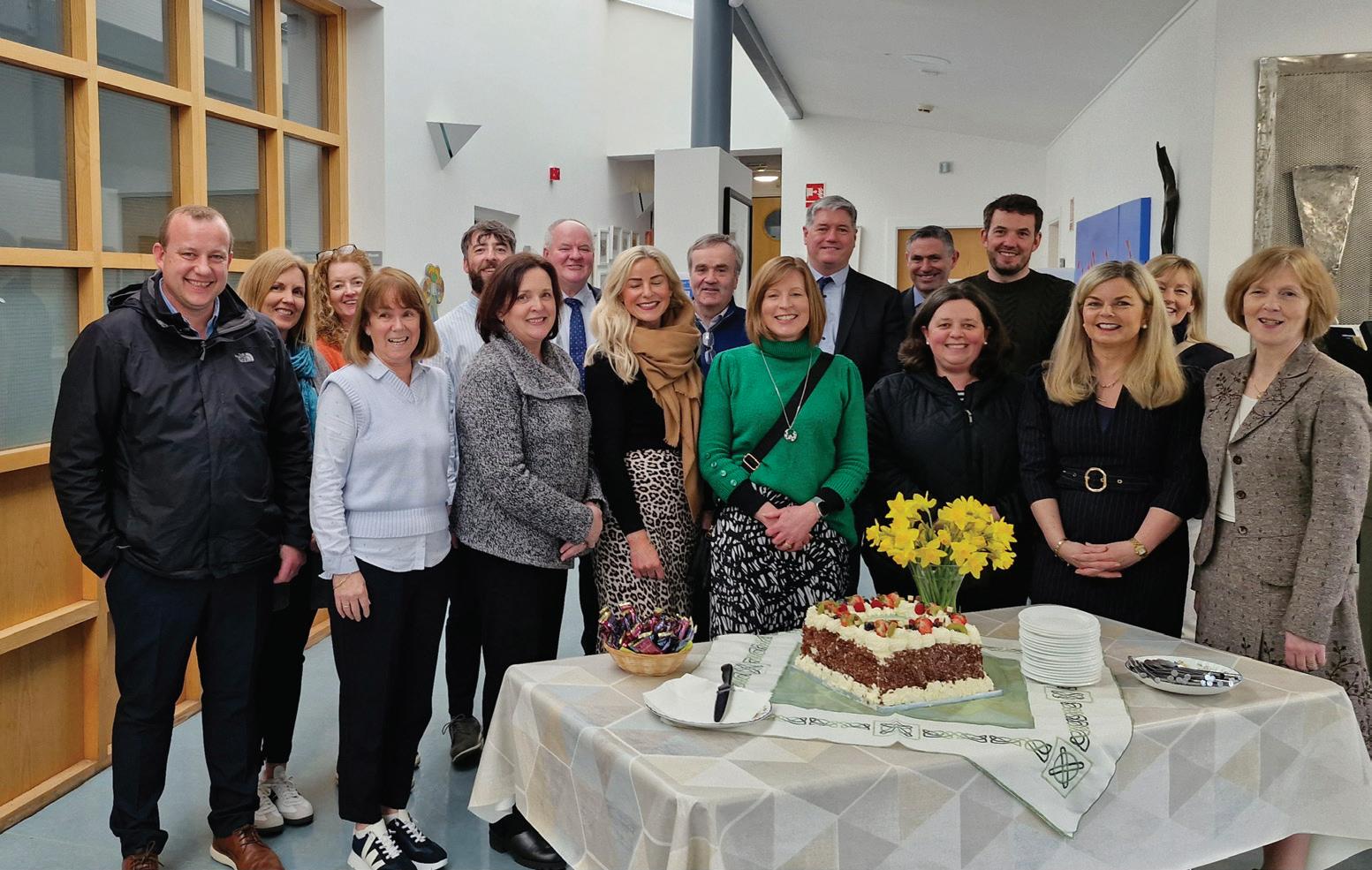
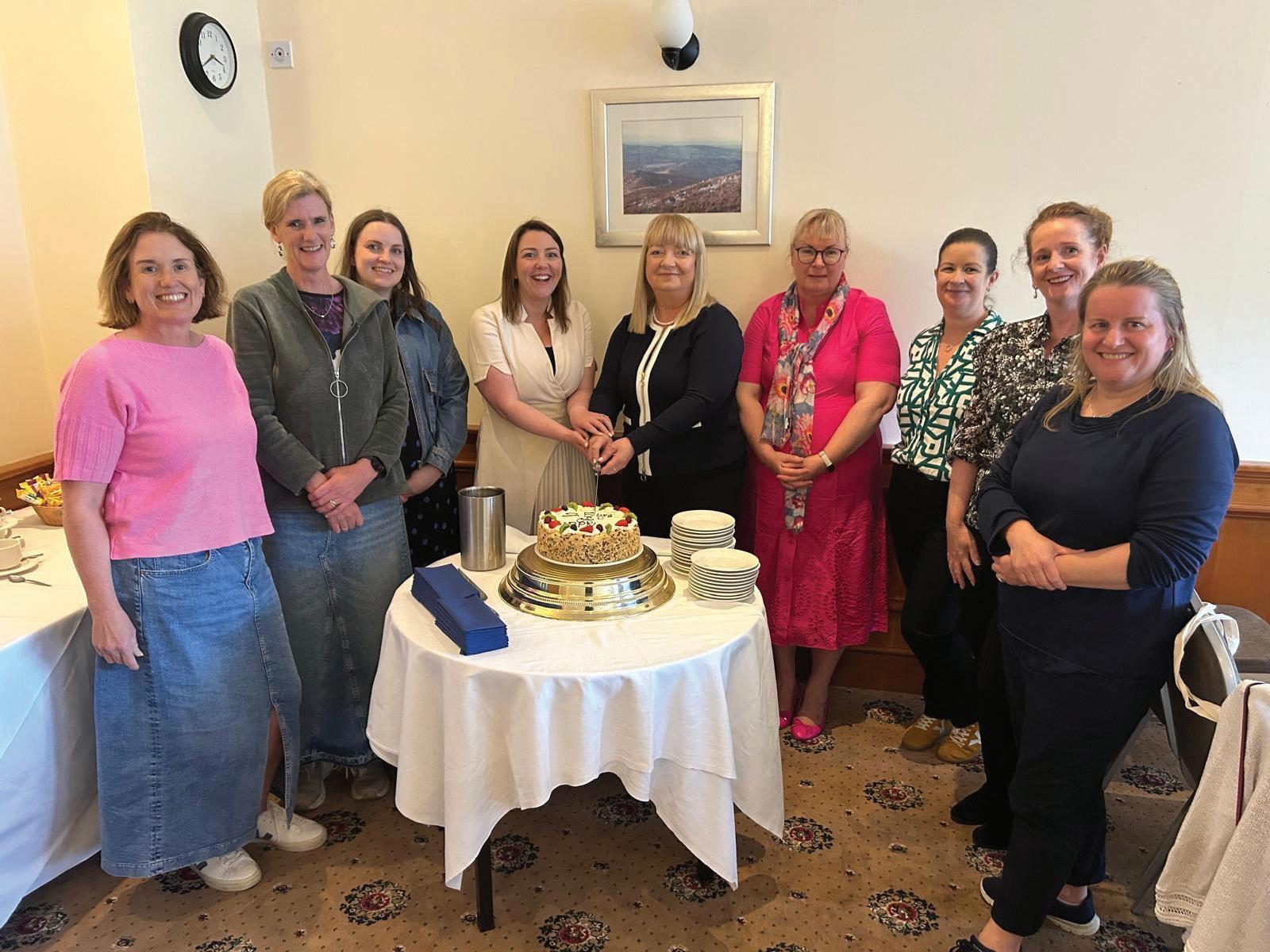
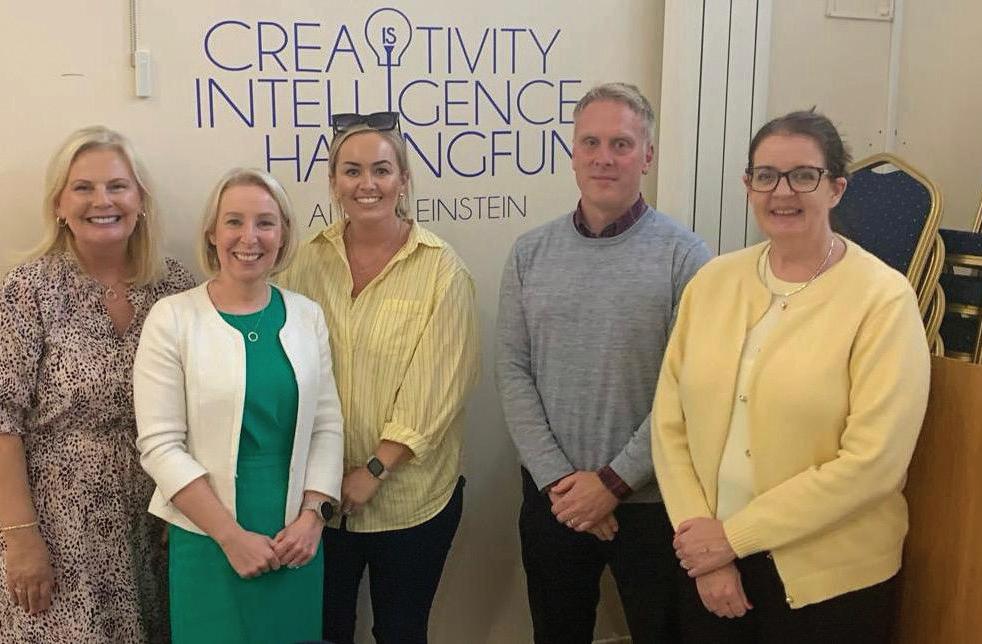

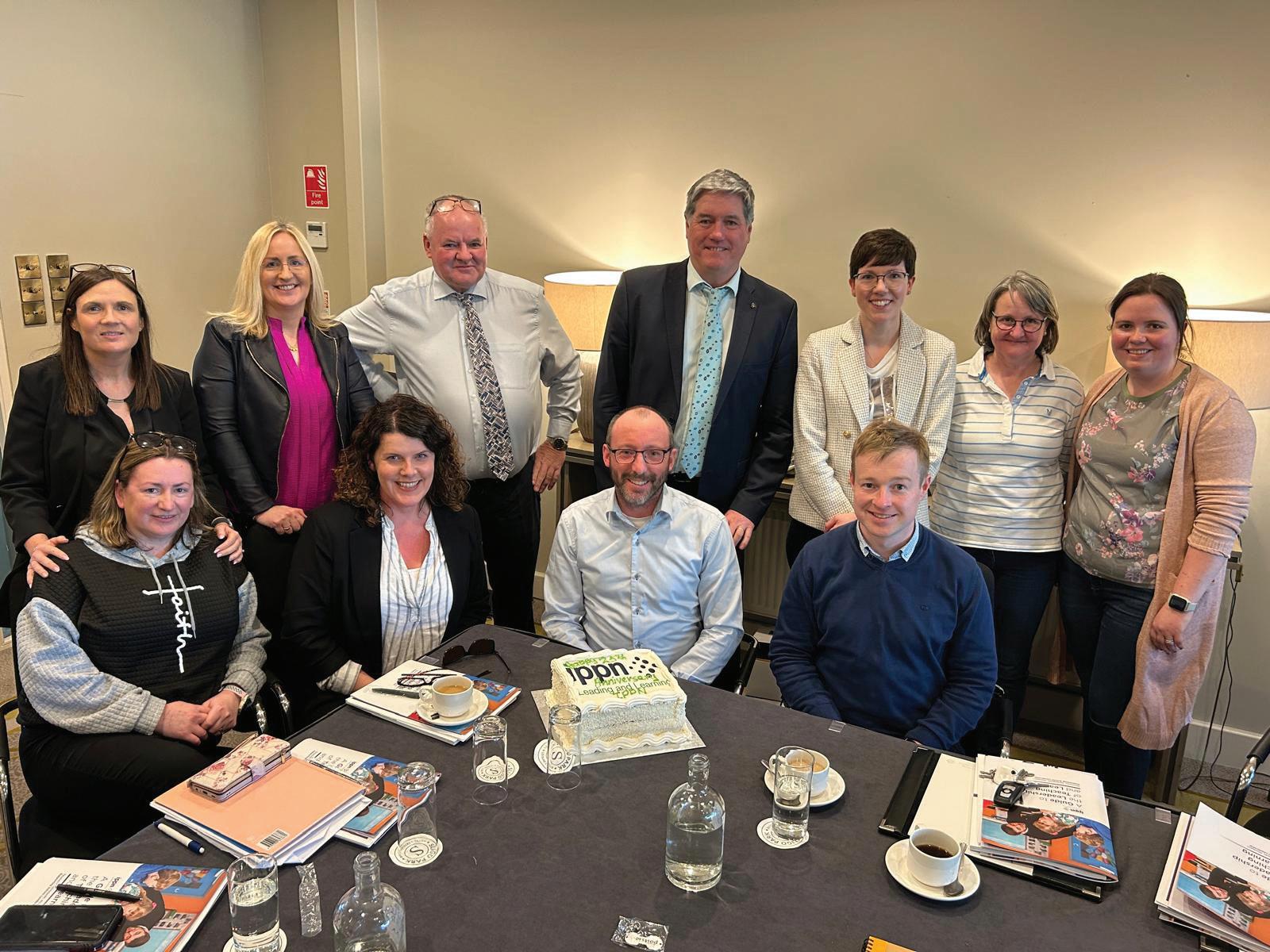
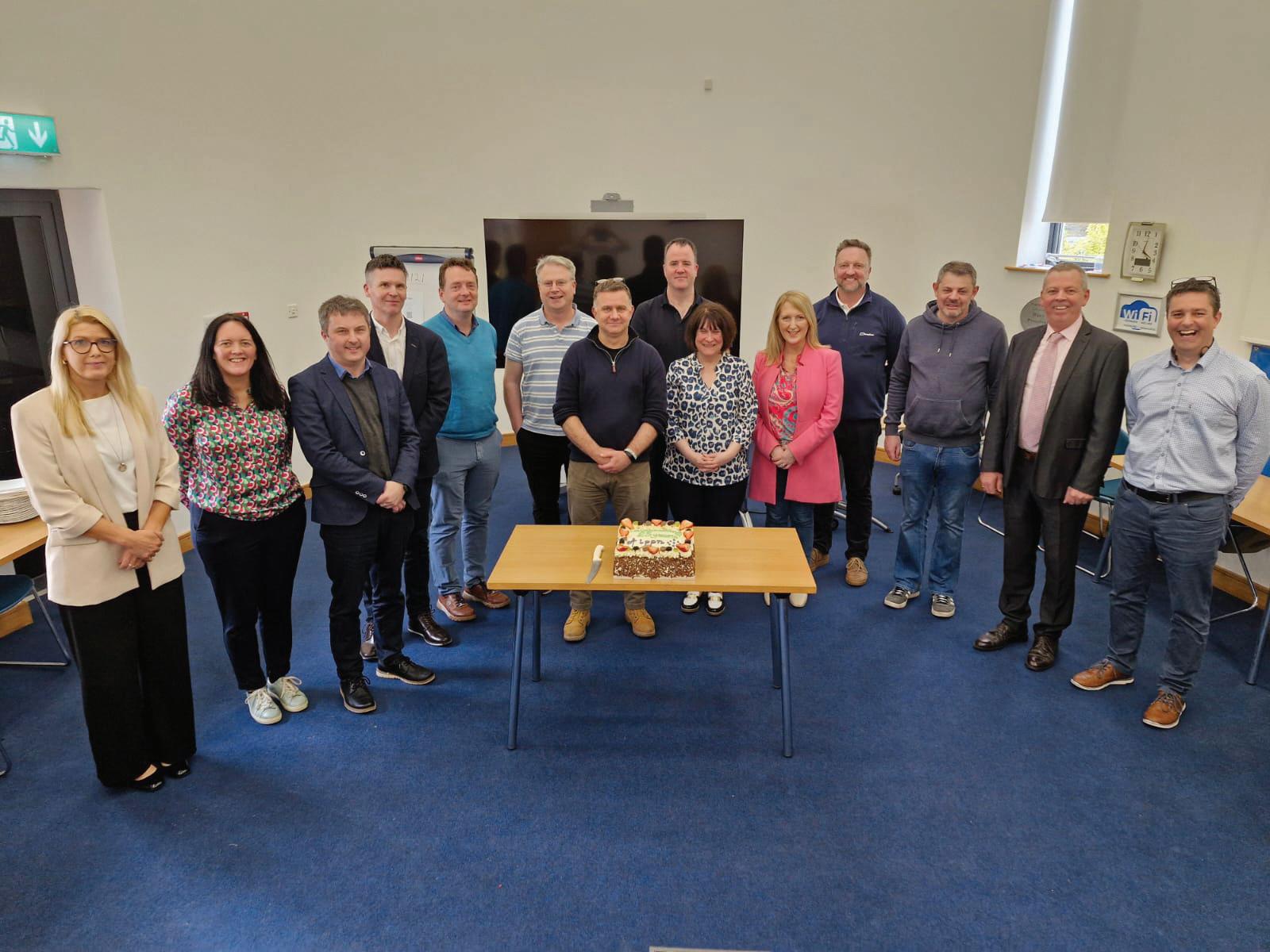
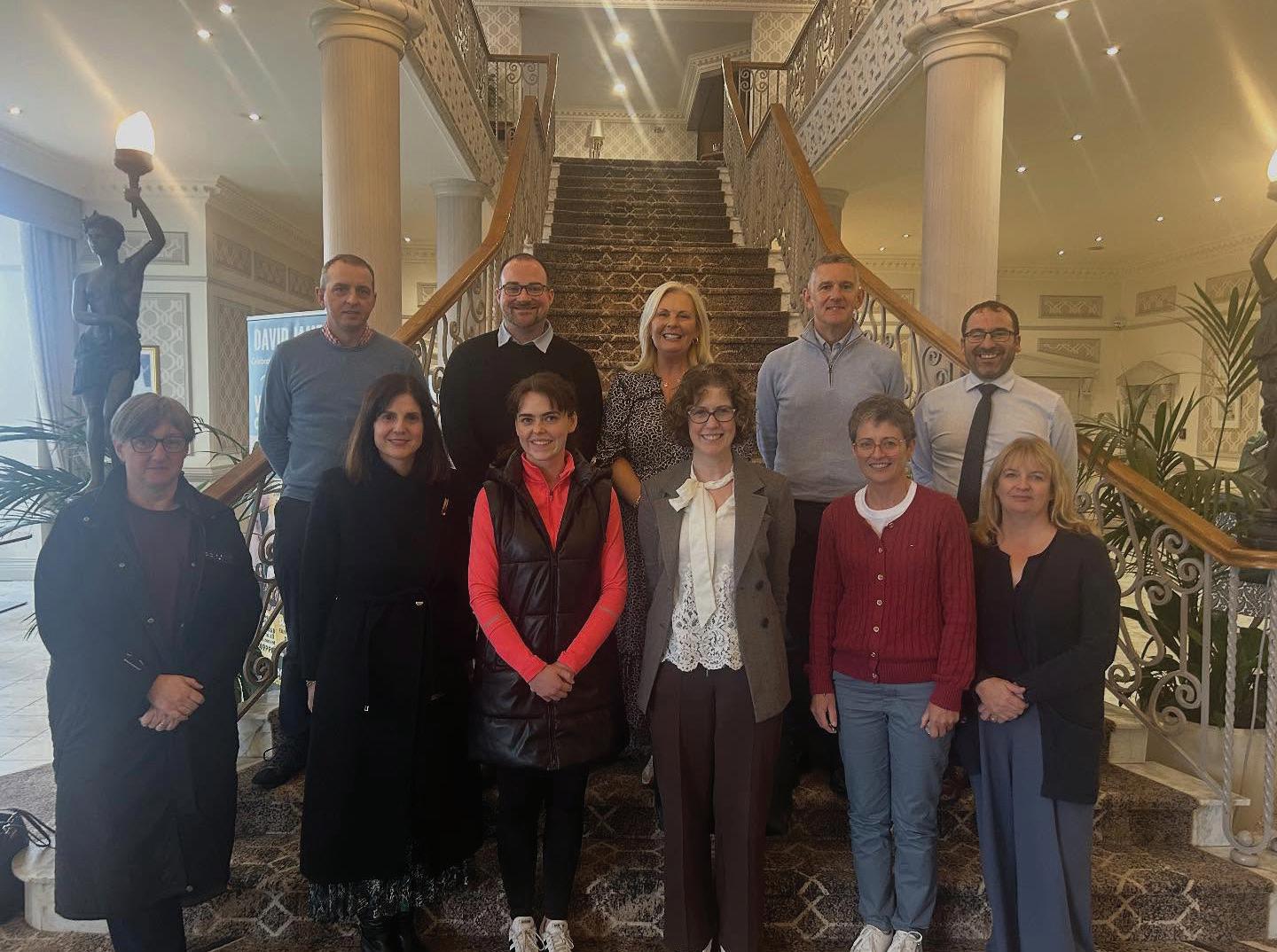
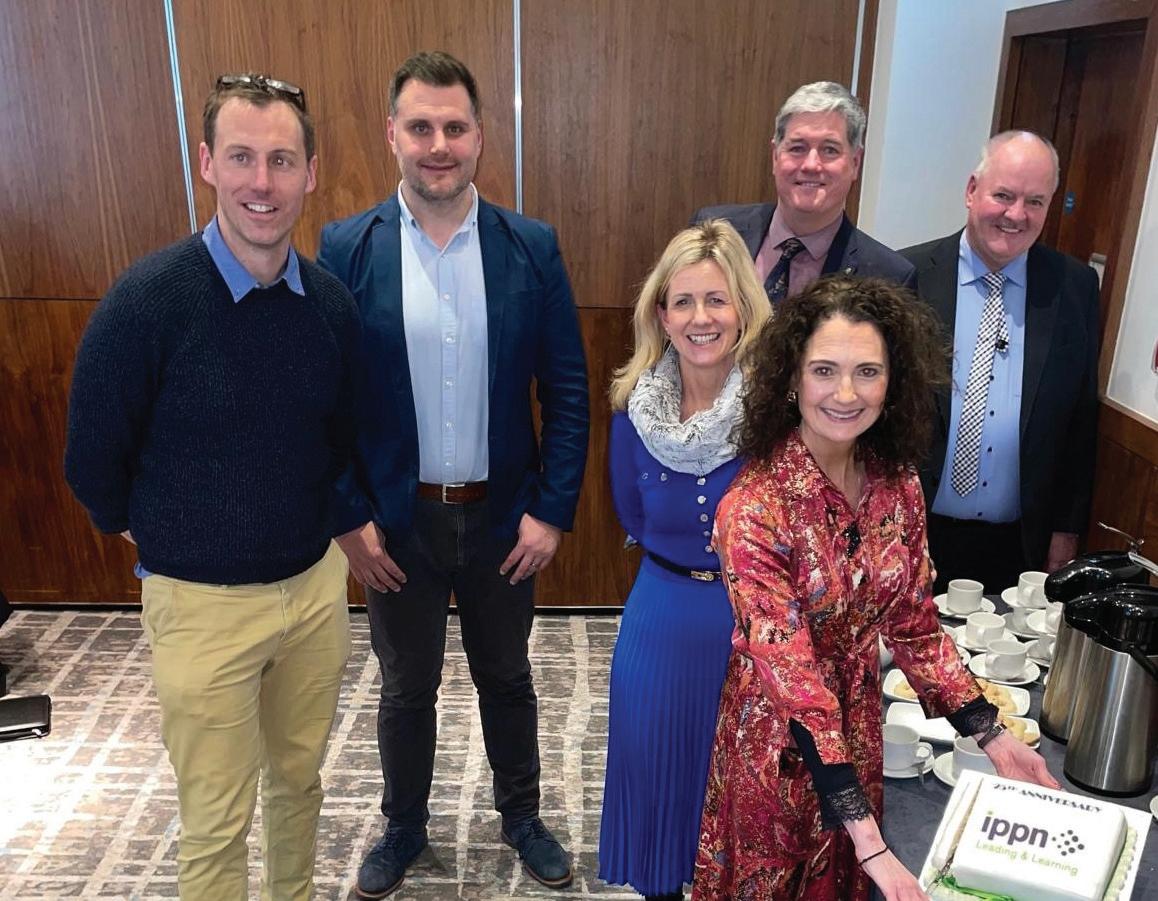
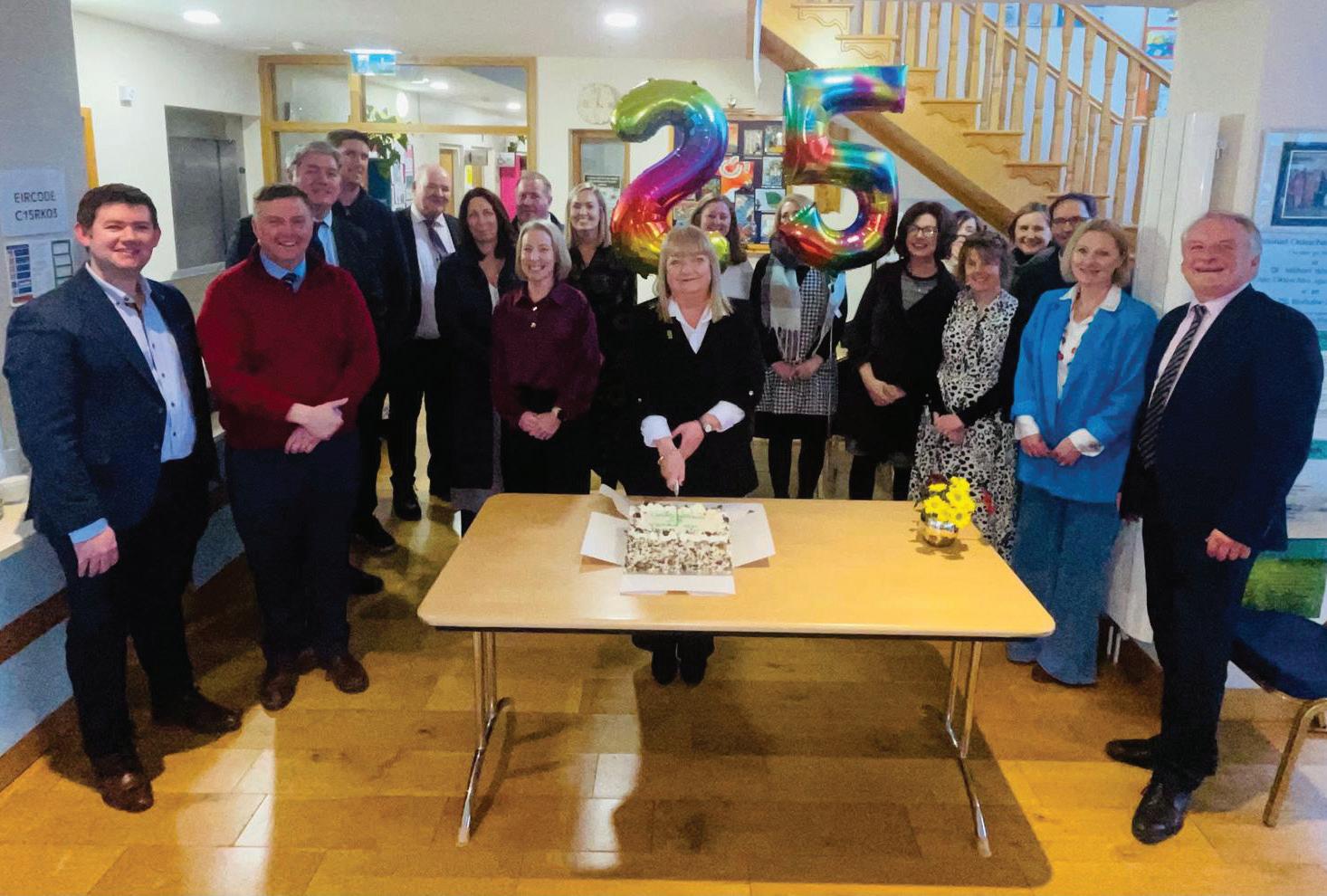
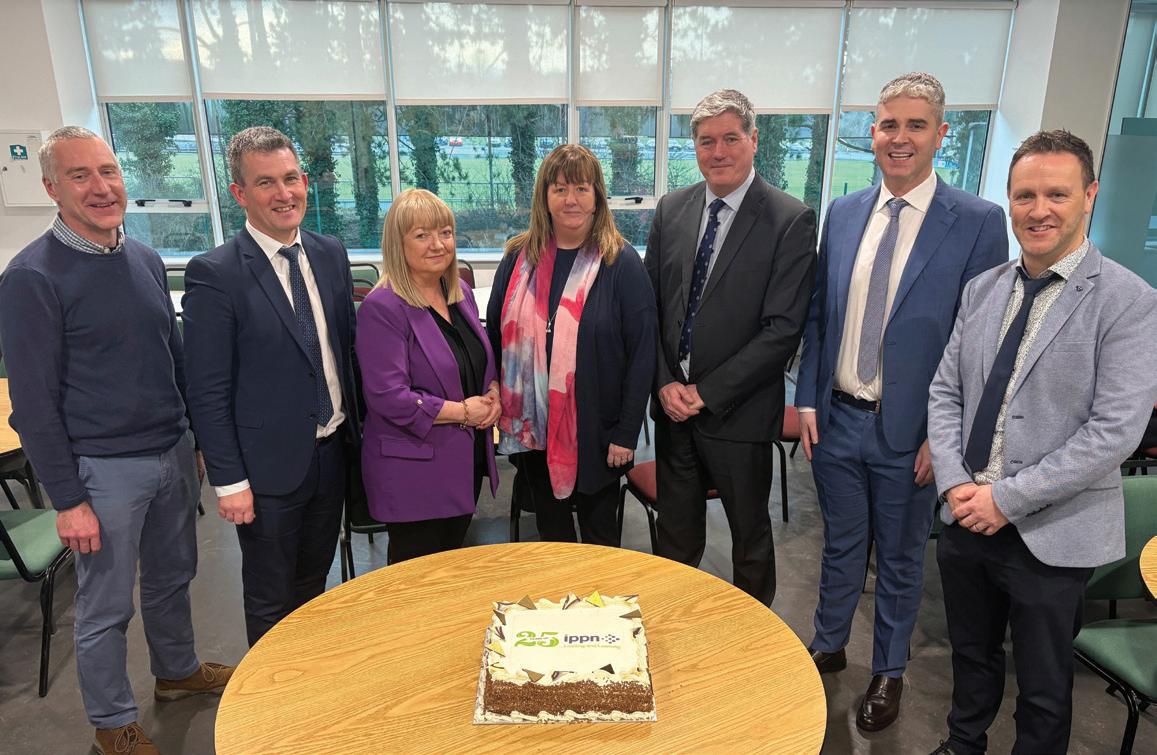
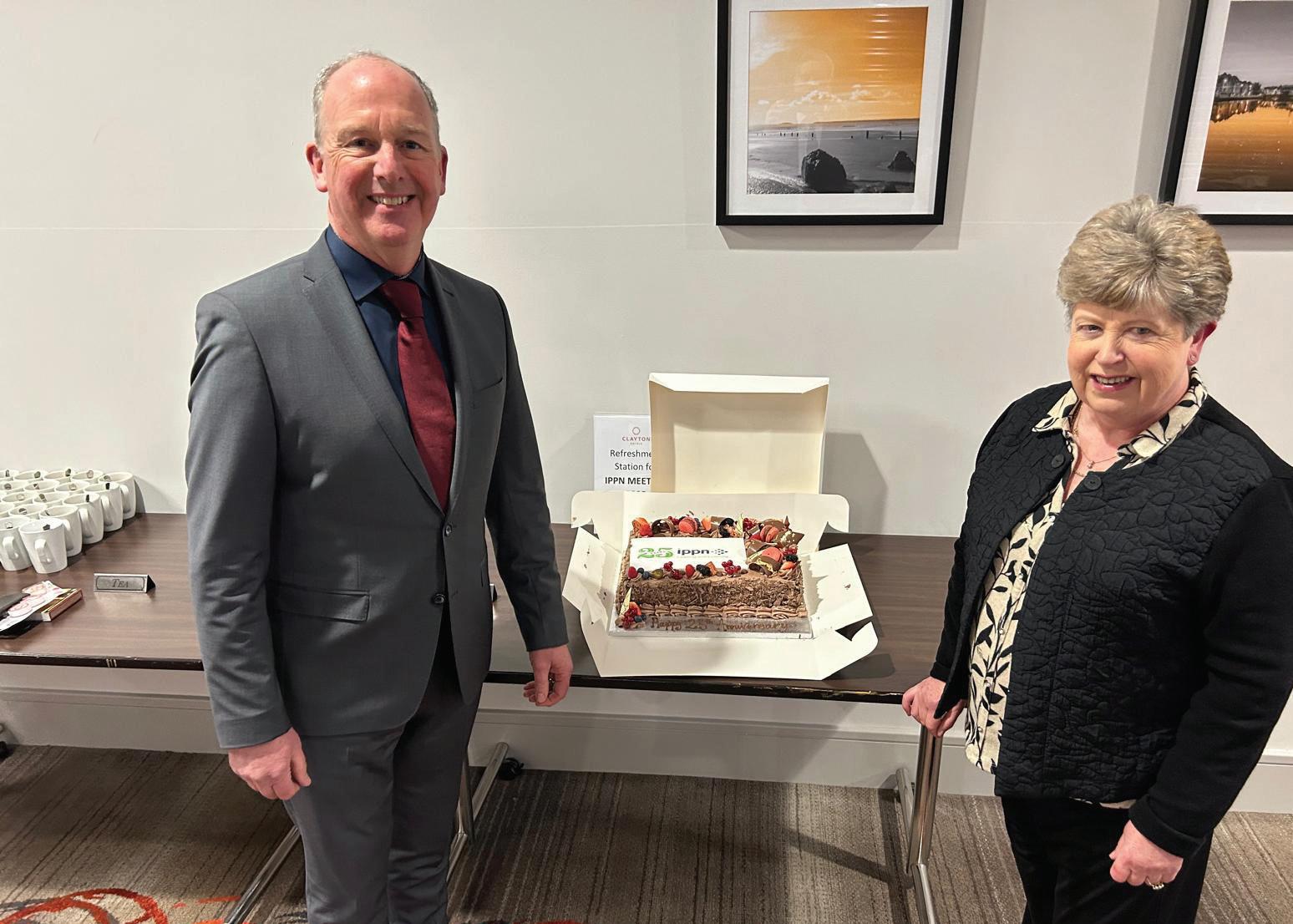
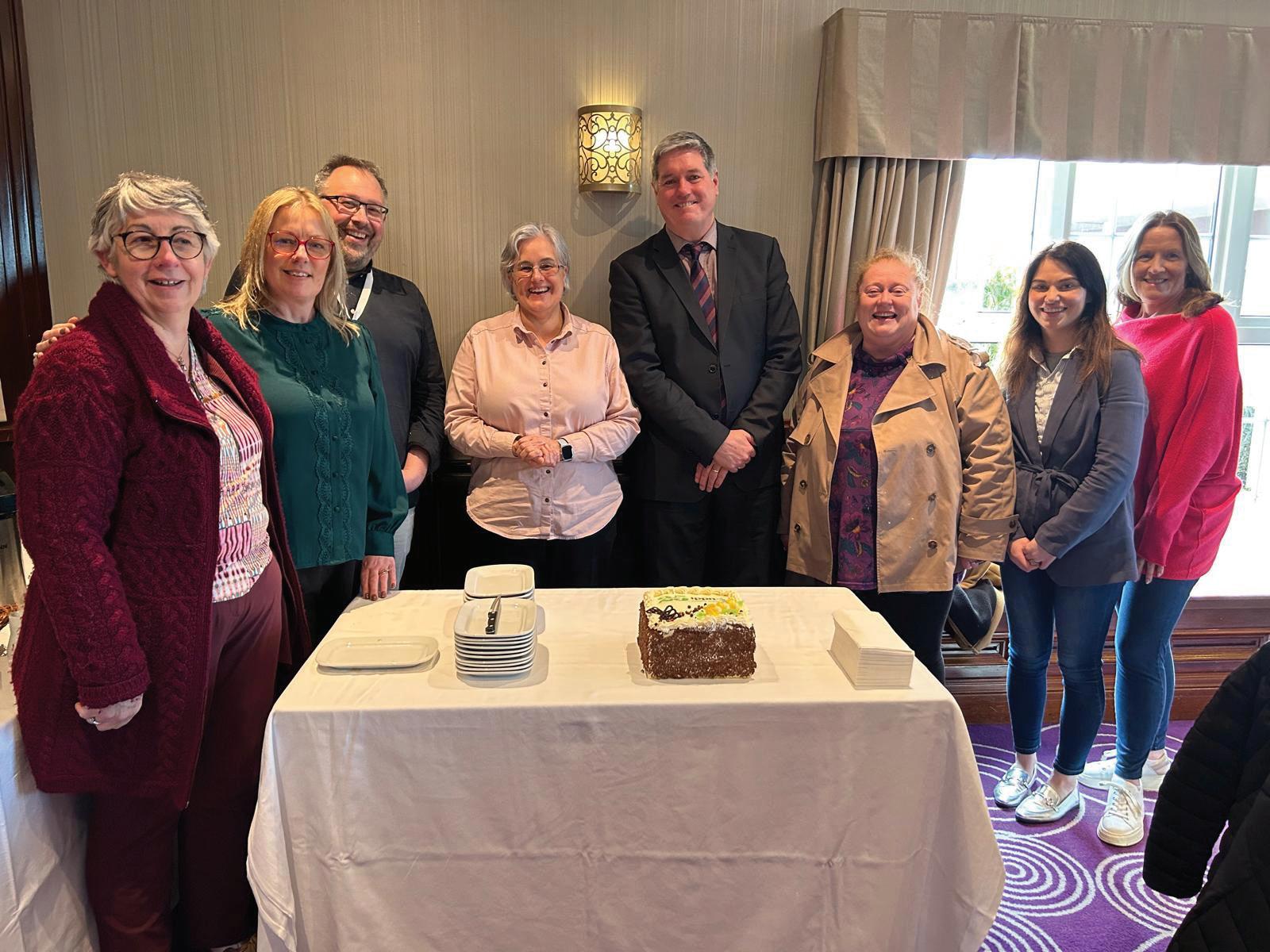
Catríona O’Reilly, Chair of the Board of Directors
2025 has been a significant year for the Irish Primary Principals’ Network (IPPN). The organisation’s 25th anniversary has provided an opportunity for us to reflect on the achievements of the past, to re-imagine how our organisation can respond to and support the current and emerging needs of over 6,000 school leaders and to renew our commitment to shaping educational policy, practice and priorities into the future.
Much of the work of re-imagining and renewing has been undertaken through a robust process of developing Leading for Impact – IPPN’s Strategic Plan 2026-2030. In keeping with IPPN’s collaborative and solution-based approach to the work it does, input was sought from members and both internal and external stakeholders. The resulting strategy is based on the collective wisdom of school leaders, the considered feedback of respected stakeholders and both national and international research.
Leading for Impact – IPPN’s Strategic Plan 20262030 provides clarity around who we are, what we do, how we do it and why we do it. At a time when the work of IPPN is being recognised and quoted internationally (2024/25 UNESCO Global Education Monitoring Report), it is vitally important that we are ready as an organisation to continue leading for impact by supporting, communicating, collaborating and evolving.
In challenging ourselves to deliver on the ambitious strategic objectives in this plan, IPPN aims to collaborate with our members and the wider education system to provide an environment in
Strategic 2026-2030Plan


During this special year for IPPN, we are delighted to welcome the publication of a carefully considered strategic approach that will guide and direct our work over the next five years.
which school leaders can thrive in their roles and lead vibrant schools ensuring improved outcomes for the children we serve. We will have an opportunity to showcase what is possible when IPPN hosts the European School Heads Association (ESHA) Biennial Conference in November 2027. Ireland’s commitment to supporting and empowering effective school leadership will be shared with both European and worldwide leadership organisations and education systems attending that conference.
During this special year for IPPN, we are delighted to welcome the publication of a carefully considered strategic approach that will guide and direct our work over the next five years. We extend our sincere
thanks to everyone involved in the development of Leading for Impact – IPPN’s Strategic Plan 20262030 and we acknowledge in particular the time, effort and commitment of IPPN’s Deputy CEO, Brian O’Doherty and of Róisín Coughlan and her colleagues at Mantra Strategy.
IPPN is the officially recognised professional network for Irish primary school leaders. We take the responsibility of that position seriously, and we are confident that this strategic plan will enable us to remain faithful to the values of our founding members as we evolve and respond to a changing leadership landscape - Because leadership matters.
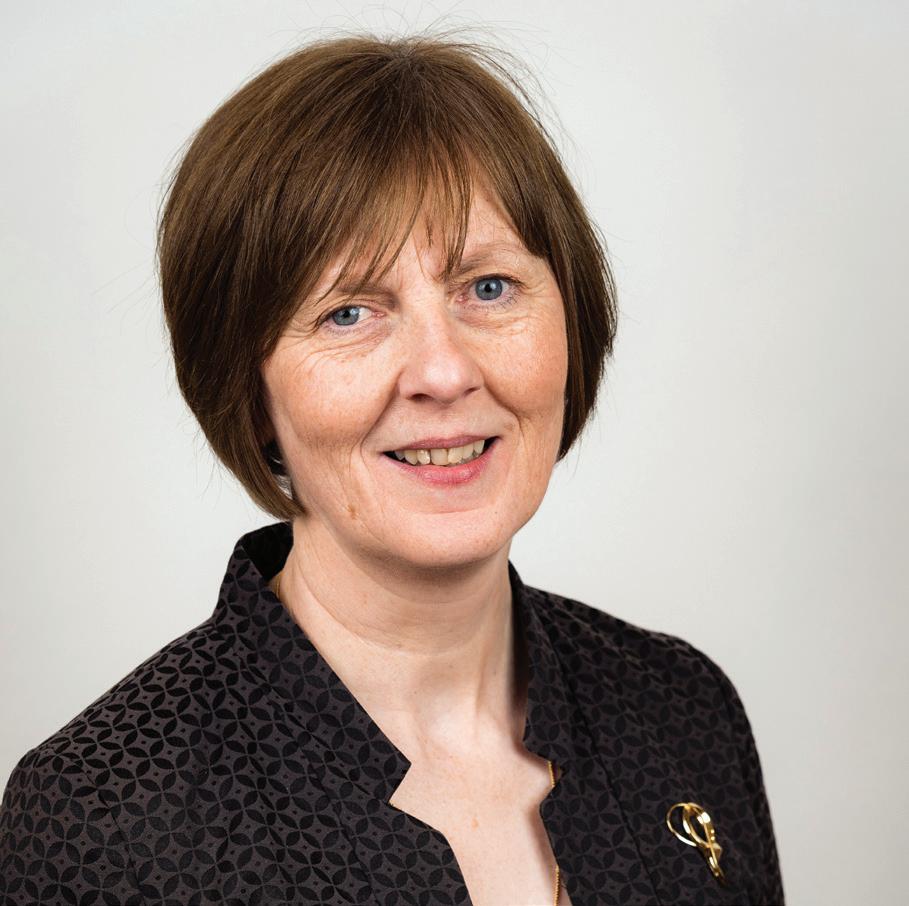
by Catríona O’Reilly
On Saturday, 20th March 1999, a meeting took place in Kildare Education Centre. It was held quietly and without any fanfare, but the outcome of the gathering set in train a governance journey that is ongoing.
Those present on that day agreed that it was time to establish a national organisation that would advocate for primary school leaders and leadership, and be a professional body to support, encourage and empower school leaders through a network of collegiality.
The name proposed for the organisation was the Irish Primary Principals’ Network (IPPN). An Interim Committee was established, and three officers, Secretary, PRO and President were elected. It required patience, and the support of the then Minister for Education and Science, Mícheál Martin, but within 10 months, the Minister issued a letter recognising ‘the pivotal role of the Principal’ and a secondment was granted enabling the newly established IPPN to recruit and employ its first Director (CEO). On 10th February 2000, the fledgling IPPN was officially launched at an event in Dublin Castle by the new Minister for Education and Science, Michael Woods
and the hard work began in earnest. This 25th anniversary year has created an opportunity to reflect on all aspects of the development of IPPN, including the governance path from a founding committee to a highly structured organisation that operates in compliance with the Companies Act, 2014 and the Charities Acts 2009-2024.
Governance is probably not a word that was high on the agenda of the first Interim Directors and Officers of IPPN. At the time, it wasn’t something that was spoken about very often in the media, and those first leaders of IPPN had an enormous task ahead of them in laying the solid foundations for what has become the ‘go to’ organisation for more than 95% of primary school leaders. However, when I reflect on the beginnings of IPPN, I am reminded of the words of Frank Herbert; ‘Good governance never depends upon laws, but upon the personal qualities of those who govern’.
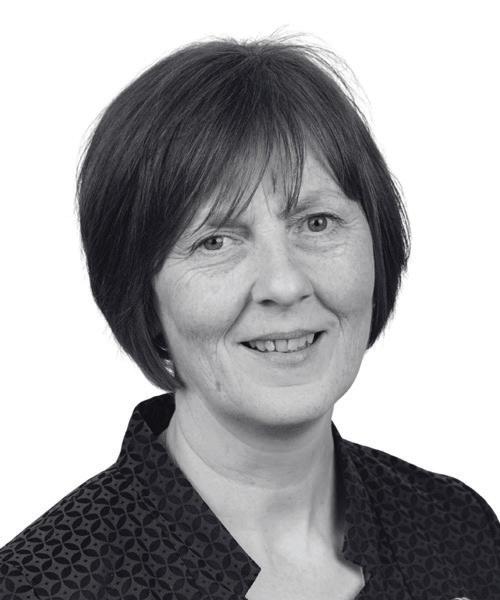
Catríona O’Reilly Chairperson, Waterford

Selina Carmody Teaching Deputy Principal, Wexford
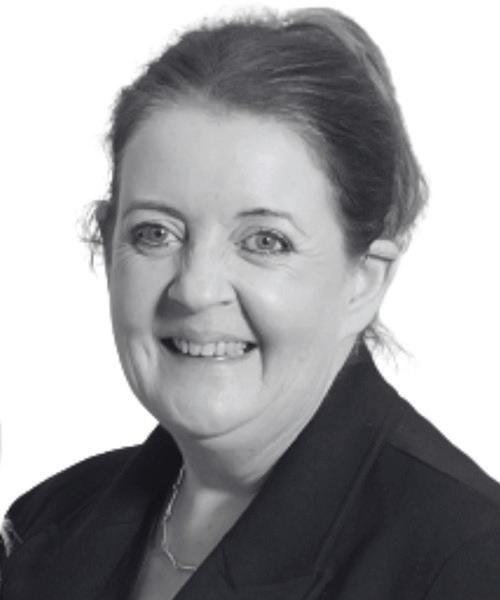
Catríona Donohue President Elect, Cavan
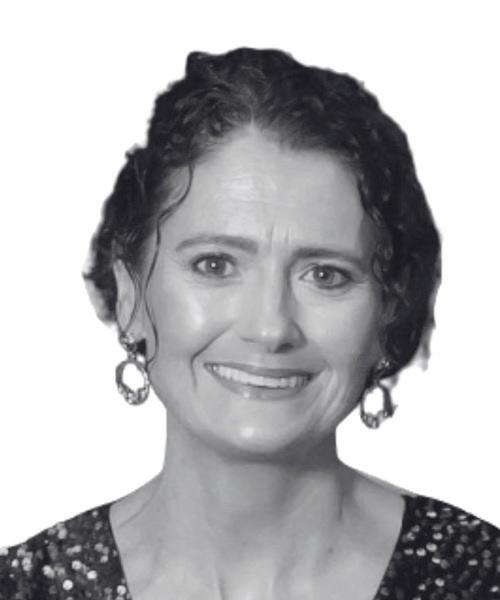
Eileen Pike Administrative Principal, Louth
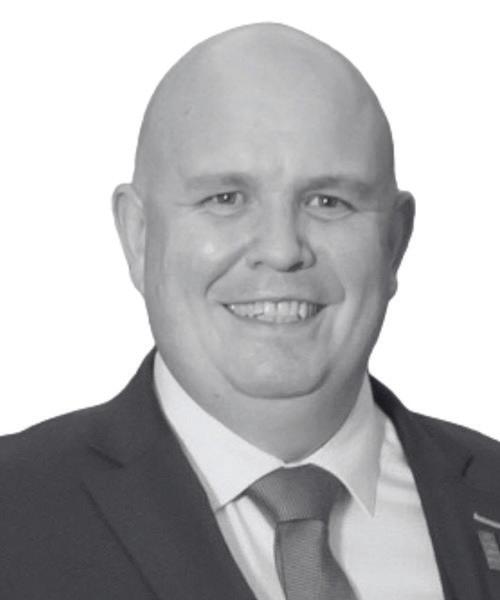
Bryan Lynch Administrative Principal, Laois

Brian Bowden Independent Director, Dublin
The professional way in which the first guardians of IPPN went about their business, the robust approach taken to recruiting and appointing the first Director (CEO) and the structures that were put in place, all speak to an implicit understanding of governance and that when something is worth doing, it is worth doing well.
As a school leader who was appointed in 2005, I had to learn the history of IPPN and how it came about. My own journey with IPPN through local Support Group, County, National Council and Board structures, has provided me with opportunities to engage with many aspects of the organisation. In particular, I have been taught the value of and the need for good governance. What has always been obvious to me is that successive Board, National

Diarmuid Hennessy Administrative Principal, Cork

Aoife O’Connor Teaching Deputy Principal, Galway
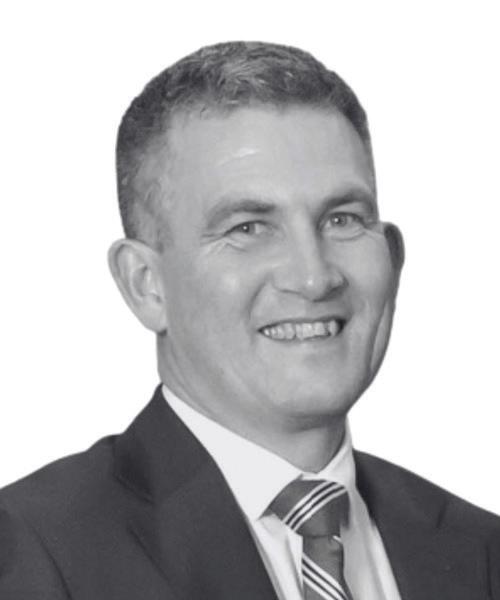
Diarmaid Moore Administrative Principal, Limerick

Regina Halpin Administrative Principal, Dublin
Council and Staff members have demonstrated time and time again that their common goal is the best interest of IPPN and its members. Evidence of this is found in the challenging and robust discussions at the Board table, discussions that are conducted in a confidential environment that encourages openness and honesty.
Since February 2000, IPPN has grown and evolved. The values of the founding members and the first Directors have been passed on and the standards they set have been maintained by successive Boards and Staff.
Today, IPPN is a company limited by guarantee and a registered charity. The 2020-2025 Strategic Plan
Governance is important. It is all about the big picture – overseeing finances, strategic planning, managing and mitigating risk. More importantly, it is about upholding values and creating an environment where the company’s vision can be achieved. It is about doing the right things in the right way.
identified a need to review the governance of IPPN. That resulted in an in-depth piece of work to ensure that our organisational and governance structures are robust, compliant and fit for purpose. Among other changes, including a complete revision of the Constitution, the number of local Networks was expanded from 26 to 31, and the National Council was expanded from 52 to 93 members. Each member of the National Council sits on one of three committees that contribute to the strategic direction and work of IPPN.
Our focus remains on advocacy and on providing supports and services to our members. This work is enabled by careful management and considered expansion of the commercial and operational sides of the business. The Board of Directors has a responsibility to oversee the operation of the company, including the best use of its finances and resources, to ensure compliance with statutory and legislative obligations and to implement good governance practices.
Much as I might like to believe otherwise, it is very unlikely that anyone will look at the Contents page of this publication and turn immediately to the section that reflects on the governance of IPPN. That is probably a good thing. Governance is usually only under discussion when there is an issue or a concern as to how an organisation is being managed.
As we celebrate 25 years, IPPN is in a good governance space. The Charities Institute Ireland has awarded IPPN its Triple Lock Standard for demonstrating the highest standard of transparent reporting, good governance and ethical fundraising. Thanks to the commitment of Staff and Board, IPPN has been recognised as a charity that ‘is professionally run, financially accountable, and committed to delivering meaningful impact’. Governance is important. It is all about the big picture – overseeing finances, strategic planning, managing and mitigating risk. More importantly, it is about upholding values and creating an environment where the company’s vision can be achieved. It is about doing the right things in the right way.
Over the past two years, as the first elected Chair of IPPN’s Board of Directors, I have been involved on a regular basis with the governance of the organisation and all that that entails in the current legislative landscape. I feel privileged and proud that working in collaboration with wonderful staff members, Board colleagues and National Council members, we have been able to contribute to IPPN’s ongoing governance journey. As we embark on our next 25 years, I wish every success to IPPN’s future governors as they continue the legacy of our founder members.
Catríona
O’Reilly IPPN Chairperson 2023-2025


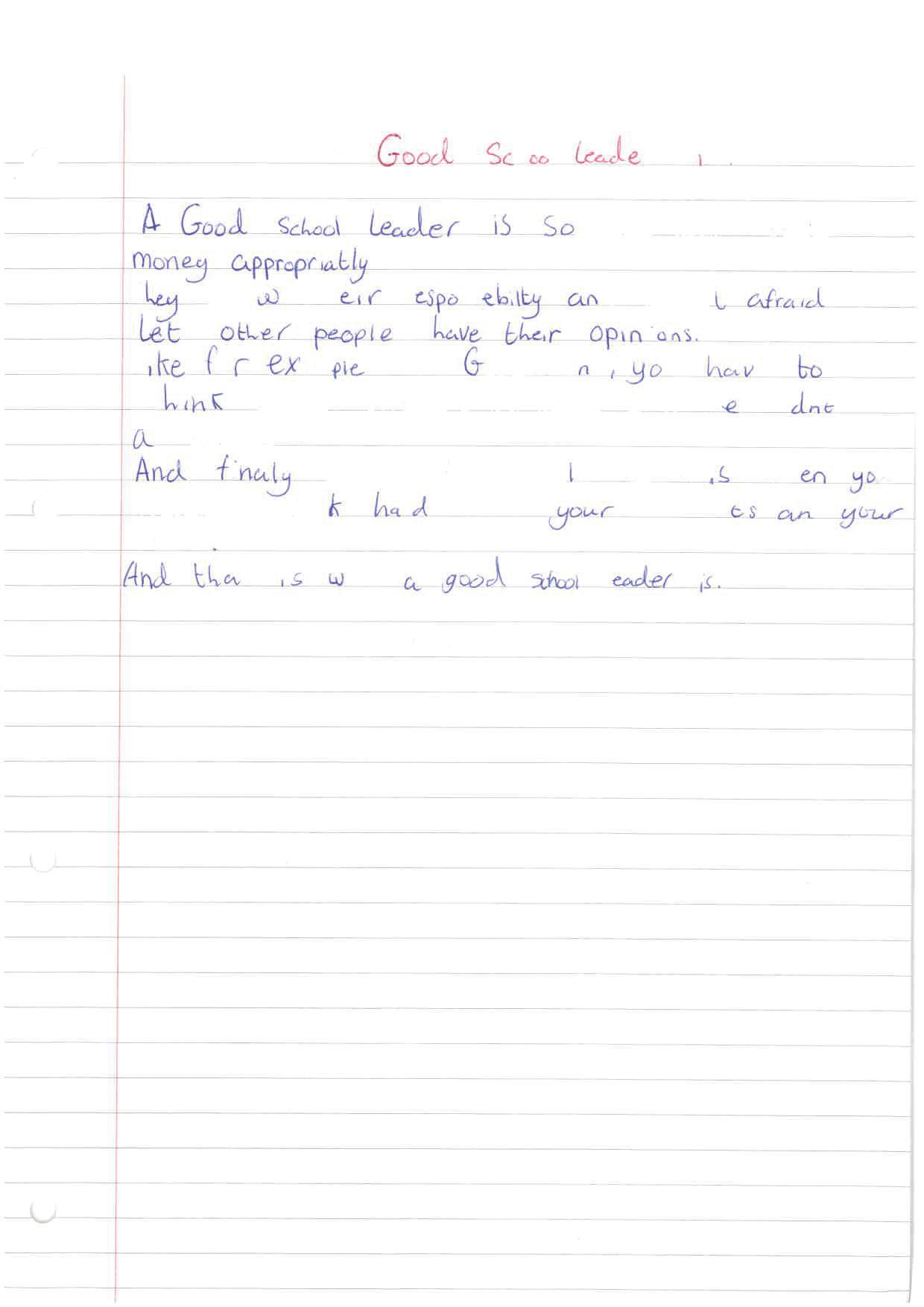
In 2010, IPPN published Deich mBliana ag Fás, which sets out the history of the first ten years of IPPN - the milestones, the key people and what was happening in schools during that period. For the early history of IPPN therefore, please refer to that publication.
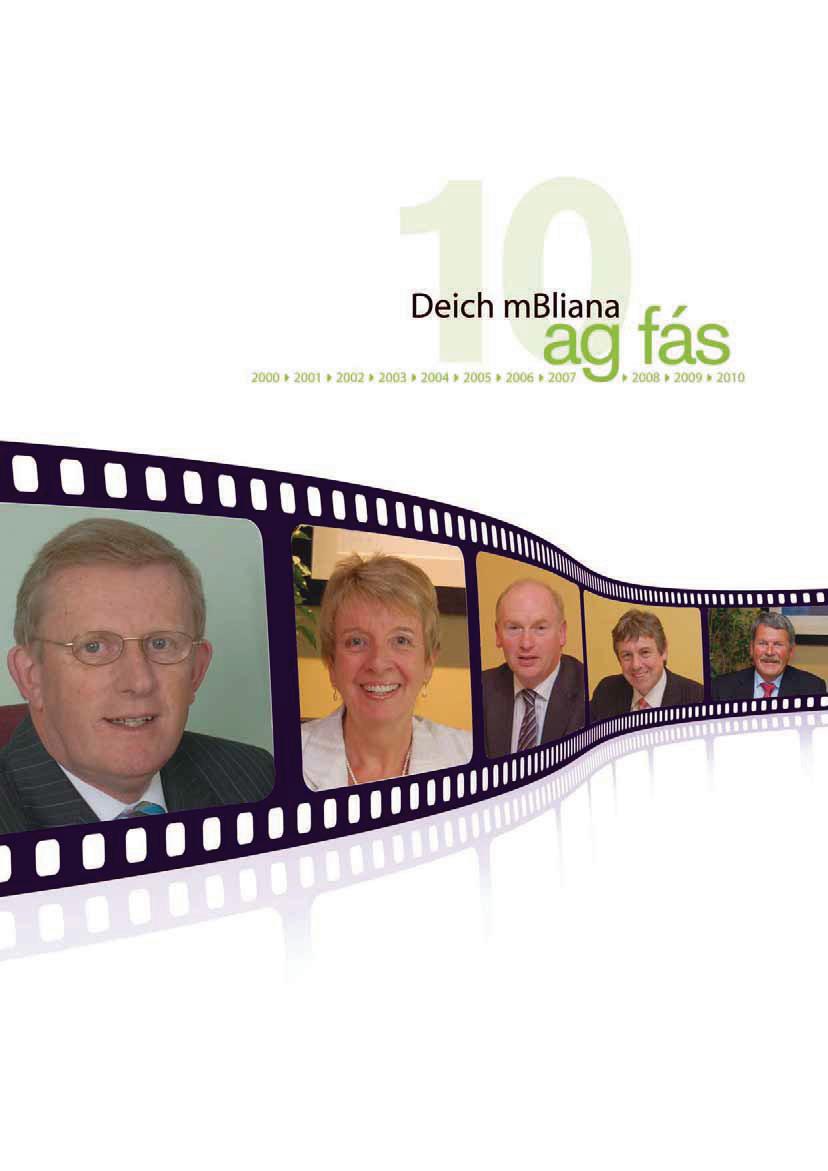
By Jim Hayes
Context and Obstacles IPPN – The Irish Primary Principals’ Network – is the officially recognised professional association for Primary Principals in Ireland. In endeavouring to illustrate the context and background that pertained at the time of its foundation in 2000, it is enlightening to look at the development of professional associations in education in other parts of the world in the second half of the last century.
While some Principals’ associations such as the Texas Elementary Principals and Supervisors Association (1917) and the National Association of Elementary School Principals (1921), were founded many years previously, it is interesting to note that among the associations founded from the sixties on were Queensland Association of State School Principals (1966), Victorian Principals’ Association (1971), Illinois Principals Association (1971), Association of Washington School Principals (1972), Pennsylvania Association of Elementary School Principals (1972), Elementary School Heads Association (1973), Canadian Association of Principals (1977), Association of Catholic School Principals in New South Wales (1980s) and New Jersey Principals and Supervisors Association (1981). In addition, Principals’ associations existed in South Africa, New Zealand and Asia.


and the difference between holding the post of Principal and that of assistant teacher. The duties of the Principal were clearly outlined in a Department of Education Circular 16/73. There was a growing awareness that the role of Principal Teacher was becoming more complex. Some Principals at the time made demands on their union, the INTO, and when these were rejected, endeavoured to set up an association of their own. This resulted in INTO Congress 1974 adopting a resolution in the following terms: “Congress condemns the formation of a Principal Teachers’ Association on the grounds that it would be divisive and contrary to the professional interest of the organisation”.
Furthermore, a Eurydice study in March 1996 confirmed that Associations of School Heads existed in the following countries – Belgium, Germany, Greece, France, Italy, Luxembourg, Netherlands, Austria, Finland, Sweden, the United Kingdom (including England, Wales, Northern Ireland and Scotland), Iceland, Liechtenstein and Norway.
In Ireland, the situation was somewhat different. No first level or second level independent professional association for Principal teachers existed nor was the setting up of such an association encouraged! Indeed there is more than anecdotal evidence that Principals in the sixties and seventies were actively discouraged from organising themselves in a formal way.
In the late 1960s and early 1970s, some Principals saw the need to discuss with each other common issues pertaining to their Principalship. During this period, discussions emerged regarding the post of Principal
4
Around this time there were a number of areas where some Principals felt exposed within their union, particularly with regard to a revised grievance procedure, ongoing criticism of Principals in relation to the integrity of the panel system and the introduction of staff representatives which gave rise to concerns. The INTO leadership, following a resolution passed at Congress 1979 instructing the CEC to examine and redefine organisation policy on the administration of schools, issued a follow up report that was published in February 1980. This proved to be controversial, was sent to branches for discussion and when in 1982 the CEC reported to Congress, it didn’t find favour and was withdrawn ‘for further consideration’. Meanwhile, Principals in at least one district of the INTO met regularly to discuss matters of mutual interest and continued to do so for some years. When a communication from a body called “The Association of Principals of National Schools of Ireland – Cumann
First Ever Irish Primary Principals’ Conference A Conference Organising Committee was formed and so the first Irish Primary Principals’ Conference ever held in this country took place. Entitled ‘Talking Heads’, it was held in the Imperial Hotel on October 14th & 15th, 1994 and was attended by over 250 Principals from all over the country. The Cork Teachers’ Centre, the In-Career Development Unit of the Department of Education and the European Commission all supported the initiative. The Minister for Education, Niamh Bhreathnach gave the opening address and Máire Roycroft responded. John Dennehy, Assistant Secretary of the Department of Education, spoke about the Changing Role of the Primary Principal. Philippa Cordingly, Consultancy and Training Services, Coventry, gave her experience of Local Education Structures in England and their implications for Principals, and Professor Joe Lee (UCC) spoke of Tradition and Change in Irish Primary Education. Albert Ó Ceallaigh (NCCA) outlined Impending Developments in the Primary School Curriculum. Fifteen topics were covered in discussion groups over the two days. Local Principal Eilís U Shúilleabháin gave the closing address. A written report containing the contributions of each speaker was sent to each attendee and an evaluation of the conference also took place which signalled clearly the success of this initial venture.
6 be made professionally by Principal teachers. To that end, Máire Roycroft came up with the idea of organising a Principals’ Conference. These pioneering groups had the foresight and took the initiative to shed what the Report on The National Education Convention termed a “dependency culture” (Coolahan, 1994) and began to take primary responsibility for their own professional development.


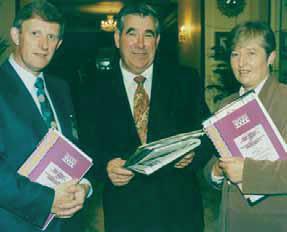
The keynote speakers at a third conference with the theme ‘Sharing Good Practice’ - held at the same venue on October 11th & 12th, 1996 - included Don Thornhill, Secretary General of the Department of Education, Dr. Áine Hyland, Professor of Education, UCC and Pat Cox, MEP. The organising committee for these conferences included local Principals Michelle Cashman, Seán Ó Caoimh, Con McCarthy, Brendan McCormack, Seán Cottrell, Pat Delea, Íde Ní Dhúbháin,
In April 1995, Principals noted the publication of the Department of Education White Paper, ‘Charting Our Education Future’, which suggested that the establishment of formal networks of Principals had the potential to become an important means of providing professional support and provision for the transfer of good practice for Principals. The theme ‘Making Sense of the Principal’s Role’ was the focus for a second Principals’ Conference that was held on October 13th & 14th, 1995. Speakers included John Coolahan, Professor of Education, St. Patrick’s College, Maynooth, Dymnpna Glendenning, Barrister and former Primary Principal, Sr. Eileen Randles, CPSMA, Catherine Byrne, INTO, Maureen Peters, Teaching Principal, Chris Day, Professor of Education, University of Nottingham, Sam McAughtry, Broadcaster and Author, and Br. Leader, Director of Marino Institute of Education. Dr. Ciarán Sugrue, Lecturer in Education at St. Patrick’s College, Drumcondra summed up at the end of the conference.





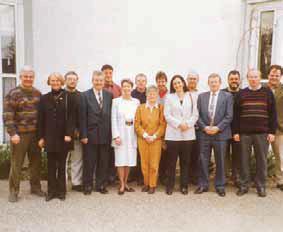
Transfer Of National Conferences From Cork To Dublin Many Principals in the support group, facilitated by Dr. Ciarán Sugrue, Education Department, St. Patrick’s College, Drumcondra, attended the three conferences in Cork. They indicated that they were prepared to undertake the responsibility for organising a fourth conference, to be held on this occasion in Dublin. An initial meeting of Dublin Principals was called for this purpose and was attended by three members of the Cork Conference organising committee on March 1st, 1997, which brought important continuity to the process at the time.
Cottrell,
Handbook, the Role of the Teaching Principal, Transition from Primary to Post-Primary, Contracts for Ancillary Staff, the Role of the Deputy Principal, the provision of a website and the organisation of Seminars. Membership was opened to Deputy Principals in the school year 1999/2000.
A one-day seminar organised by CPPN entitled ‘A Head for the Millennium’ was held on January 18th, 1999. Officially opened by the Minister for Education & Science, Micheál Martin, TD, the list of speakers included Éamon Stack, Chief Inspector, Department of Education & Science, Gus Murray, Lecturer in Counselling at the Cork Institute of Technology and Sr. Maura Corbett.
Another one day seminar ‘Pupils with Special Needs in the Primary School’ was held on October 16th, 2000. Officially opened by Dr. Michael Woods, TD Minister for Education & Science, speakers included Peadar McCann, Divisional Inspector, Department of Education & Science, Paud McGee, Special Education Department, St. Patrick’s College, Drumcondra, Michael Sheehan, National Educational Psychological Service and Brid N Dhomhnaill, parent.
When the national Network, IPPN, was founded in 2000, CPPN made the necessary adjustments to become part of the national Network and changed its name to IPPN Cork.

At a period when school leadership has been recognised internationally as of key importance in promoting effective and efficient schools, IPPN has been playing a major role in Irish primary education. It has been a bulwark of support for school leaders. Its effective advocacy has been enriched by research-based evidence. One has also been impressed by how IPPN has contributed to, and benefited from its international linkages. Professor John Coolahan,Head of Education (Retired),NUI Maynooth



attend the inaugural meeting in Kildare, were invited to attend the second meeting of the Interim National Committee held on April 17th 1999 in the Kildare Education Centre and subsequent meetings thereafter.
Members of the full IPPN Interim National Committee were Jim Hayes (Cork - President), Raymond King (Kildare - Secretary), Moira Lynch (Westmeath - Minute Secretary), Úna McNamara (Dublin -Membership Secretary), Tomás Ó Slatara (Tipperary - Public Relations Officer), Seán Ó Díomasaigh (Meath - Joint Treasurer), Íde N Dhúbháin (Cork - Joint Treasurer), George Barry (Tipperary), Gearóidín Ní Bhaoill (Wicklow), Isbéal Brennan (Kilkenny), Noeleen Brennan (Dublin), Ciarán Boland (Cork), Ann Byrne (Kilkenny), Sr. Chanel Canny (Galway), Sr. Geraldine Costello (Galway), Margaret Condon (Dublin), Seán Cottrell, Colm Cregan (Limerick), Susan Doody (Dublin), Larry Fleming (Offaly), Eileen Flynn (Kildare), Pat Kavanagh (Wexford), Áine Lawlor (Dublin), Anne McDonagh (Dublin), Pat Meagher (Tipperary), Paul Murphy (Tipperary), Virginia O’Mahony (Galway), Frank O’Meara (Kildare), Breda Rice (Kilkenny), David Ruddy (Dublin), Ciarán Sugrue (Dublin), Maurice Whelan (Galway), Damian White (Offaly), Damian White (Tipperary). At a subsequent meeting of the Interim National Committee held in Portlaoise Education Centre on December 6th, 2000, the following Principals were co-opted on to the Interim National Committee : Noreen Carroll (Dublin), Marjorie Flynn (Kerry), Paddy Flood (Monaghan), Seán Hanley (Cavan), Seán Holian (Galway), Peter Long (Limerick), Pat Moore (Galway), John O’Byrne (Clare)].
Church of Ireland Board of Education, NAPD as well as the Education Centre Directors. The feedback at these meetings was very positive and encouraging and helped to reassure the Interim Committee that there was a widespread interest in having a national organisation to promote on-going professional support and development for Primary School Principals. The meeting held with officers of NAPD was of particular significance due to the fact that they had been given official recognition in 1999. Interim President Jim Hayes was in regular contact with NAPD President Shay Bannon, whose advice and support at this time was of great assistance. In anticipation of formal official recognition, much time and consideration at the early Interim National Committee meetings was devoted to debate on the overall structure of IPPN as a professional association –a relatively new concept in education in Ireland at the time – as well as the drawing up of a draft constitution and appropriate guidelines for the development of Primary Principals’ Support Groups and County Networks.
At a key meeting in the Department of Education on 19th January, 2000, officers of the IPPN Interim Committee were provided with a letter signed by the Minister for Education & Science, Micheál Martin TD stating that the Department “recognises the pivotal role of the Principal in the school community and is positively disposed towards providing support towards the establishment on a nation-wide basis of this new organisation”. The officers were also informed that the
Over the following weeks and months, the IPPN interim officers met with the Minister for Education and Science, officials in the In-Career Development Unit of the Department of Education and Science, the major partners in Primary Education including the INTO, CPSMA, NPC, Gaelscoileanna, Educate Together,

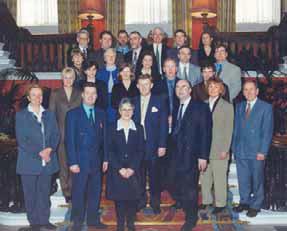
Department would provide for “the secondment of a Principal Teacher for one year to act as a Director to the Network …..” Similar groundbreaking arrangements had been made with the National Association of

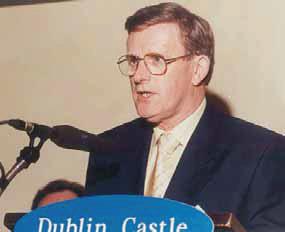
It was decided to hold the fourth National Conference in the Grand Hotel, Malahide, Co. Dublin. The organising committee was augmented to make it broadly representative of school size and type. This committee called itself Primary Principals’ Network (Eastern Region). The fourth National Conference for Primary School Principals with the theme ‘Leadership in a Climate of Change’ was held on February 27th & 28th 1998 in Malahide. Members of the organising committee included Carmel Bolger, Deirdre Cleary, Margaret Condon, Inez Cooper, Susan Doody, Lucy Fallon-Byrne, Eileen Flynn, Rita Galvin, Sr. Denise Harvey, John Kavanagh, Iggy Keane, Raymond King, Áine Lawlor, Michael Ludden, Gerard McHugh, Seán Ó D omasaigh, Paul O’Mahony, Frank O’Meara, Éamonn Ó Murchú, Bryan O’Reilly, Ciarán Sugrue, Henry Thynne and John Tyrell. A fifth National Conference followed on February 26th & 27th 1999 at the same venue with the theme ‘Being a Head – Staying a Head’.
Formation of The Irish Primary Principals’ Network - Líonra Phríomhoidí Bunscoile
Éireann
for moving forward after which he subsequently liaised again with Ciarán Sugrue. At the concluding session of the conference, which was chaired by Ciarán, proposals to form a National Network were made from the floor and an invitation was issued to Principals who wished to become involved in the formation of a National Network of Primary Principals to come together at the conclusion of the conference. A group of over thirty Principals responded positively to this invitation and indicated that they were prepared to become involved in getting the initiative off the ground. An initial meeting was called for March 20th, 1999, in the Kildare Education Centre which was kindly put at the group’s disposal by Anne Kelleher, Director, Kildare Education Centre. The Principals who attended the inaugural meeting agreed to form an Interim Steering Committee for a national Primary Principals’ Network which would be called The Irish Primary Principals’ Network – IPPN – Líonra Phríomhoidí Bunscoile Éireann.
The title ‘Primary Principals’ Network’ created an impression in some Principal’s minds that a Principals’ Network already existed. At the closing session of the fourth conference, as well as informally during the conference, many participants, including Tomás Ó Slatara, Colm Cregan and Pat Kavanagh among others, expressed the view that the concept of a National Network should be further developed. In the period between the fourth and fifth conferences, Jim Hayes and Ciarán Sugrue regularly discussed aspects of how best to harness and build on the enthusiasm that was evident for starting a National Network.
The Principals present at that landmark meeting, hosted by Anne Kelleher, and chaired initially by Ciarán Sugrue, were: George Barry (Tipperary), Ciarán Boland (Cork), Isbéal Brennan (Kilkenny), Seán Cottrell (Cork), Larry Fleming (Offaly), Jim Hayes (Cork), Raymond King (Kildare), Moira Lynch (Westmeath), Pat Meagher (Tipperary), Paul Murphy (Tipperary), Úna McNamara (Dublin), Tomás Ó Slatara (Tipperary), Maurice Whelan (Galway) and Damian White (Offaly).
All present agreed to serve on an Interim National Committee while Jim Hayes, Raymond King and Tomás Ó Slatara were prevailed upon to act as interim President, Secretary and PRO respectively.
As a result of these discussions, during the fifth conference, Jim Hayes called an informal meeting of a representative group of Principals to discuss a strategy
Principals, who had expressed an interest in serving on the Interim National Committee but were unable to
and professional well-being, health and safety of Principals and actively influence those who make policy decisions on primary education.
“I wish to acknowledge the great significance of today’s launch – we now have a new Professional Association for Primary Principals – a Network that will enhance the quality of education in the primary schools of this country. This is a source of tremendous pride for the members of the Interim National Committee who have worked so hard to bring us to this day” – Interim President Jim Hayes
A third Dublin-based conference was held in the Grand Hotel, Malahide,
If the period following what was really the sixth National Conference

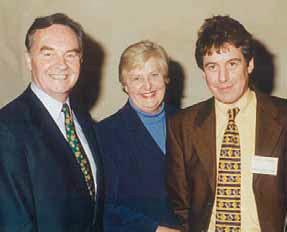
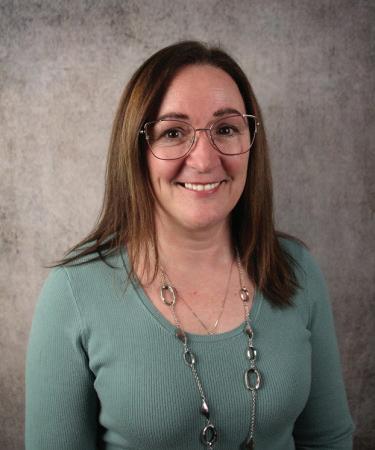
Nadine Trepanier-Bisson Executive Director Ontario Principal’s Council
Established within months of each other and despite being an ocean apart, the Irish Primary Principals Network and Ontario Principals’ Council have become the professional equivalent of ‘best friends’.’ With a shared vision and commitment to excellence in professional learning, support and advocacy for school leaders we feel privileged to have witnessed first-hand, IPPN’s exemplary service leadership.
In the early years we recognized the mutual benefit of sharing expertise and resources to support our respective members. The merits of working with government and other professional alliances, to establish a culture of reciprocated respect, was key to both organizations as they emerged as professional associations focused on improved student learning.
It was always such a pleasure to attend and participate in IPPN annual conferences. The learning and opportunity to connect with principals across Ireland was a particular highlight. The OPC was also delighted to welcome many of your board members and senior staff to our annual conferences. As time has gone on and through these many shared visits and meetings, our professional ties have grown into deep and abiding personal friendships.
A tribute to your first 25 years would not be complete without reflecting on IPPN’s active participation, support and leadership within the International Confederation of Principals, an international organization committed to advancing common goals in support of school leaders worldwide. The professional learning and opportunities to share and explore solutions to common challenges, became a successful purpose of the ICP that was an unexpected accomplishment. The focus on effective leadership to enhance student learning was – and continues to be – a valued feature of ICP and its members, like IPPN and OPC.
IPPN has been and continues to be relentless in its commitment to the philosophy that great principals are the key to student success and that equity for all must be at the core of all they do.
On behalf of the OPC, past and present members, a sincere congratulations on building and maintaining a first-class organization. Here’s to another 25 years and counting!
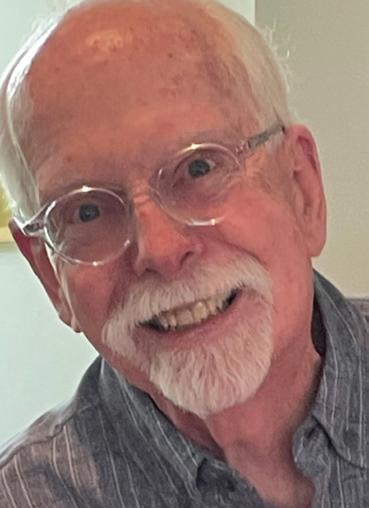
Sean Cottrell invited me to my first IPPN Conference in 2012. That invitation allowed me to discover a professional principals’ network that although relatively new (my organisation here, started in 1927) was already grounded in supporting its members in practice, and not just in theory. That first year, I was struck by the sheer number of attendees, the willingness of leadership to challenge the Minister of Education, the most current research and professional practice, and the wisdom to take time to enjoy and celebrate each other. I excitedly brought ideas back to my MA principals association.
IPPN supports members, including research on principals’ health and wellness, developing principal sustainability, county support groups, Leadership +, and more.
From its formation by courageous, visionary leaders, it has relentlessly advocated for its members by speaking truth to power.
And over these first 25 years, IPPN has evolved to meet changing times and member needs. Long before IPPN, AI, and technology, my great uncle, William Burchill was principal of Castletownsend NS, Cork from 1923-1929. Irish education has changed radically since then. But principals must still focus on the ‘soft skills’ and will always need to rely on other principals to grow, to breathe, to thrive.
Twenty-five years in, nobody provides that better than IPPN.
Rich Burchill is an IPPN international member and contributor to Leadership +
would
Maitiú, Rang 4, Urbleshanny NS Co. Monaghan
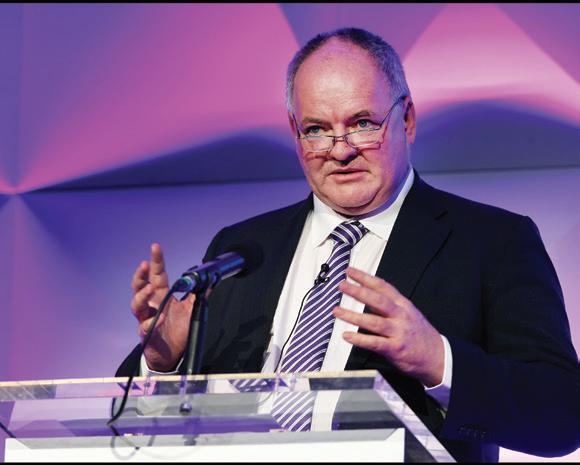
Damian White
On Saturday evening in early June 2017, a combination of sunshine and emotion saw me pull over outside the cemetery on the outskirts of Clonaslee, a picture postcard village at the gateway to the Slieve Bloom Mountains, about 5 miles from my home across the border in Offaly. I was coming from Portlaoise, where 2 hours earlier, I had been elected as IPPN’s Deputy President.
Being Deputy President of IPPN meant working to support my great friend David Ruddy. We have been exceptionally good at electing presidents, or possibly very lucky in the people we’ve had to choose from. I had the great fortune to be involved with IPPN from the very beginning, and had the opportunity to see, at close quarters, each president in turn deal with the pertinent issues, and relate to members in their own particular way. Nobody had a better apprenticeship for any role than I had for the IPPN Presidency, and now that I had enlisted, I committed to putting my shoulder to the wheel as had all of my predecessors in the role. I had also worked closely with 2 hugely influential directors, Seán Cottrell and Páiric Clerkin, and a host of fabulous colleagues who had served in various roles on the IPPN Board and various committees.
From the outset, I intended to spend my time supporting members throughout the country, getting them involved in support groups in their own areas, with a commitment to support each other, share resources, advice, and good practice. I had intended to travel to all counties and help to put new groups in place where needed. All started well. Early on, I met with a very active support group in
Kilkenny city who had been meeting once a month for almost 40 years. Further trips were made to Sligo where incoming President Deirdre Kelly brought me to a selection of schools to hear and discuss the issues facing teaching principals, and to Mayo where further visits included a day spent in a Gaelscoil in Castlebar. Attendance at a meeting of principals of Special Schools in Cork was followed up by a day in one of their schools in Montenotte and led to me having a much greater understanding of the issues dealt with on a daily basis by school leaders and staff in these settings.
A variety of schools in Clare, Cork, Tipperary, Donegal, Cavan, Meath, Dublin, Offaly, Kilkenny and Westmeath were all visited, issues noted, and representations made where possible. A visit to a Tipperary school convinced me of the need for schools with two special classes to be led by an administrative principal, regardless of school size.
As a result, a letter received from two principals at opposite ends of the country, seeking the same, emboldened me to pursue the issue where possible. One of IPPN’s greatest strengths has always been finding a costed solution to issues raised, and when we costed the granting of administrative status for
teaching principals with two special classes, the issue was raised regularly with senior officials and the Minister for Education. A very gracious letter from the two principals who led the campaign was all the reassurance I needed that the campaign was worthwhile.
Six months into my two-year term, Covid struck. On March 12th 2020, the news that schools must close was initially something of a novelty as everyone expected to return to school, work and normal life, within a week or two.
The issues facing schools were stark. When schools originally were forced to close, IPPN reacted by offering Text-a-Parent credits and advice as it came available from the HSE, developing framework policies for schools to adapt to their own circumstances and sharing advice on best practice. Mercifully, Zoom and other such apps had become available, and for the next year and a half, I attended up to 6-7 meetings per day with HSE advisors, IPPN Helpline staff, IPPN Board, local support groups and several different agencies as everyone worked together to support each other as the pandemic initially worsened but began to turn a corner as vaccines were developed and distributed.
For school leaders, it was an incredibly anxious time initially. After discussing this with Páiric Clerkin, we both decided to share our numbers with all school principals, making ourselves available 24/7 for anyone dealing with cases or seeking advice. For us, it meant simply having the latest guidance from the HSE on our phones which we’d share, along with relevant phone numbers and key contacts. We quickly discovered that most people had a reasonable idea what to do but really appreciated having the facility to reassure themselves by talking to us.
Distribution of school meals in DEIS schools was going to be essential after all schools closed, and IPPN worked incredibly hard at the time, supporting local principals in organising the delivery and sharing of food. An Post had generously offered to help with distribution but the morning when 60,000 meals were dropped at their Tallaght Depot, where they had a capacity for 250 parcels, will live in the memory bank forever!
By the time my Presidency was at an end, the worst effects of Covid were over. I returned to school as Principal where the Deputy Principal and Assistant Principal had stepped up for two years and led the school incredibly well throughout my absence. Indeed, since my retirement in August 2024, both have been promoted to the roles they played throughout the pandemic, having passed the mother of all apprenticeships with flying colours!
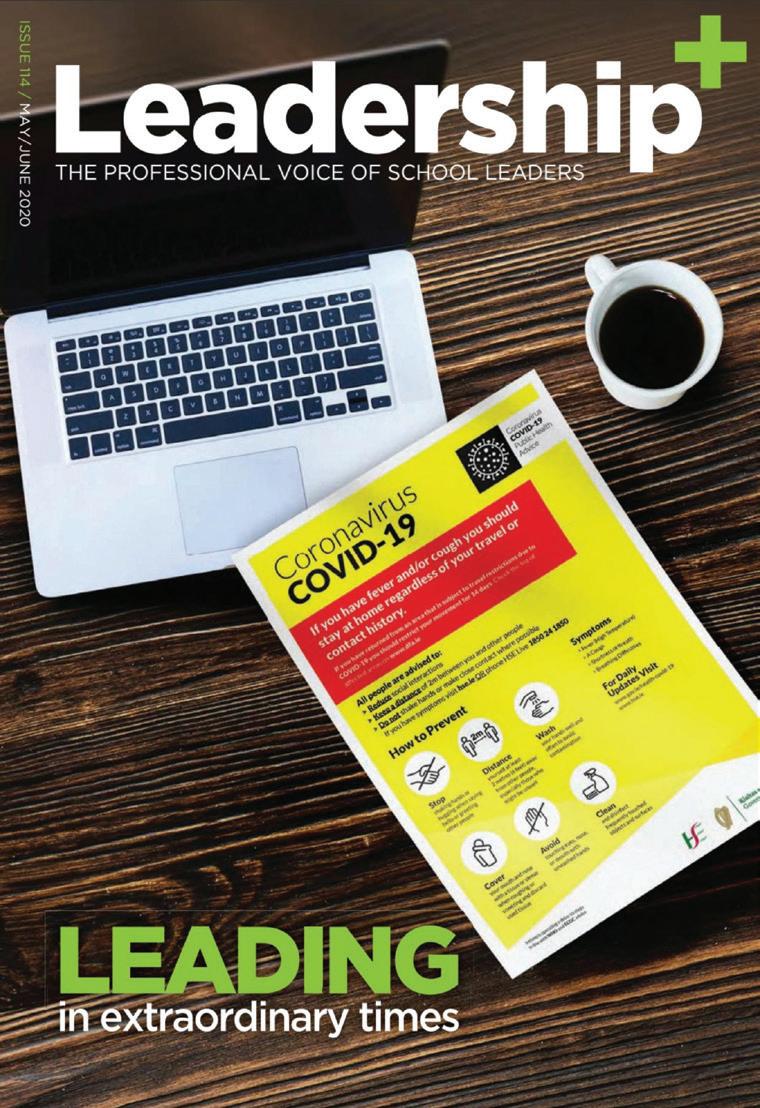
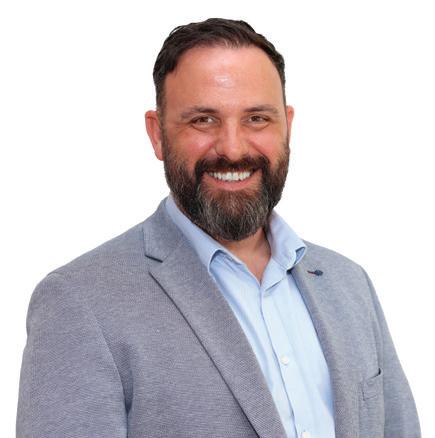
Dr Seamus Conboy Director of Schools
It is an honour to be asked to reflect on my experiences of the Irish Primary Principals’ Network (IPPN) as it celebrates in 25th anniversary.
IPPN has been a part of my professional life since becoming the principal of a start-up Community National School (CNS) in 2012. From the outset, I accessed all of the support and resources being made available from IPPN, which lessened the overwhelm I was experiencing considerably. At that time, I really appreciated the weekly E-scéal that informed me of the tasks that could be completed at specific times of year and kept me on track. As there were no policies in the school, the templates provided were invaluable as a starting point for the basis of our School Plan. I also took full advantage of the leadership support service, where I could confidentially share a situation, or situations, that were keeping me awake at night, with an experienced principal. The advice and collegiality were invaluable at that time.
Since I moved into Education and Training Boards Ireland (ETBI) in 2016 as a Development Officer for Community National Schools, and now a Director of Schools, I have been working with IPPN in a different capacity. In these roles, I quickly came to appreciate the more strategic aspects of the role of IPPN. As well as the very practical supports for principals
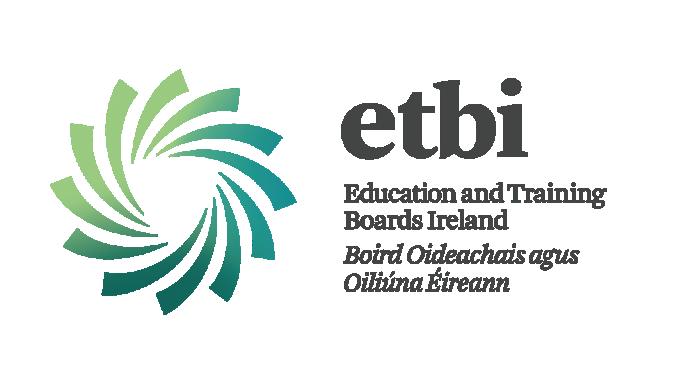
and deputy principals, I now see the incredible advocacy work they do on behalf of all school leaders. In more recent times, I have seen how passionately IPPN’s executive represent the needs of our school leaders. What is most impressive is the organisation’s understanding that passion and anecdotes alone won’t bring about the systemic changes required to make the role of school leaders more rewarding (not just sustainable!). IPPN’s advocacy work is based on robust, empirical evidence that makes it extremely difficult for policymakers to disagree with. The key messages from this research are delivered at various forums in a direct, impactful but respectful manner. This is slow and methodical work, but these efforts are having, and will have an enormous impact on the daily lives of our school leaders.
In celebrating this important milestone, I want to acknowledge the significant contribution that IPPN has made to school leaders right across the country. I hope that the next 25 years of IPPN builds on its rich legacy of transformation and inspiration. Thar ceann an Bhoird Oideachais agus Oilúna Eireann, ba mhaith liom gach rath a ghuí ar Líonra Priomhoidí Bunscoile Éireann agus iad ag ceiliúradh an gharsprioc shuntasach seo. Beir bua!
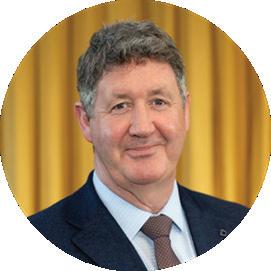
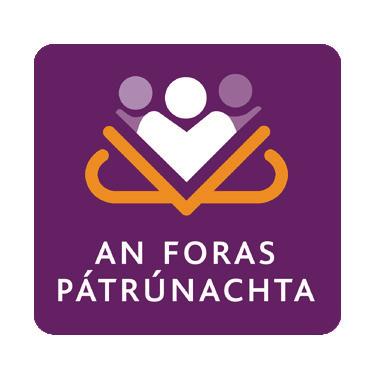
Is gá uaireanta seasamh siar agus athbhreithniú a dhéanamh ar an obair atá idir láimhe, agus is iontach an deis é Comóradh 25 Bliain chun é sin a dhéanamh. Nuair a thosaigh mé ag smaoineamh ar Chomóradh 25 Bliain an IPPN, ba é an pointe is mó a bhuail mé láithreach ná an dul chun cinn dochreidte atá déanta ag an eagraíocht sa tréimhse sin. Bunaíodh an eagraíocht chun tacú le Príomhoidí, agus sin an méid atá á dhéanamh aici ó thús go deireadh. Tríd an obair seo tá éifeacht fíor-dhearfach imeartha acu ar earnáil an oideachais in Éirinn.
Ní gá ach féachaint ar na seirbhísí a chuirtear ar fáil – ón suíomh gréasáin go dtí na glaonna, na seimineáir agus an chomhdháil bhliantúil. Dúirt Príomhoide amháin liom go mbíonn sí ‘i gcónaí buíoch as an gcluas éisteachta agus as na moltaí praiticiúla a thugtar, chomh maith –go deimhin – leis an gcraic ag na comhdhálacha bliantúla!’
Le blianta anuas, trína bhfeachtasaíocht, bhí éifeacht as cuimse ag an IPPN ar an gcóras, –ní hamháin ar mhaithe le Príomhoidí, ach ar mhaithe leis an gcóras oideachais i gcoitinne. Tá sé seo le feiceáil againn in An Foras Pátrúnachta, agus muid ag comhoibriú leis an IPPN ar gach saghas ceiste a bhaineann leis an gcóras oideachais – ón Lámhleabhar Rialachais go dtí an ciorclán is déanaí.
Léirigh agus léiríonn an IPPN ceannaireacht in earnáil an oideachais. Aithníonn siad an gá atá le cás an Phríomhoide a chur chun cinn, agus déanann siad amhlaidh. Ag an am céanna, oibríonn siad go macánta agus go gairmiúil mar pháirtnéirí dearfacha, gníomhacha, ar mhaithe le Príomhoidí, múinteoirí agus daltaí na tíre.
Agus mé ag caint le roinnt Príomhoidí faoin IPPN, rinne siad tagairt don chabhair a tugtar dóibh siúd atá blianta sa ról agus do dhaoine atá ag tosú amach sa ról, do na háiseanna atá ar fáil agus don saineolas a roinntear trí na gréasáin a chruthaíonn an eagraíocht. Fíoraíonn siad an seanfhocal ‘Ní neart go cur le chéile’.
Chuir Príomhoide amháin go han-mhaith é nuair a dúirt sí: ‘Táim buíoch do gach duine a thug faoin obair chun tús a chur leis an IPPN, agus dóibh siúd a tháinig ina ndiaidh agus a bhíonn ag treabhadh an ghoirt. Guím gach rath orthu siúd a thiocfaidh amach anseo ag lasadh an róid do thodhchaí an Phríomhoide, na ceannaireachta scoile agus an oideachais in Éirinn.’
Ár mbuíochas libh as an obair ar fad agus gach rath oraibh don chéad 25 bliain eile.
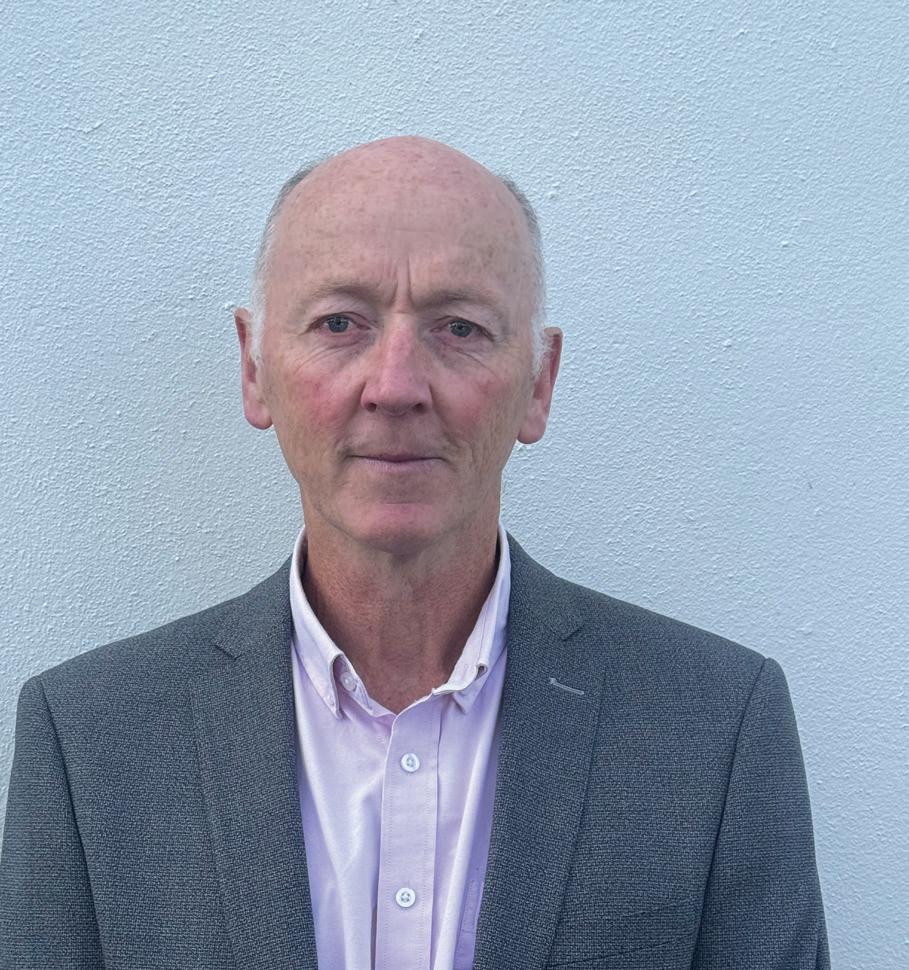
by Colmán Ó Drisceoil, Scoil Lorcáin, An Charraig Dhubh, Co. Bhaile Átha Cliath
Ceapadh mé mar phríomhoide ar Scoil Lorcáin – Gaelscoil/ scoil lán-Ghaelach ar an 2 Feabhra 1999, agus Bertie Ahern ina thaoiseach. Bunaíodh an IPPN an bhliain dar gcionn – 25 bliain ag fás dúinn beirt. Níor cuireadh fáilte uilíoch roimh an IPPN ná romham.
Ní raibh puinn tacaíochta ar fáil do phríomhoidí nuacheapaithe go dtí sin. Chabhraigh Cathaoirleach na scoile go mór liom, agus bhí sé d’ádh orm gur chláraíos leis an IPPN ón tús.
Bealtaine ina dhiaidh sin agus an teocht íseal go leor go fóill sa scoil, tháinig an t-am chun na múinteoirí a eagrú ina ranganna don bhliain ina dhiaidh sin. Cothrom an ama, tháinig teimpléad ón IPPN don ghnó seo, deis ag múinteoirí Rogha 1, 2,3 a chur in iúl agus struchtúr don aineolach seo tabhairt faoin dúshlán. Bád tarrthála ab ea an teimpléad sin domsa. Thosaigh an aimsir ag feabhsú ón am sin i leith. Réabhlóid ab ea an teimpléad sin in an-chuid scoileanna, déarfainn. Réabhlóid ab ea an IPPN.
Tháinig go leor comhairle ón IPPN maidir le haire a thabhairt do do shláinte féin, agus moltaí praiticiúla ar thugas neamhaird orthu, cuid mhaith, ach go
ndeachaigh an bunteachaireacht i bhfeidhm orm, ainneoin mo dhícheall – is gá duit aire a thabhairt duit féin, ar mhaithe leat féin agus ar mhaithe le gach duine eile a mbíonn tú ag déileáil leo. Tá turas tugtha ag an íomhá atá agam díom féin ó laoch/ ceannaire/ Cúchulainn (ní deirim go raibh an íomhá seo cruinn) go háisitheoir/ réiteoir/ glantóir. Gné den chomhairle a bhí ann ón tús ná an deighilt idir dualgaisí an Phríomhoide – cúrsaí oideachais – agus dualgaisí an Bhord Bainistíochta – gach gné eile den scoil – agus an riachtanas go nglacfadh gach ball den Bhord Bainistíochta le freagracht éigin lasmuigh de thinreamh ar chruinnithe boird. Chabhraigh an chomhairle seo go mór liom. Ghlac baill na mbord éagsúil leis go sásta, fonn orthu, ar an iomlán, tacaíocht a thabhairt.
Tá tírdhreach an oideachais tar éis athrú le 25
bliana, agus is gá forbairt a dhéanamh ar fheidhmiú na mBord, go háirithe – sílim féin - i dtaca le cúrsaí airgeadais. Ní ceart a bheith ag súil go nglacfadh duine gan oiliúint cheart na dualgaisí sin orthu féin. Is trua nár glacadh leis an deis athstruchtúrú a dhéanamh ar an gcóras sular ceapadh na boird Reatha – meileann muilte na Roinne Oideachais go mall - ach mairimis agus b’fhéidir go bhfaighimis féar.
Is trua go dtógann sé chomh fada ar an Roinn Oideachais na moltaí a chuireann an IPPN chun tosaigh a chur i bhfeidhm. Tá druma na scoileanna beaga agus a bPríomhoidí á mbualadh le 25 bliain. Dul chun cinn an-suntasach ab ea na laethanta riaracháin a ceadaíodh ach tá feabhas le cur orthu seo agus go leor moltaí eile a bhféadfaí gníomhú orthu gan mhoill ach an toil a bheith ann. Ní ar mhaithe leis féin a bhíonn an IPPN ag crónán.
Níor chuireas aithne ar phríomhoidí na scoileanna eile mórthimpeall orainn, seachas príomhoidí na ngaelscoileanna, ach go tánaisteach. D’oibrigh Cumann na mBunscol mar ghréasán dom agus chabhraigh liom ar bhealaí éagsúla. Níor ghlacas páirt i ngrúpaí príomhoidí, ag ceapadh b’fhéidir nár bhain siad liom ar bhealach éigin. Tá brón orm faoi
sin anois. Dhá bhliain ó shin ghlacas páirt i ngrúpa Meitheal, cruinnithe do phríomhoidí áitiúla chun buanna agus dúshláin a phlé, faoi stiúir áisitheora thuisceanaigh. Thaitin sé go mór liom. Bhaineas tairbhe as. Is é an príomhbhuntáiste ná an léargas a fhaigheann tú go bhfuil na dúshláin chéanna ag príomhoidí eile is atá agat féin, go bhfuil smaointe agus moltaí maithe acu ar conas déileáil leis na deacrachtaí agus go bhfuil moltaí maithe agamsa a fhéadfadh a bheith ina gcabhair uaireanta, chomh maith. Is í seo an teachtaireacht ba thábhachtaí a thugas liom ó chomhdhálacha bliantúla IPPN, chomh maith.
Má bhí aon duine ag ceapadh go raibh sé in am ag an IPPN na maidí a ligean le sruth anois, chruthaigh an chumarsáid mhí-réasúnta ó Oide – ní don chéad uair - agus an t-alt seo á scríobh againn sa tseachtain deireanach den bhliain scoile, maidir le laethanta inseirbhíse 2025- 2026, an gá le guth láidir IPPN a bheith le cloisteáil go soiléir go dtí Comóradh an 50. Gura fada buan mé/tú/sé/sí/sinn/sibh/siad.
Is iontaobhaí é Colmán ar Cuala CLG agus is ball é den Bhord Stiúrtha Gaeloideachas.
A good school leader is brave, joyful, athletic and takes ideas. James, Rang 5, Urbleshanny NS Co. Monaghan
Gerard Ruane, Principal, Barefield National School. Former IPPN Director and Treasurer
I became a school principal in 2007, at the age of 27, so I thankfully never experienced life as a school leader without the supports of IPPN.
At the start I didn’t really know what IPPN was. My first experience was the ‘networking emails’. I asked plenty of questions and answered others when I could. I found myself dealing with challenges that were beyond me, and I began to use the support phone line. This may seem very much the norm to the reader, but in 2007, it was a novel support to this bright eyed and bushy tailed principal. I got to speak privately to principals who were calm and not at all shocked by any challenges I was facing and told me how they weathered similar problems. When appointed to the job so young, and given that I looked about 16 years old, I know I felt I had to prove myself. Support from IPPN enabled me to grow as a leader.
In my first year on the job, a highly respected and experienced principal colleague that I got to know through IPPN told me about a significant challenge they were facing in their school. I can’t describe the relief I felt upon hearing that. No, I was not happy to see a colleague in difficulty, but relieved to hear I was not the only one who found the job challenging. I was amazed at his honesty and delighted that he was normalising the challenges of the job. IPPN has without doubt created a culture of sharing not just
good ideas, but challenges and solutions. I hope that no school leader ever feels their problem is too big or too small to share.
In 2009, I joined the National Council, then known as the National Committee, and from there was elected onto the ‘executive’, now known as the Board of Directors, and served three terms. I have had various roles locally and nationally and taken on different projects for IPPN over the years. I served with amazing principals and IPPN staff who gave up so much personal time to make IPPN a success. I spent nine years on the other end of the principal advice line and had the pleasure to speak with principals from all over the country and help them deal with problems big and small. I know however that no matter how small the problem may appear to be, it may a big one to the caller. Every principal I spoke to had one thing in common–they were doing their best and knew the importance of reaching out for help. Nobody knows it all. We must always support each other in a non-judgemental manner.
During the Christmas of 2018, one of our children became seriously ill. At a very low point, to say the least, IPPN supported me in ways I am still grateful
Sometimes we may get caught up too much in the job and cannot see the wood from the trees, and an experience like that, although a living nightmare, teaches you how important your relationships are.
for. Páiric Clerkin drove to meet with me, help me and give me bags of toys for our three children from my Board of Director colleagues and IPPN Support Office staff. Local principals and our support groups rallied around my wife and me. Since then, at IPPN Conference, principals that I don’t even know have come up and gently noted they know who I am and hoped my daughter was doing well. That is IPPN. After a tough few years with many, many bumps in the road, my daughter is in full health and today I have the pleasure of being her principal.
Sometimes we may get caught up too much in the job and cannot see the wood from the trees, and an experience like that, although a living nightmare, teaches you how important your relationships are. In Clare, our IPPN County Committee works with the Education Centre Director in setting up and maintaining support groups. One trend emerging is that some groups do not get to meet too often and are very happy with asking and answering questions on their WhatsApp group. This has huge value, but I would encourage people to try and meet up to get to know each other and build relationships. You never know when you will face a problem that can’t be sorted via WhatsApp. You also don’t know who is facing real difficulties and they may not know you well enough to feel they can confide in you online.
Presidents and CEOs changed over my time, some amazing principal friends have unfortunately gone, too early, to their eternal reward, colleagues came
on and off the Board of Directors, COVID came and went, but IPPN remains strong. What is IPPN? IPPN is you. It is a network of school leaders who give and receive. You will get out what you put in. It is up to us all to make IPPN grow for the next 25 years. Thank you IPPN for the support you have given me.
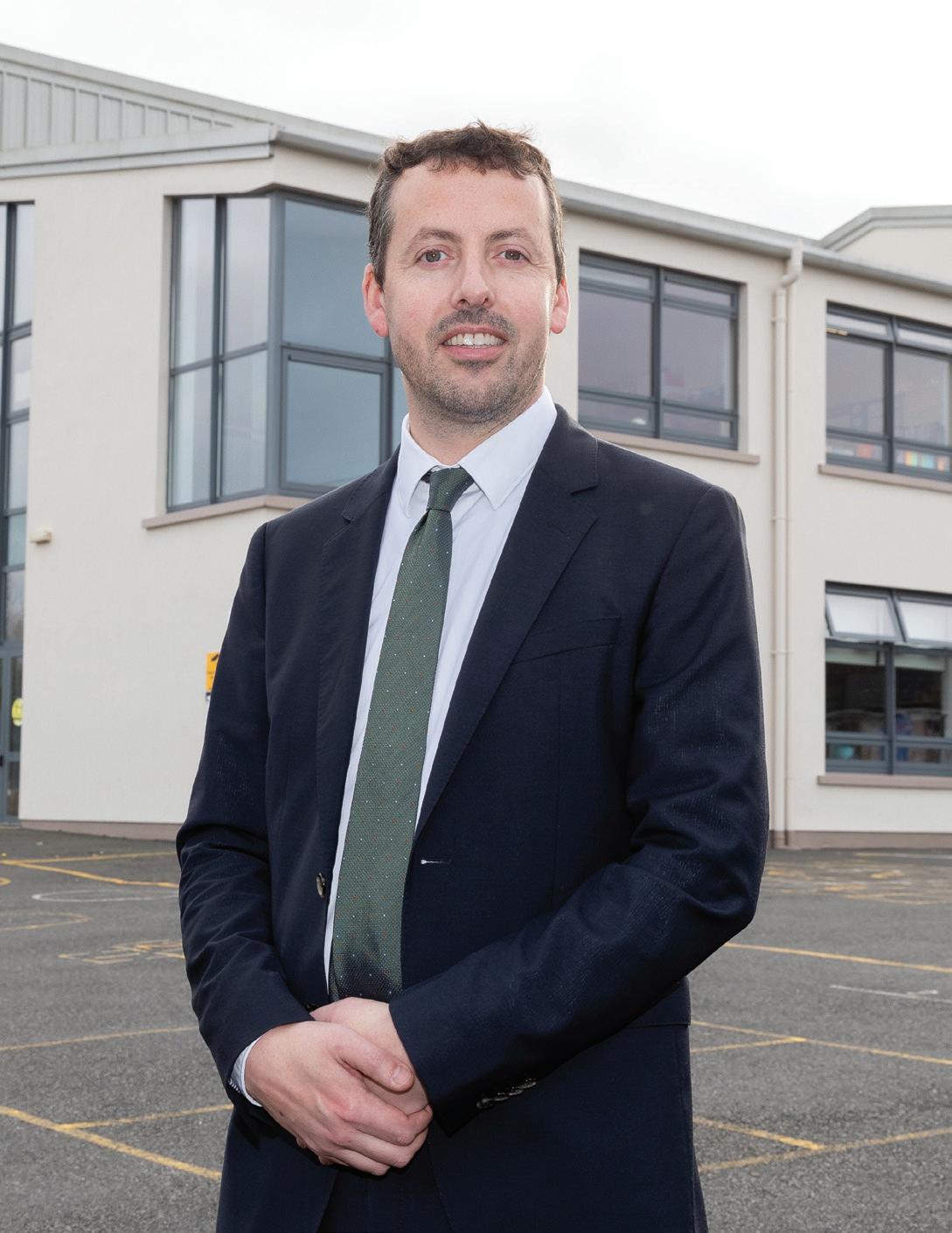
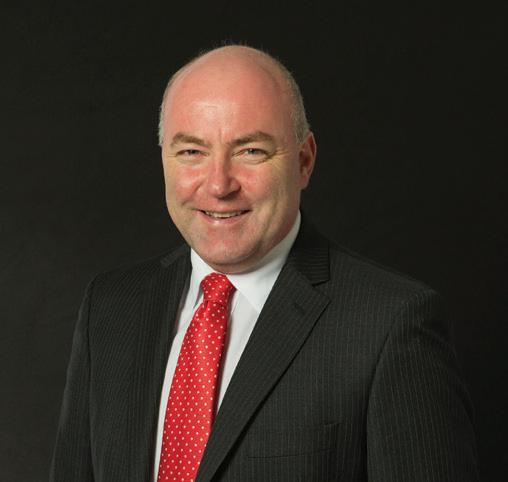
John Kearney Chief Executive Officer National Council for Special Education
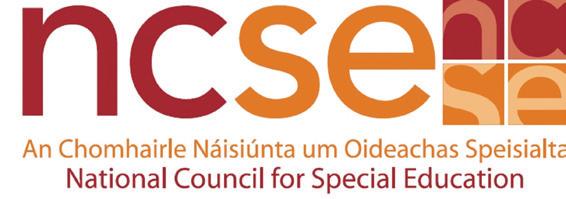
It is with pleasure and admiration on behalf of the National Council for Special Education (NCSE) that I congratulate the Irish Primary Principals Network (IPPN) in celebrating this momentous 25th milestone. The launching of IPPN in 2000 at Dublin Castle as a ’landmark day’ and ‘a most important day for primary education generally’ by the then newly appointed Minister for Education & Science, Michael Woods TD, has truly been exemplified. The Irish education system in the intervening twenty-five years has immeasurably benefitted from the proactive harnessing by IPPN of school leader collective knowledge and professional experience.
From a special education perspective, so much has changed since the first meeting of IPPN with the NCSE in 2003. The evolving provision of supports for children with special education needs has especially characterised this period of profound change. IPPN throughout this change has resolutely remained a solution-driven organisation. Instead of just highlighting areas that are presenting the greatest challenges to principals, teachers and schools, IPPN will meticulously research the relevant issues and collaborate with all partners in devising creative and practical school improvements. The IPPN position paper on Special Educational Needs in 2023 provides a dynamic example of the creative potential of the organisation. This position paper cogently identified the challenges and the opportunities pertaining to the allocations, resourcing and appeals involved in the integration of pupils with special educational needs. The unfolding
supporting of special education within Irish primary schools has been significantly informed by this landmark position paper.
The NCSE and IPPN share similar ambitions for the provision of a world class education for all. This ambition is driven by the mutually agreed understanding that inclusive education is best realised by progressing participation, raising achievement, supporting well-being and creating a genuine sense of belonging for all learners. The inspiring leadership of principals and deputy principals across this state is uniquely enabled by IPPN to transform national policy into school-based practice. IPPN ensures school leaders are to the forefront in shaping current policy and influencing future policy. NCSE remits in the domain of national policy advice and conducted research have been notably moulded by the honed insights of IPPN contributions.
The lives of students and families have been profoundly enriched by the varied improvements in inclusive education over the last quarter century. IPPN has proactively contributed to the planning and delivery of these inclusive improvements by representing the professional voice of school leaders. The 25th celebrations of IPPN provide a timely opportunity of proud reflection and assured confidence for the future of school leadership within Irish education.
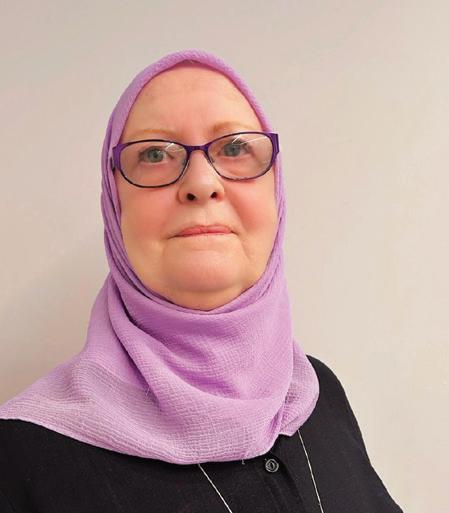
Asiyah ChairpersonAl-Tawash of the Muslim Board of Education
It is with immense gratitude that the Muslim Primary Education Board looks back on the twenty five years of IPPN. From its inception, it has consistently supported and championed the professional development of primary principals and deputy principals. Members have been provided with a wealth of tailored resources and high-quality professional development opportunities.
Through its national conferences, seminars, training opportunities and online resources, IPPN has ensured that school principals remain well prepared and supported to address the ever-changing challenges of school leadership.
One of the most important and impactful aspects of IPPN’s work has been that of advocacy. For twenty five years, the organisation has been a consistent and respected collective voice in education and an advocate carrying forward the views and hopes of principals to all sectors and stakeholders. There is a clear commitment to highlighting the realities and increasing demands of school administration and an urgent need for sustainable supports. Through policy proposals, evidence-based research and sectoral engagement IPPN has raised awareness and helped to shape the national conversations around education.

Perhaps the most enduring contribution of the organisation is the community it has created and fostered. The sense of mutual solidarity, shared encouragement and professional purpose have created a centre of excellence among principals and has changed the culture of educational leadership. IPPN has also recognised the emotional and physical demands placed on school leaders and the importance of a healthy work-life balance, to this end IPPN has focused on the wellbeing of principals and promotion of self-care.
As a management body, the Muslim Primary Education Board is incredibly grateful for the support that IPPN gives to our principals and deputy principals. The mainstay of our schools and boards of management is the principal, a role of immense responsibility carrying the weight of managing schools and nurturing young lives. By strengthening these leaders, IPPN has strengthened our schools and enriched our communities.
As IPPN celebrates this milestone we acknowledge and celebrate twenty five years of leadership, advocacy, innovation and unwavering support and we look forward to continuing this partnership into the future.
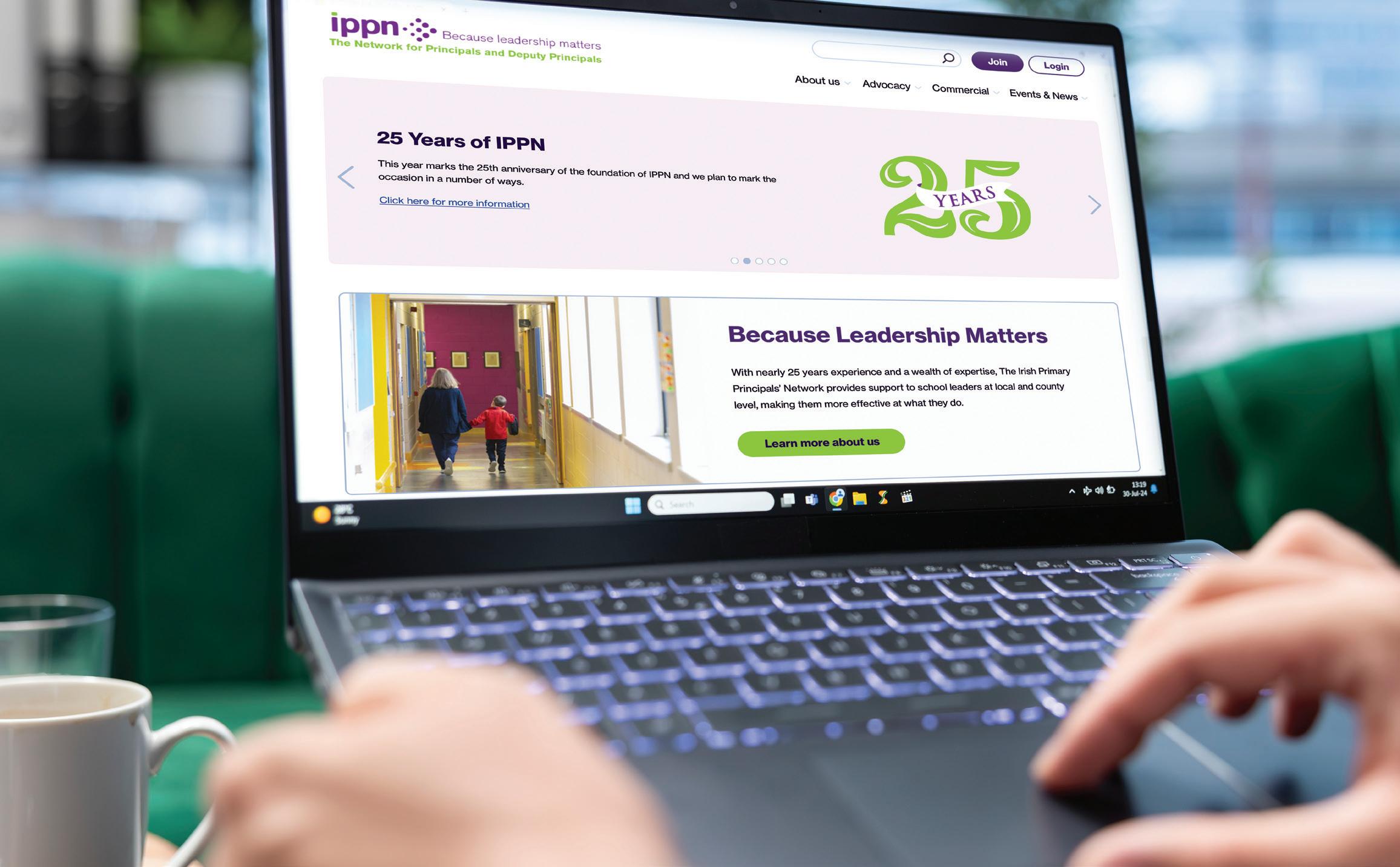
From the National Support Office in Cork, IPPN provides a suite of supports and services to IPPN members. In the early years, IPPN developed significant web-based tools to support the management of school accounts (Airgead Bunscoile), vacancy advertising (EducationPosts.ie) and communications (TextaParent), as well as continuous professional development. With the advent of the Centre for School Leadership in 2015, and the merging of professional development services into Oide in 2023, the focus of our work has shifted to the provision of leadership tools, resources and enhanced online supports.
This one-to-one, confidential advisory service, provided by a team of skilled, experienced school leaders, offers collegial support and guidance of a non-directive and non-legal nature. Typically, the team responds to approximately 3,000 calls for support annually.
This weekly newsletter is a vital ‘one-stop-shop’ resource, providing key information from across the education sector.
n Networking@ippn.ie facilitates a peer-to-peer support community.
n advice@ippn.ie is for sensitive, confidential and non-generic queries, which are answered offline as an extension of the Leadership Support service.
n advocacy@ippn.ie facilitates members sharing their observations with IPPN on current issues impacting on leadership practice and on schools.
IPPN has developed a number of tools to empower school leaders to share the workload of leadership more effectively, keep the focus on the school’s stated priorities and to enable reflection on teaching and learning in the school:
n The Leadership Effectiveness Reflection Tool
n P-I-E-W Capacity Planning Framework
n Guide to Leadership of Teaching and Learning.
A range of template resources has been developed and shared by school leaders. They have been categorised with reference to the four domains of the Quality Framework for Leadership and Management:
n Managing the Organisation
n Leading Teaching & Learning
n Developing Leadership Capacity
n Leading School Development.

Leadership+ is issued five times during the school year. It showcases members’ own research and the work IPPN does on behalf of members, and brings external perspectives on matters of relevance to school leaders by researchers, policy-makers, stakeholders and education thought leaders.
LINK to Leadership+ Archive
IPPN works with National Council representatives and Education Centres throughout the country to facilitate access to local support groups for every school leader. Support groups have access to trained facilitators.
This programme was launched in Autumn 2025. It is a self-paced online 9-step course to help school leaders identify potential burnout and put steps in place to mitigate the risks of burnout.
Stepping into Leadership is a dedicated support for newly appointed school leaders. The emphasis is on personal leadership development as well as signposting where to access information and prompts to assist with planning.
Group mentoring pairs a group of school leaders in their second year with a trained mentor, who provides space and time for reflection and the development of specific goals and plans to address various aspects of their work.
IPPN hosts local, regional and national CPD events for school leaders each year – conferences, shared
learning days, a comprehensive online summer course, webinars and AGMs in each of the 31 IPPN city/county networks. These events provide an opportunity to hear fresh thinking from leading figures in education and other sectors, to participate in stimulating workshops and to network with colleagues.
Education Expo brings together school leaders and companies providing supports and services to schools during the IPPN annual principals’ and deputy principals’ conferences.
ippn.ie
A brand-new website was launched to coincide with IPPN’s 25th anniversary. Now mobile and tablet device-friendly, ippn.ie provides a wealth of resources and supports for school leaders when they need them. It includes leadership tools, resource bundles, sample policies, access to events, guidance from other leaders, and online membership renewal and event registration.
EducationPosts.ie
EducationPosts.ie is the leading website for education-related vacancy advertising across the sector. In the 2024/25 school year, almost 15,000 vacancies were advertised on the site. It includes:
Online Application Portal
The portal significantly reduces the administrative burden associated with recruitment. It manages all communication with applicants and generates an audit trail for schools.
Summer Programme Portal
The Portal facilitates schools sourcing staff for the school-based summer programme.
Home-Based Summer Programme Noticeboard
This allows Teachers and SNAs to post their availability for parents to view. Parents can create notices seeking qualified home-based support.
Sub Seeker
Sub Seeker facilitates the short-term recruitment of teachers registered with the Teaching Council.
TextaParent.ie
TextaParent facilitates communications between the school and its community. Functionality includes the sending and receiving of permission slips.
School Suppliers Catalogue
The Catalogue provides schools with a comprehensive list of school suppliers.
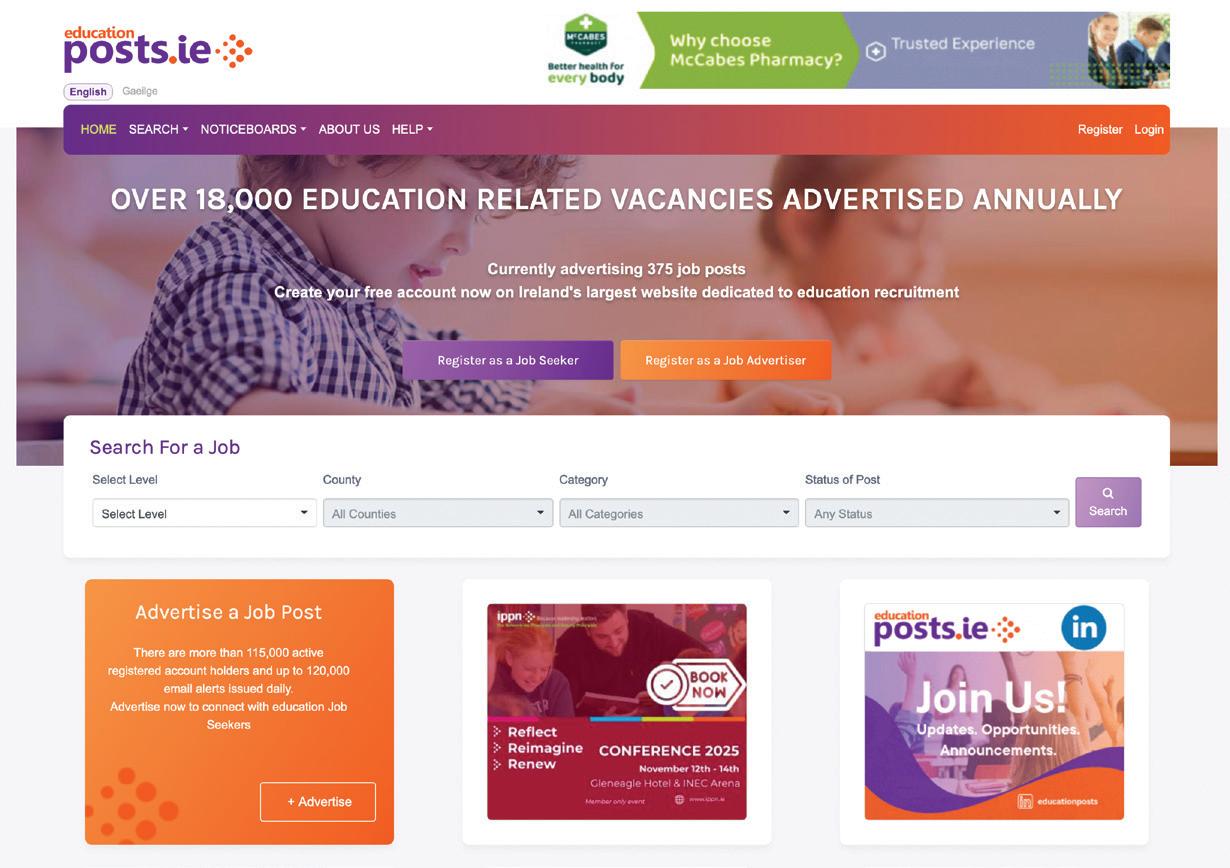
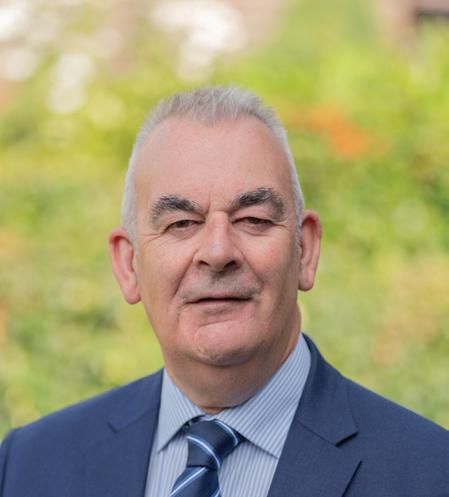
John Boyle INTO General Secretary
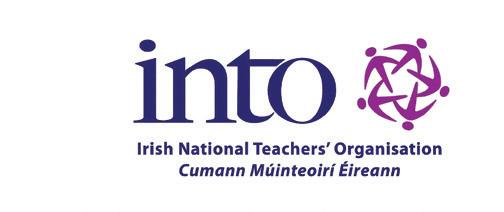
The Irish National Teachers’ Organisation (INTO) offers its warm congratulations to IPPN on the occasion of this publication marking a quarter of a century since its formal launch at Dublin Castle in February 2000. As Ireland’s largest and only all-island teacher union, the INTO has always been a strong advocate for improved terms and conditions for principals and deputy principals of Irish primary and special schools, and therefore our organisation has, over the last 25 years, found much common cause with IPPN.
Since the establishment of the Primary Education Forum in 2018, our two organisations have collaborated in a combined effort to influence the planning and sequencing of change in our sector, so that the implementation of various initiatives is streamlined. We also highlight the impact of these initiatives on workload for school leaders and their teaching colleagues and seek additional supports to help embed educational reform.
In particular, during the years of the COVID-19 pandemic, the INTO and IPPN worked together to advocate robustly for the leaders of primary schools who were thrust into the role of frontline workers while managing school communities through a never before envisaged landscape of remote teaching and learning, social distancing and PPE
procurement. After that, the two organisations had a key influence on the provision of resources to support children and families arriving in school communities, having fled from warzones.
More recently, the INTO and IPPN, together with the CPSMA, joined forces to provide incontrovertible evidence to the Department of Education of the extent of the teacher supply crisis in Ireland. Jointly organised surveys over two consecutive years revealed that schools were struggling to fill permanent, fixed-term and long-term substitute teaching posts.
Both organisations provide supports and services to empower members while always advocating for the managed change and transformation necessary to improve the primary education system for all those that experience it. The INTO and IPPN working collaboratively on issues of mutual concern has ultimately been to the benefit of all school leaders. Long may it continue.
Tá súil agam go leanfaidh IPPN agus Cumann Múinteoirí Éireann ar aghaidh ag obair as lámha a chéile idir seo agus 2050.
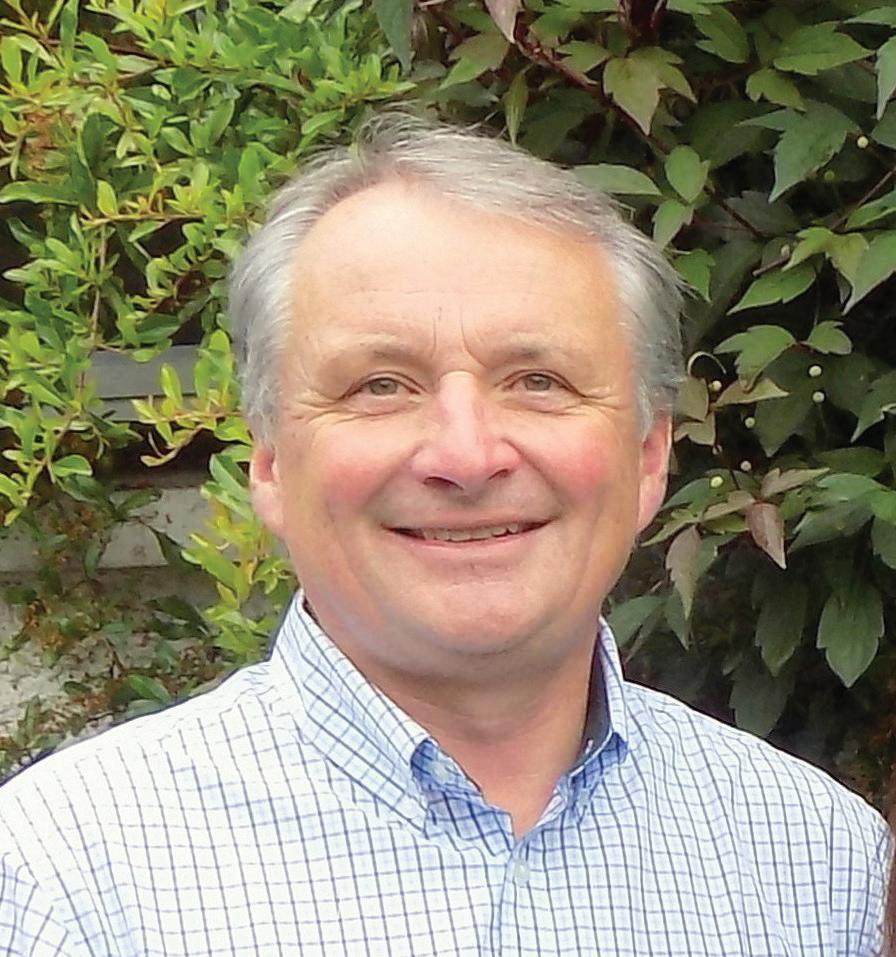
by Bryan Collins, Principal of Scoil Naomh Feichín, Termonfeckin, Co. Louth
Over the last two decades, IPPN has played a central role in my professional life. And as I approach the final few months of my career as school principal, I’ve taken this opportunity to reflect on the impact the organisation has had on the role of school leaders, and on me personally.
Over the last 25 years, IPPN has grown to become an integral part of the educational landscape in Ireland. It plays a vital role in ensuring that principals and deputy principals are provided with the supports and services to enable them to carry out their duties to the highest level, in a constantly evolving educational environment.
A number of years ago, I was very fortunate to be selected as a county representative for my adopted county of Louth and served in this role until I was elected onto the Board of Directors of IPPN in 2021. The role of county representative was indeed a very rewarding one as it helped me to build relationships with my colleagues in Louth and to see, at first hand, the amazing work that was being done in schools all over the ‘Wee County’. I also developed a much deeper understanding of the daily challenges that many school leaders were experiencing.
Following my election to the IPPN board, I witnessed the incredible work going on, much of it unseen, to help eleviate the pressure on principals and deputy principals and to highlight the very obvious problem relating to the unsustainability of the role of school principal. My enduring memory of my time on the Board of Directors, is the efficiency of the team in the support office, and the impressive calibre of the people who served with me on the board, and in the organisation as a whole.
In my opinion, IPPN came into its own during the years of the Covid-19 pandemic. The organisation realised very quickly that school leaders had suddenly and unexpectedly found themselves in the eye of the storm, and that they needed as much guidance and support as possible to enable them to successfully navigate their schools through this unprecedented crisis. IPPN did not let them down, and many people in the organisation went over and
In my opinion, IPPN came into its own during the years of the Covid-19 pandemic. The organisation realised very quickly that school leaders had suddenly and unexpectedly found themselves in the eye of the storm, and that they needed as much guidance and support as possible to enable them to successfully navigate their schools through this unprecedented crisis.
above to support school leaders during that very challenging period.
The true value of local support and networking groups also become obvious at this time. With the backing of IPPN, the number of support groups increased dramatically due to the urgent and immediate need for mutual support. Here, in the north-east of the country, we have had the most wonderful level of engagement with almost all of the primary schools becoming involved in support and networking groups, in recent years. This has changed fundamentally the level of cooperation and collegiality between school leaders. Principals now don’t have to worry about feeling isolated and unsupported when experienced colleagues are only a WhAtsapp message away. Given the proven success of the principals networking and support groups, it’s great to now see similar groups for
Deputy Prinicipals now being established as there’s little doubt that a model of shared and distributed leadership in our schools is the shape of things to come.
I’ve been extremely fortunate to have had the most fullfiling and rewarding teaching career and am eternally grateful to have been granted the opportunity to lead two wonderful schools over the last 29 years. It’s been a privilage for me to be involved in the IPPN organisation at different levels for most of that time and I sincerely hope that the immense contribution that IPPN has made, and continues to make, is fully appreciated by everyone involved in education in our country.
If I were a school leader I would like teachers to teach about the 100 years war. I would also like teachers to add one more PE session a week.
Rain, Rang
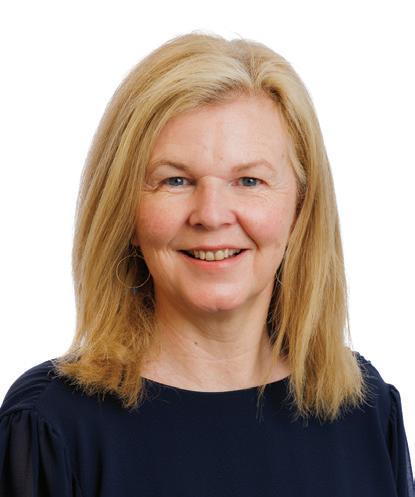
Dr Lynn Ramsey Director Teaching Council of Ireland
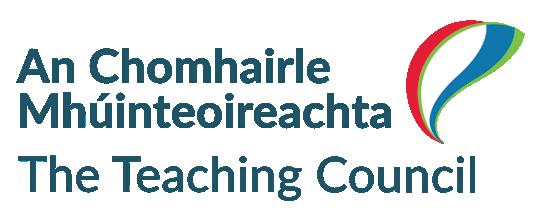
On behalf of the Teaching Council, I would like to extend a heartfelt congratulations to IPPN on marking 25 years of fostering a culture of educational leadership and the empowerment of primary leaders in Ireland – cúig bliana is fiche ag fás. Over the years, IPPN has supported the professionalism and vision of school leaders nationwide. Its commitment to principals has strengthened schools and enriched the wider educational landscape.
Teachers are at the heart of society, shaping the lives of young learners and promoting a love of knowledge that serves the common good. Within the teaching profession, school leaders play a crucial role, guiding schools with wisdom, resilience, and an unwavering commitment to teaching and learning. The Teaching Council, as the regulator of the teaching profession, shares this commitment, ensuring high standards of professional competence and conduct. The standards, outlined in the Code of Professional Conduct for Teachers, underpinned by four core values – respect, care, integrity and trust – reflect the complexity of teaching. The importance of quality leadership, and support for principals and deputy principals as they navigate the ever-evolving educational environment, cannot be understated.
IPPN has conducted important evidence-based research which has played a significant role in empowering school leaders. This research has also helped to develop a shared understanding of the complexities of a principal’s role. Research
of this nature is key to enhancing leadership capacity, effectiveness and sustainability. IPPN’s Sustainable Leadership Project is one example of this important work.
A further notable aspect of IPPN’s work has been its provision of forums such as ‘Sub Seeker’, and ‘EducationPosts.ie’, which have greatly contributed to teacher supply. These sites act as a national platform for linking schools and teachers in a timely and efficient manner, strengthening the profession as a whole. IPPN have also supported the provision of the summer programme through the ‘Special School Student Teacher Placement’ function and ‘Summer Programme Portal’. Additionally, principals who have served as members of the Teaching Council exemplify the depth of leadership within the teaching profession, further complimenting the work of IPPN and the Teaching Council to elevate standards and practice in education.
As IPPN continues to evolve, the Teaching Council remains dedicated to working alongside its leaders, championing the values of respect, care, integrity and trust in the teaching profession. We look forward to many more years of collaboration, shaping an educational system rooted in high standards and the demonstrable excellence of the teaching profession.
Congratulations once again to IPPN, beir bua is misneach.
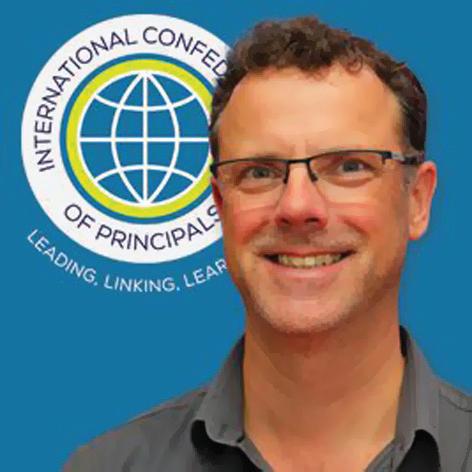
A very warm congratulations on your 25th anniversary of IPPN! The history of existence of the Irish Primary Principals Network is impressive and of great value to school leadership. Not only in Ireland, but across the world, IPPN’s legacy is enormous.
As President of the International Confederation of Principals (ICP), I greet and congratulate you on behalf of the whole Executive Committee and all members worldwide. The International Confederation of Principals appreciate the warm relationship with IPPN as ICP is an organisation belonging to and depending on its members around the world. I’ve had the honour to visit your last, and hopefully next, annual conference in my role as President. These conferences are of substantial importance and show high quality content that is known and recognized internationally.
The ICP is a professional association that brings together school leaders from over 40 countries, united by a common goal: to improve education worldwide through strong, ethical, and effective school leadership.
Both teachers and students depend on good professional leadership to accommodate the learning in schools. Bringing together school leaders to emphasise the importance of sharing and learning is therefore extremely important. It provides new ideas, respects and recognises good experiences and lessons from the past and gives us hope and comfort in knowing that you are not alone, we’re in this together.
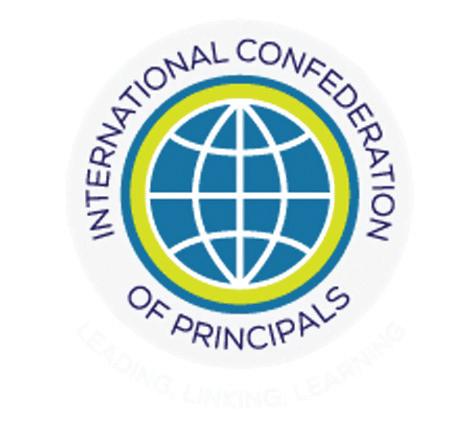
2012. But also, in recent years we cherish warm memories of working with Maria Doyle and today, with Damian White as our European Representative at the Executive Committee. But not only personal relations, also very valuable input from the hand of Páiric Clerkin and meaning unclear others to several ICP Councils in the recent past, delivering quality research done by your organisation.
IPPN and the whole of the ICP community is a place where your voice as members matters, the challenges of the profession are understood, and most importantly, your successes are celebrated. Your contribution through IPPN to this global network is deeply valued, and together, we can continue to elevate educational leadership for the benefit of every student, everywhere.
In these challenging times where the world seems to have completely gone mad in some corners of the globe, bringing up and educating a new generation of leaders is more important than ever. There are conflicts between nations and religions and misunderstanding of each other’s cultures and needs. Global warming. Artificial Intelligence. All of these ask for new ideas and new solutions. We, as school leaders, take our responsibility in enabling the next generation to help us with that and make this world a place where we take care of each other and the planet itself.
IPPN’s long term membership has delivered great relationships with people like Virginia O’Mahony who served as president in 2011 and
I wish you the most fruitful and inspirational learning experience at all of your future gatherings, conferences and more. I encourage you to stay in position and keep IPPN running for at least another 25 years and so many more.
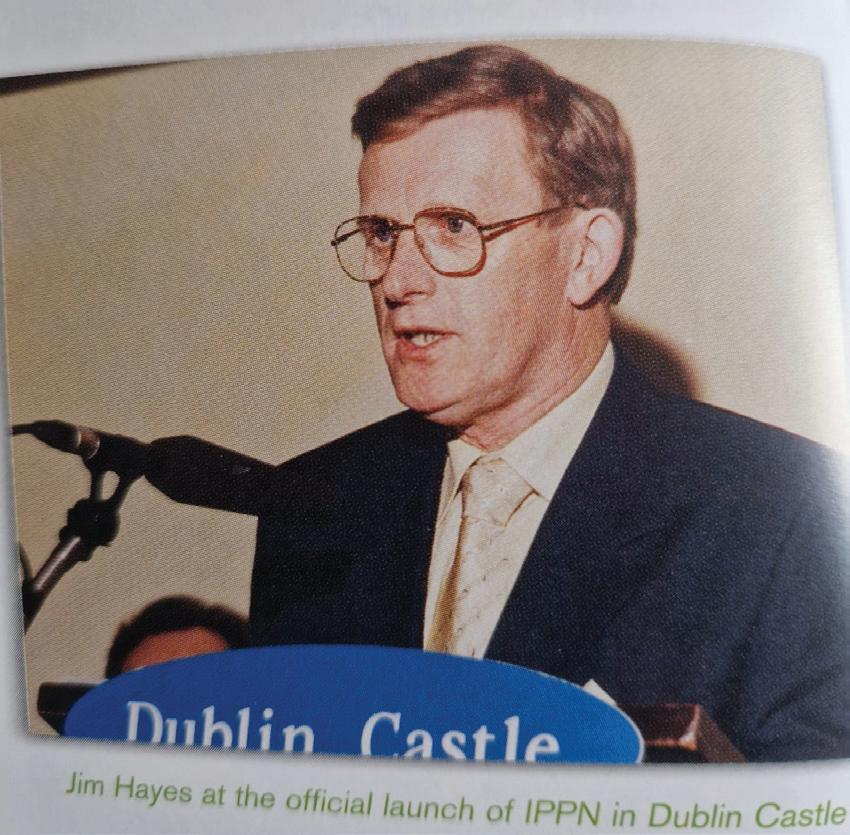
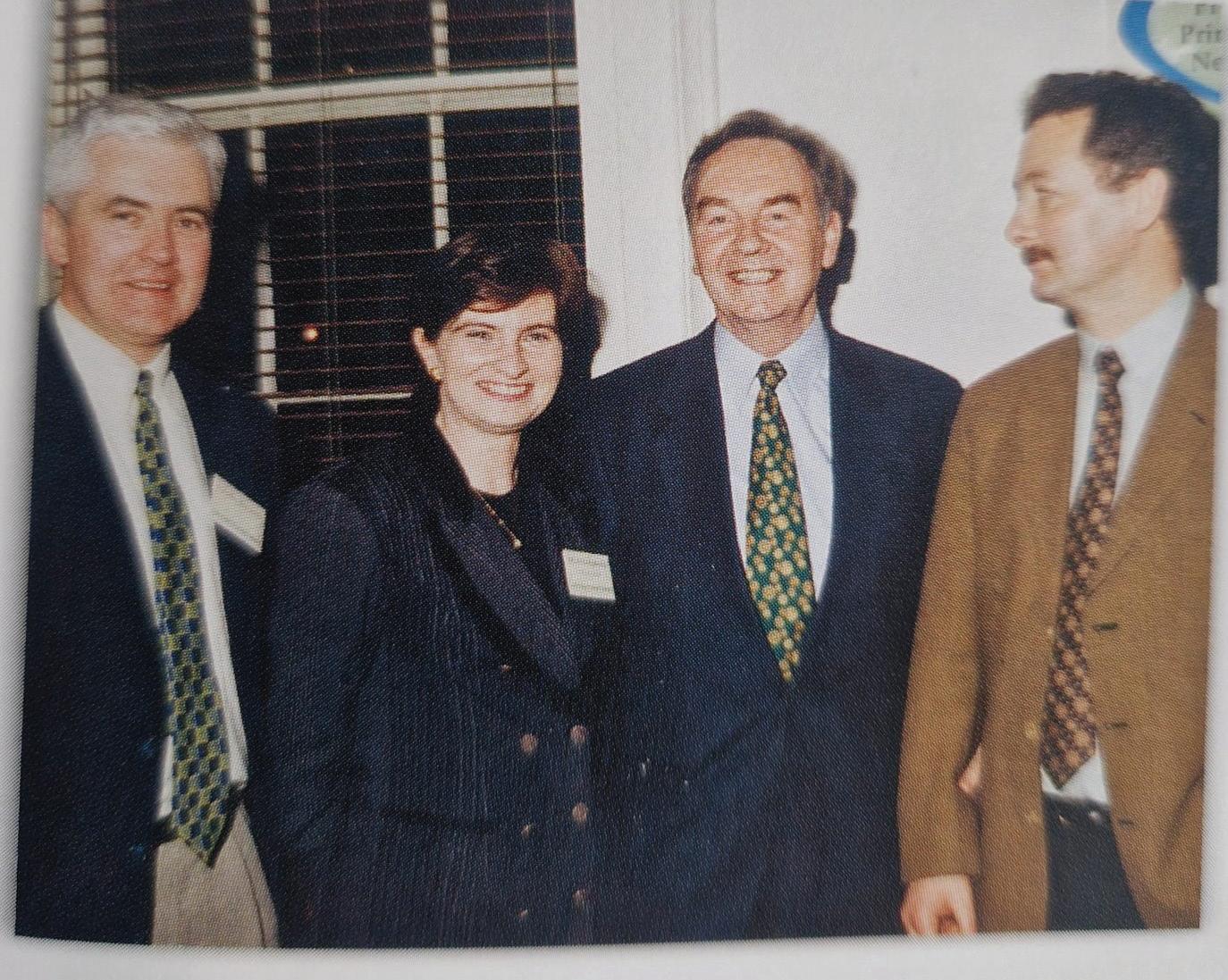
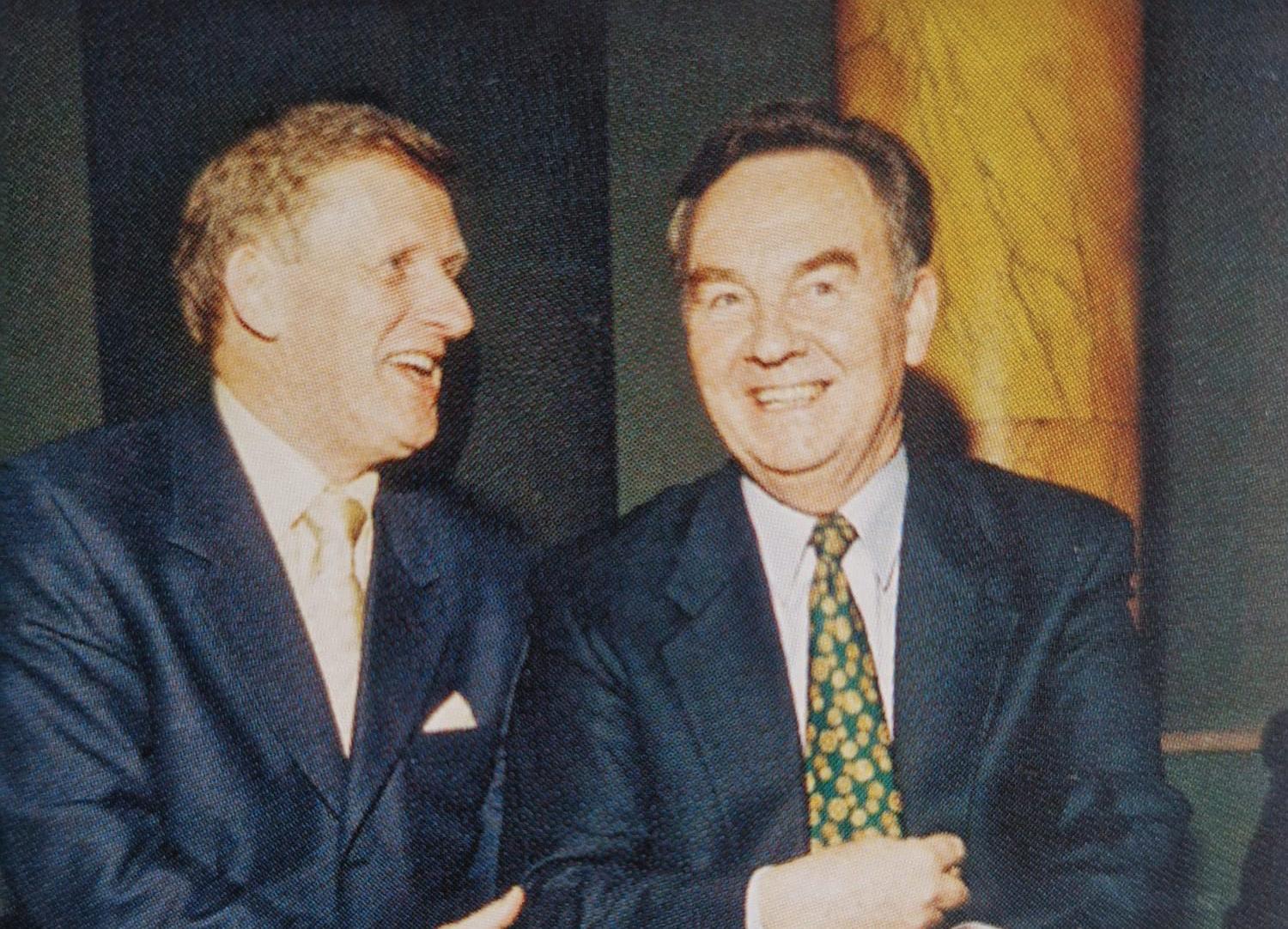
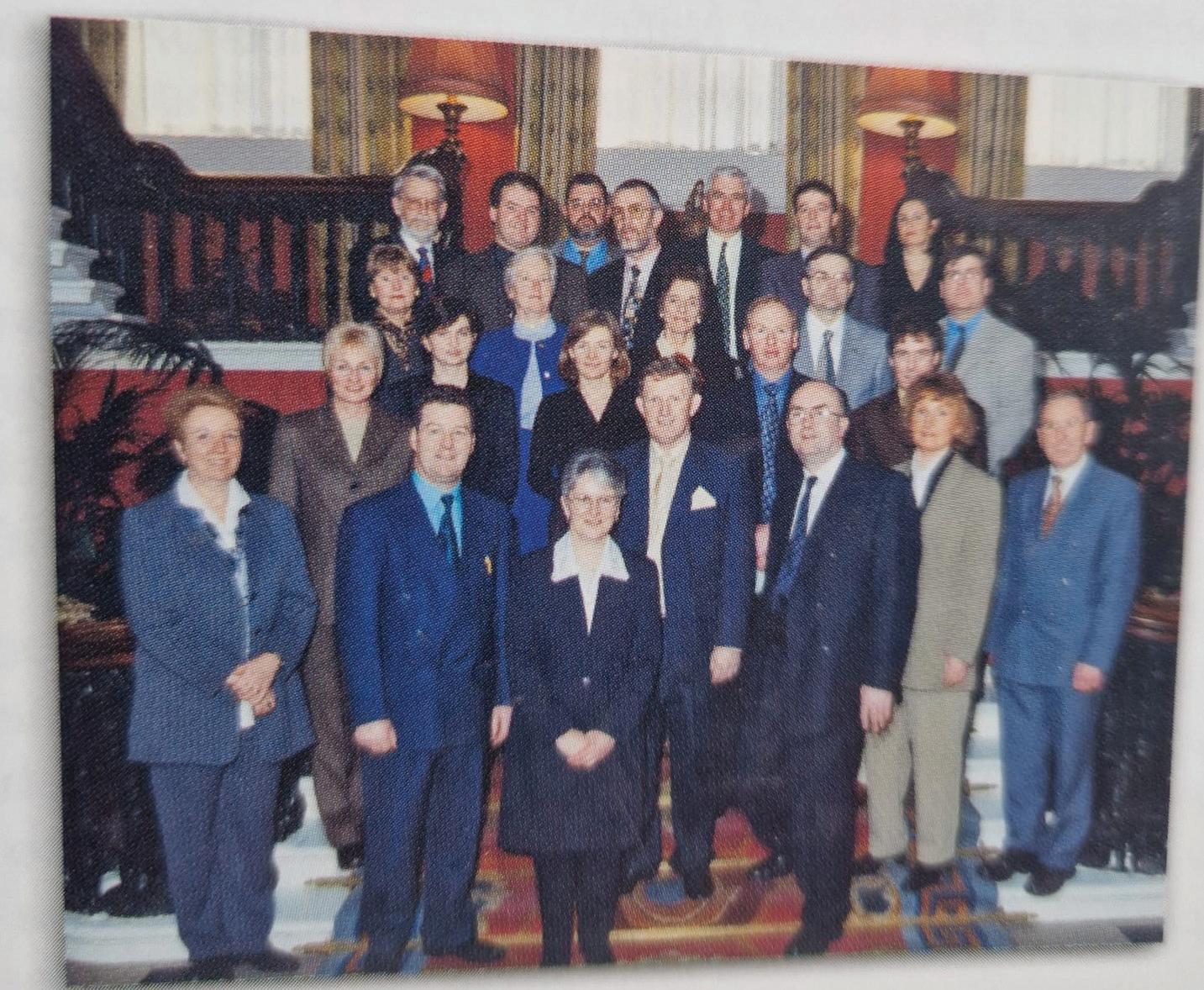
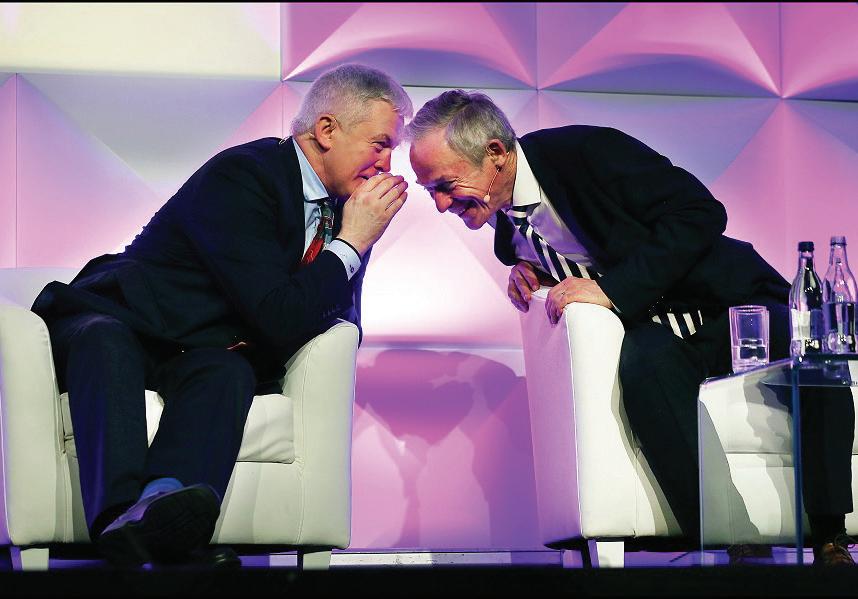
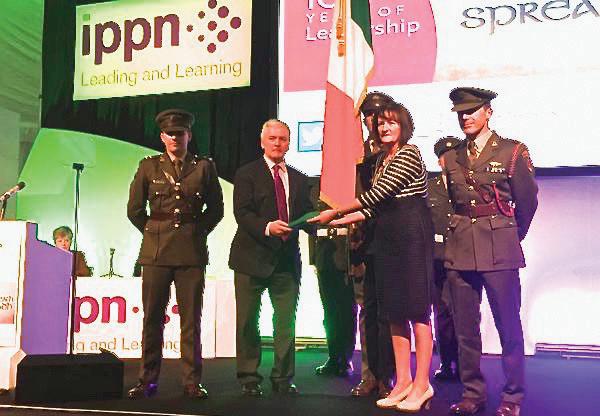
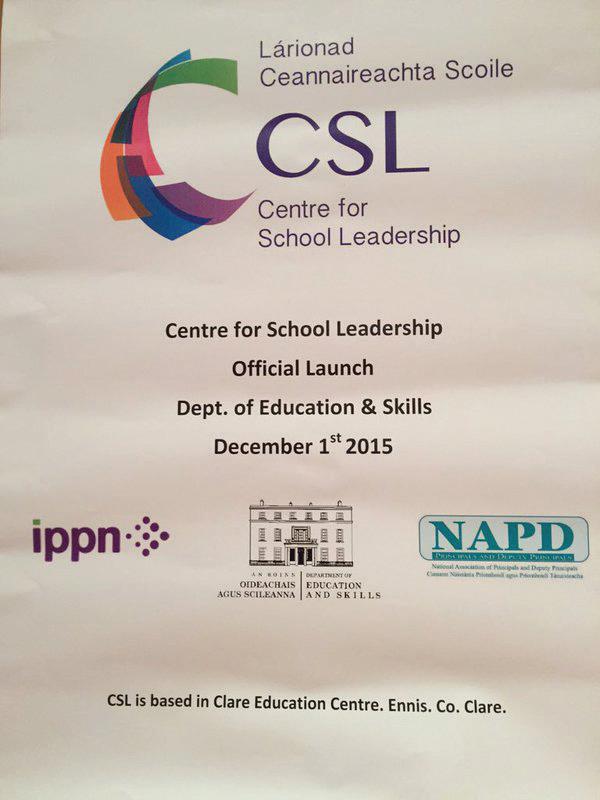
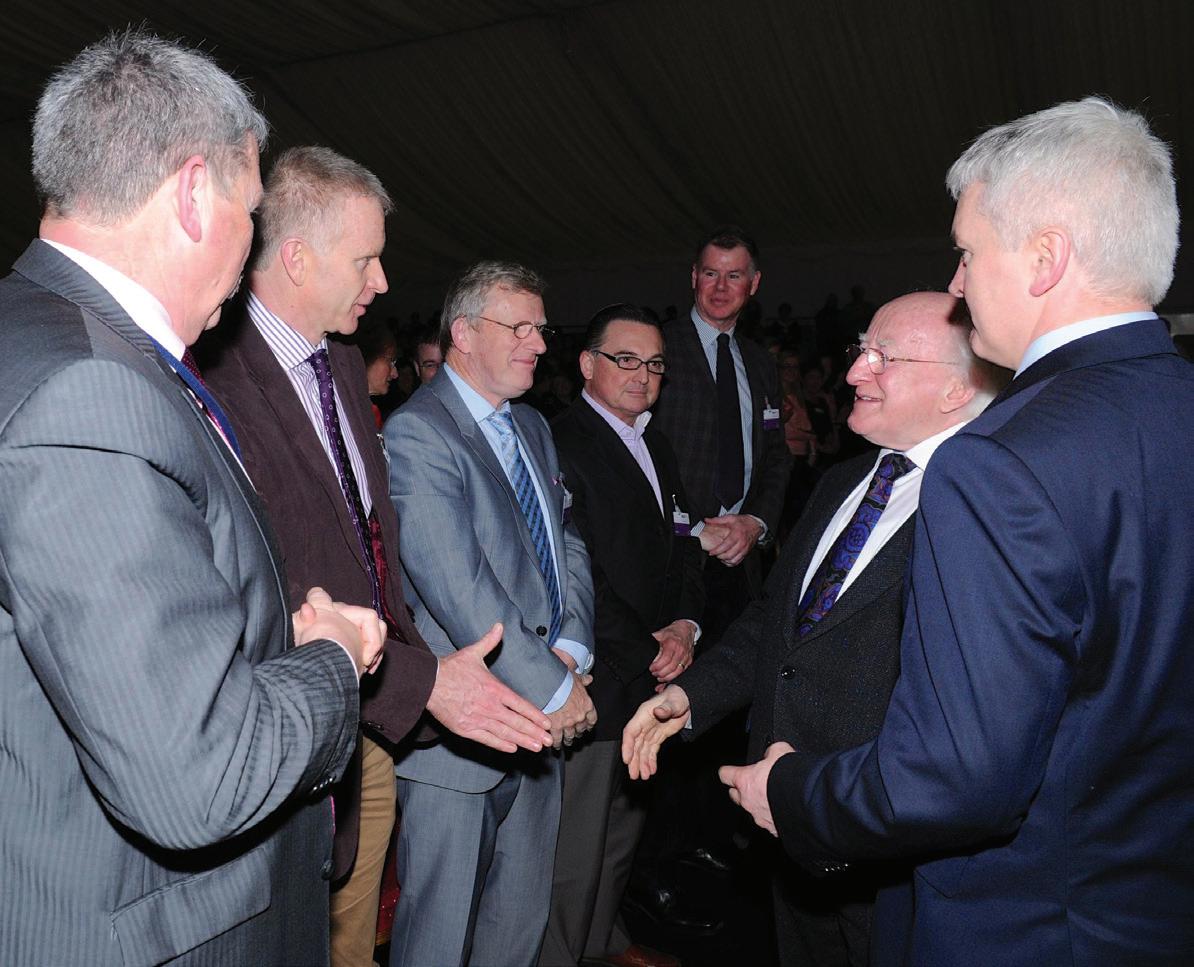
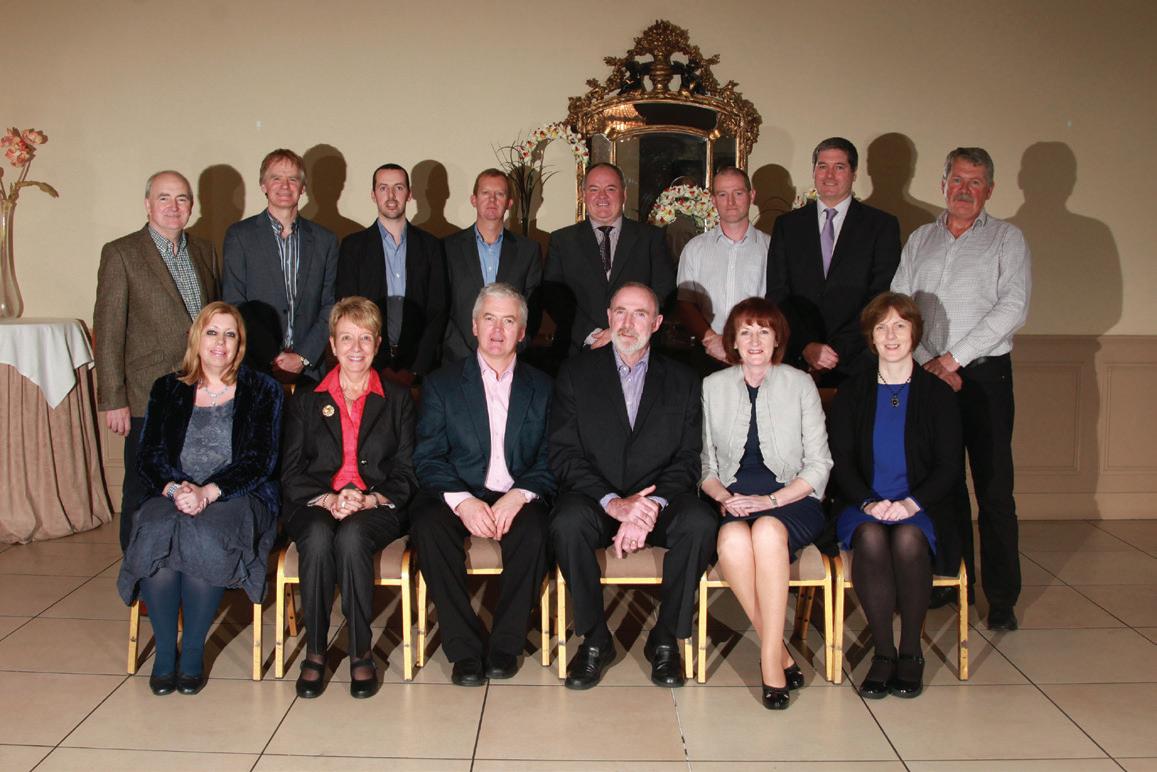
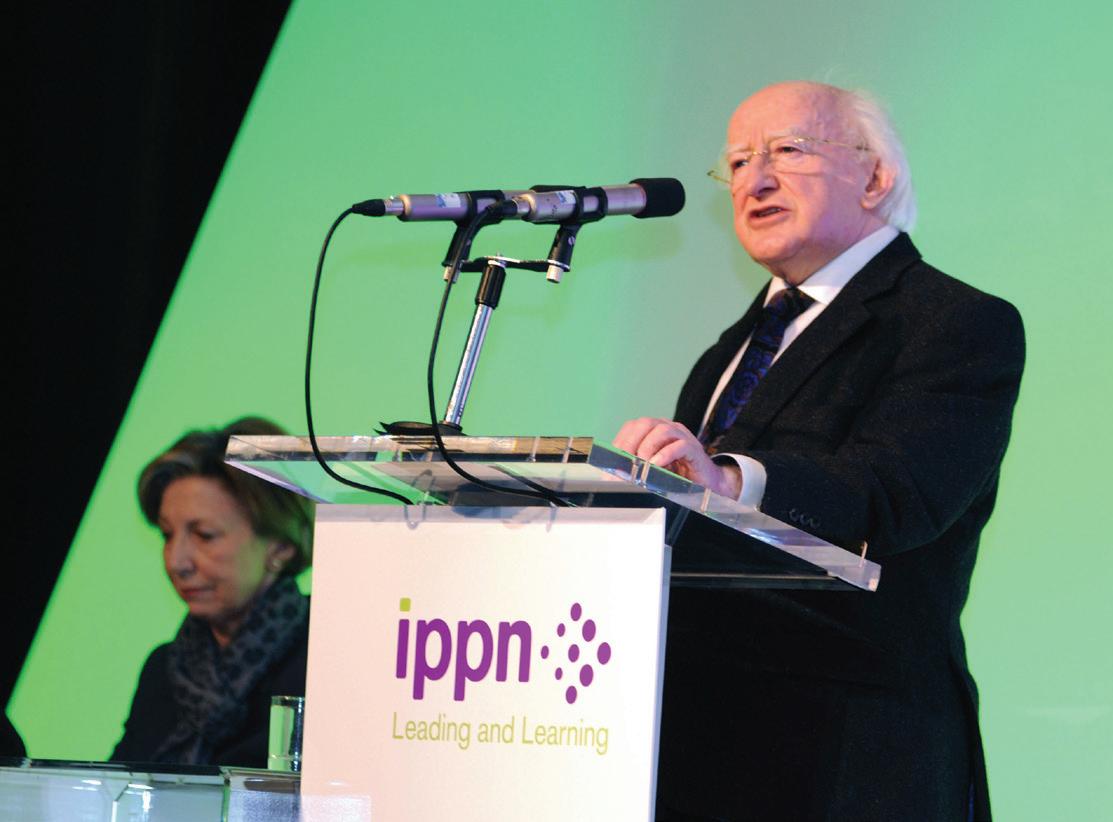
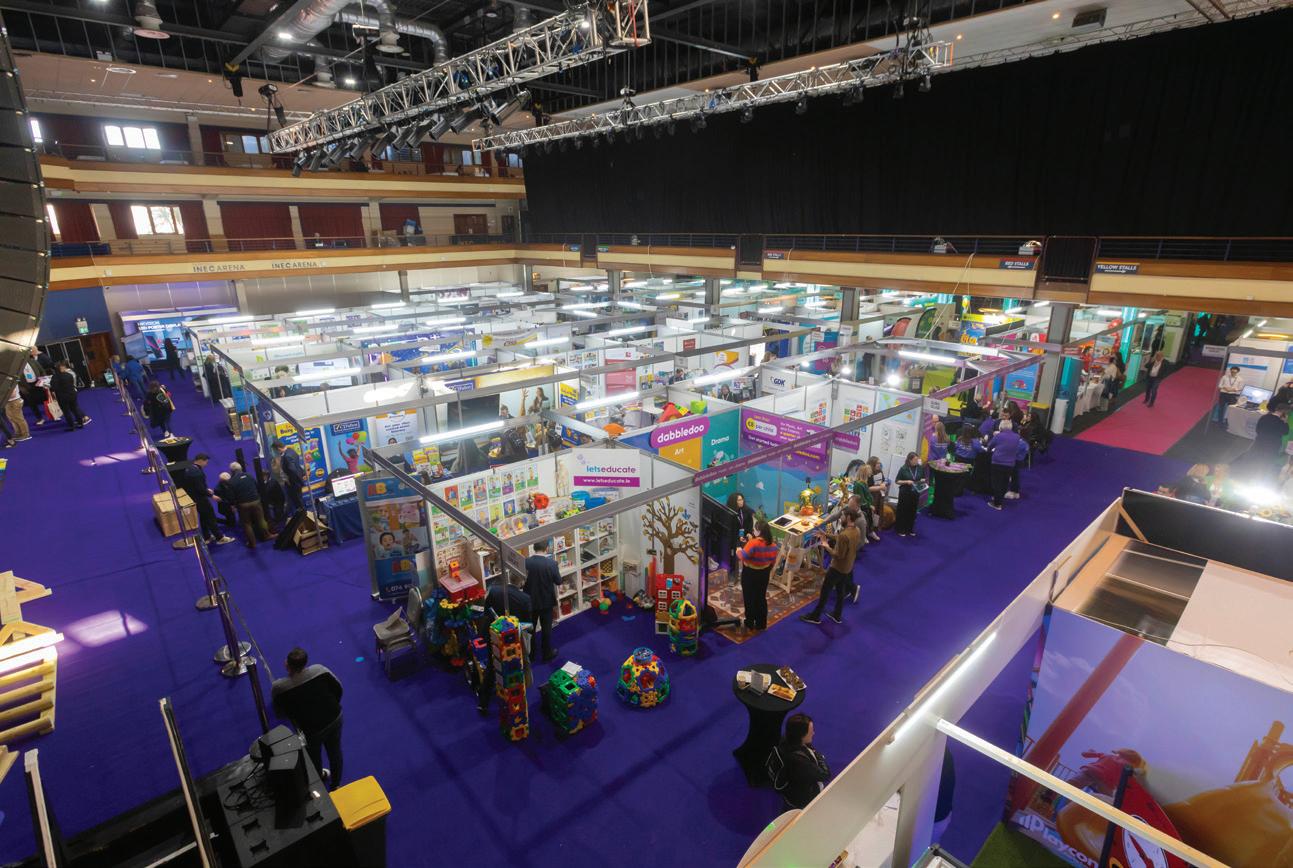
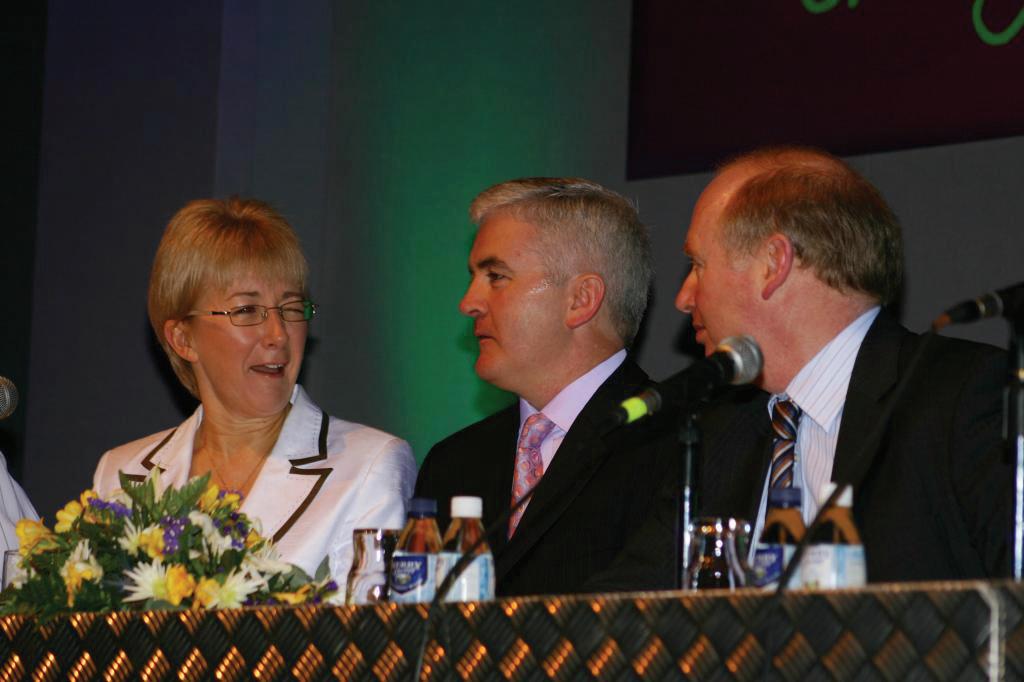
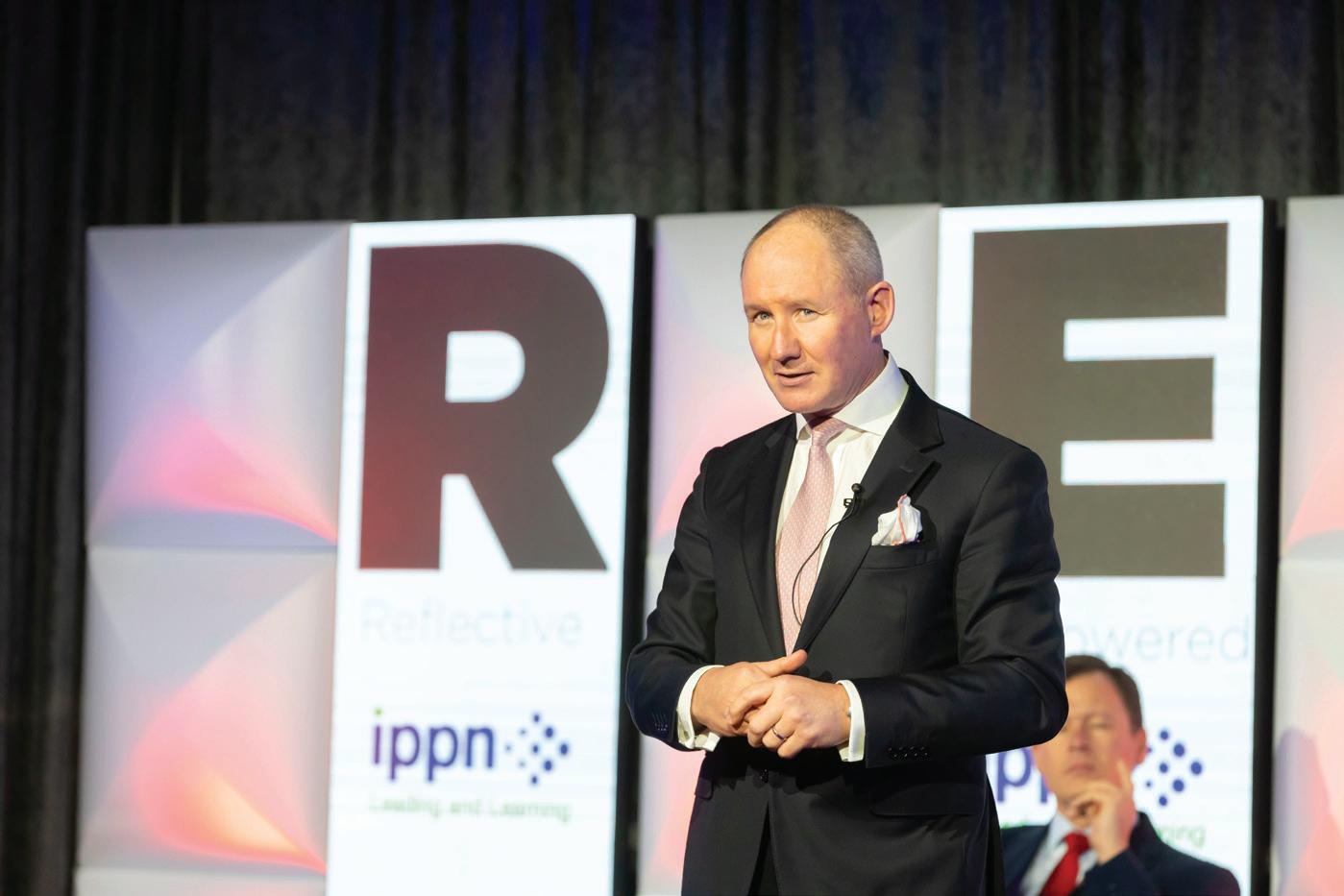
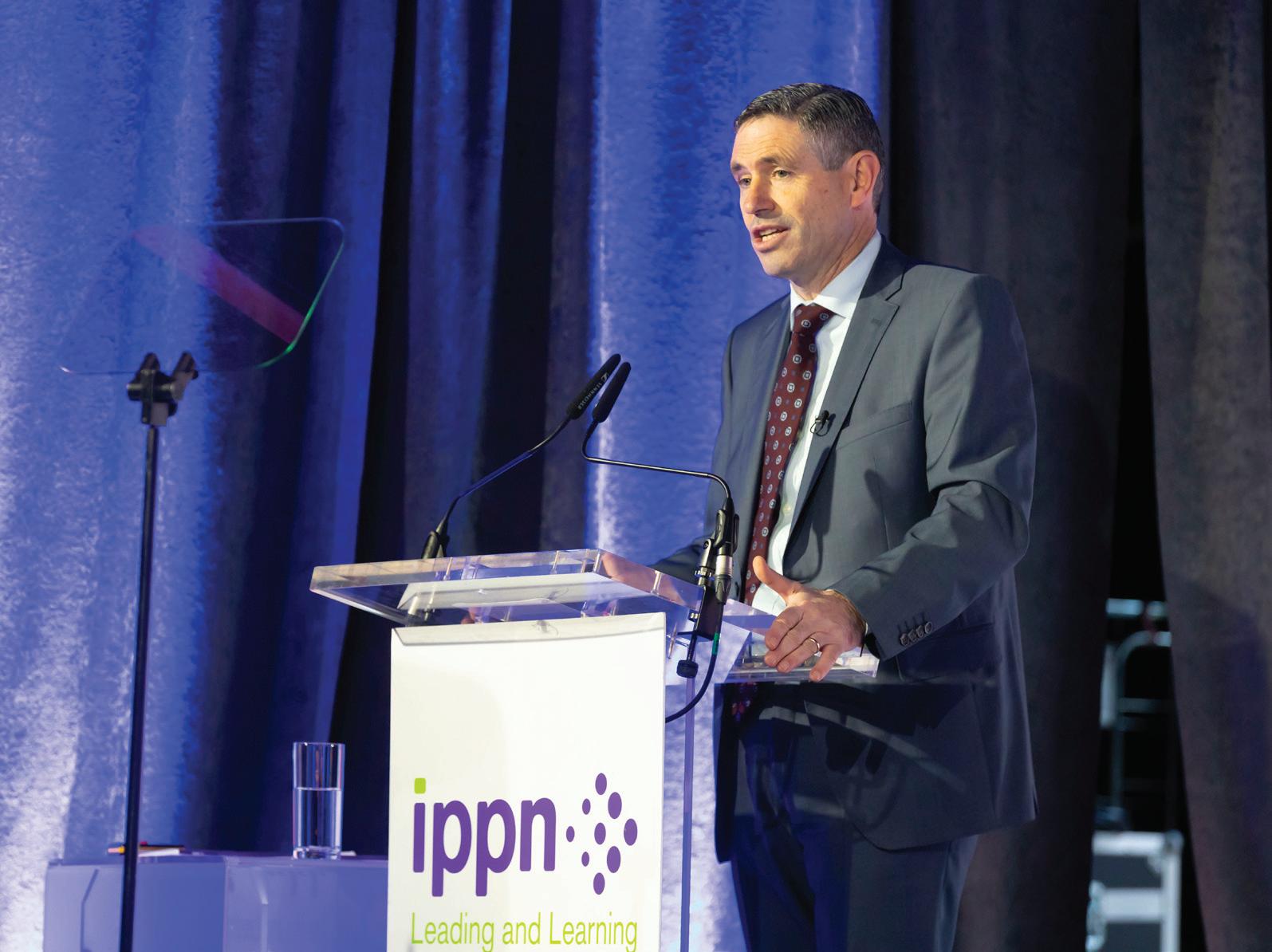
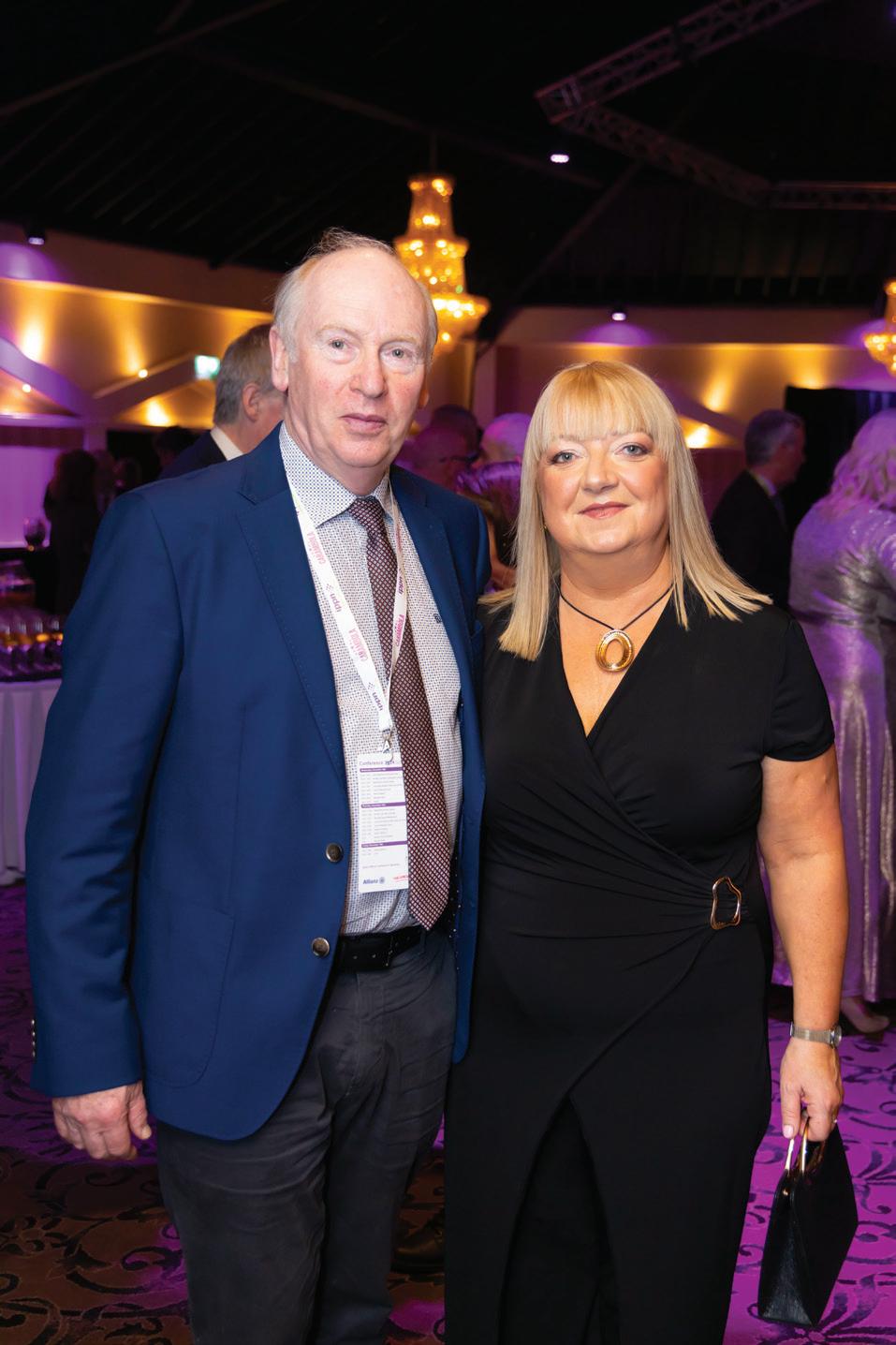
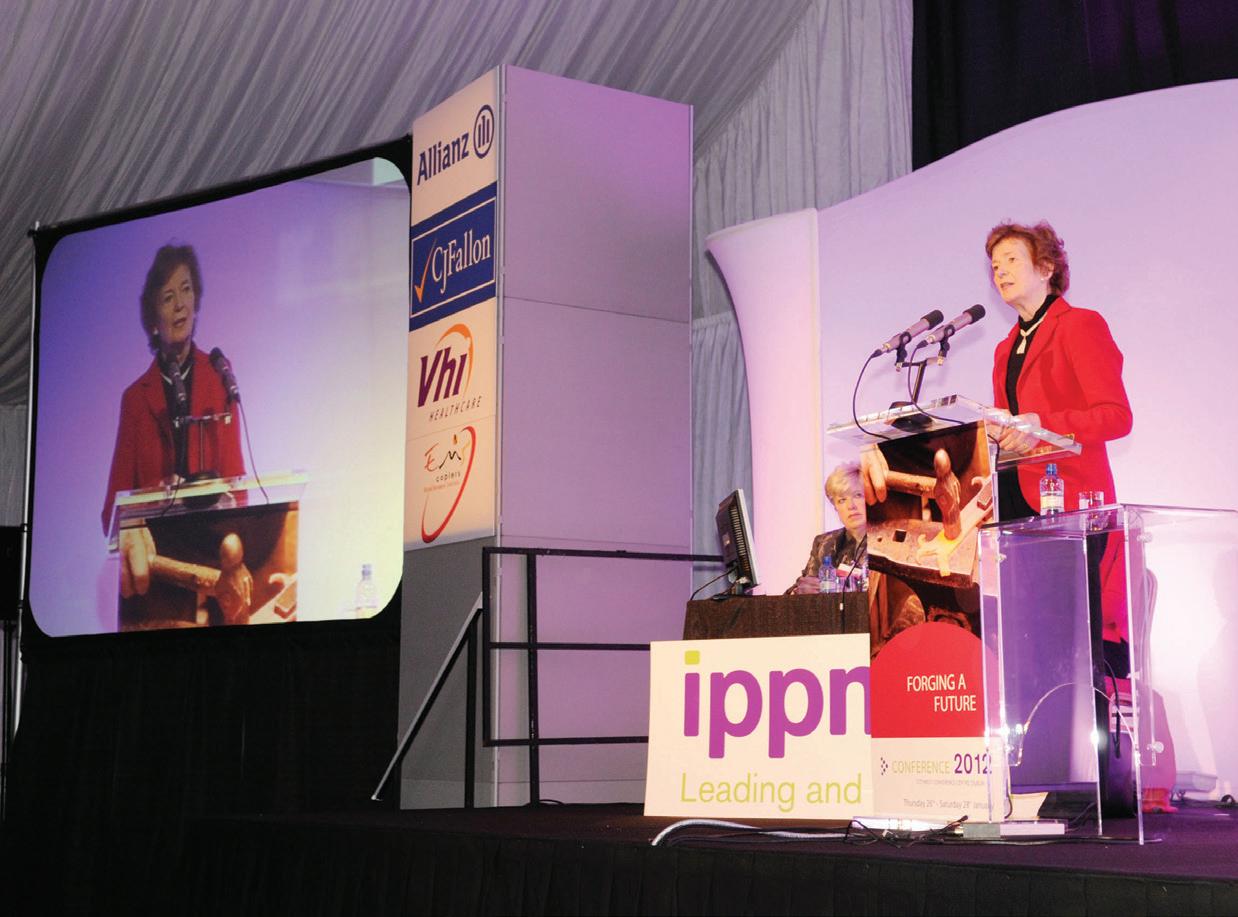

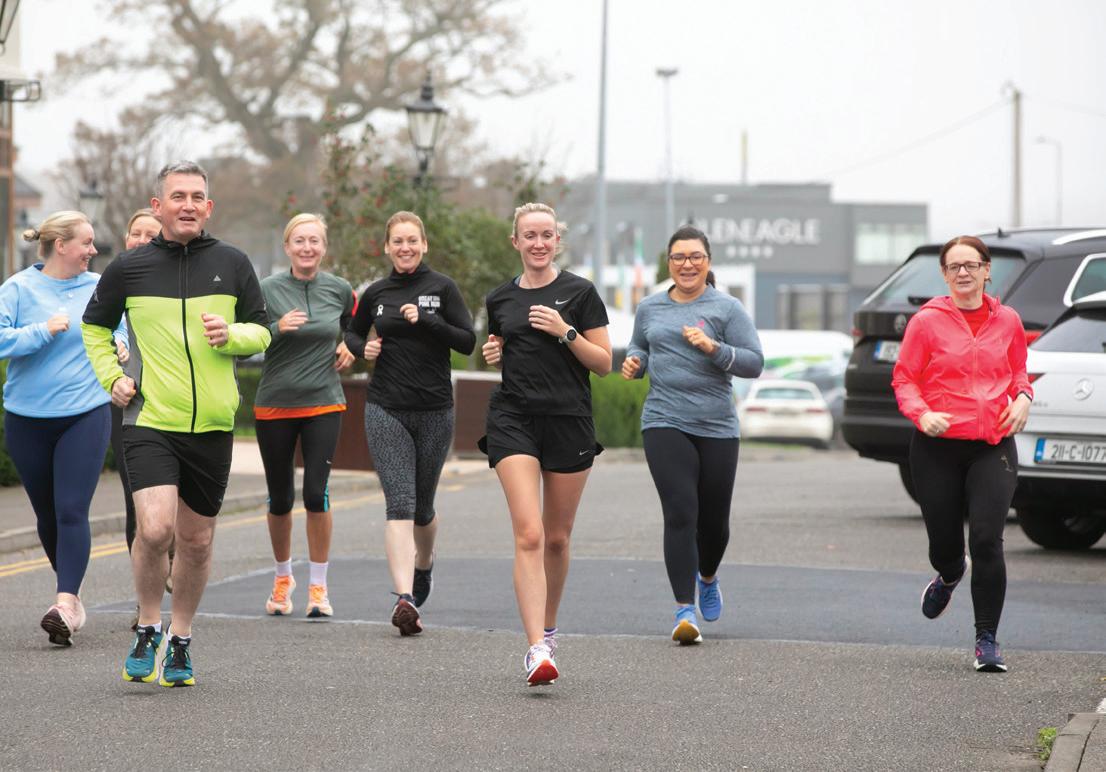
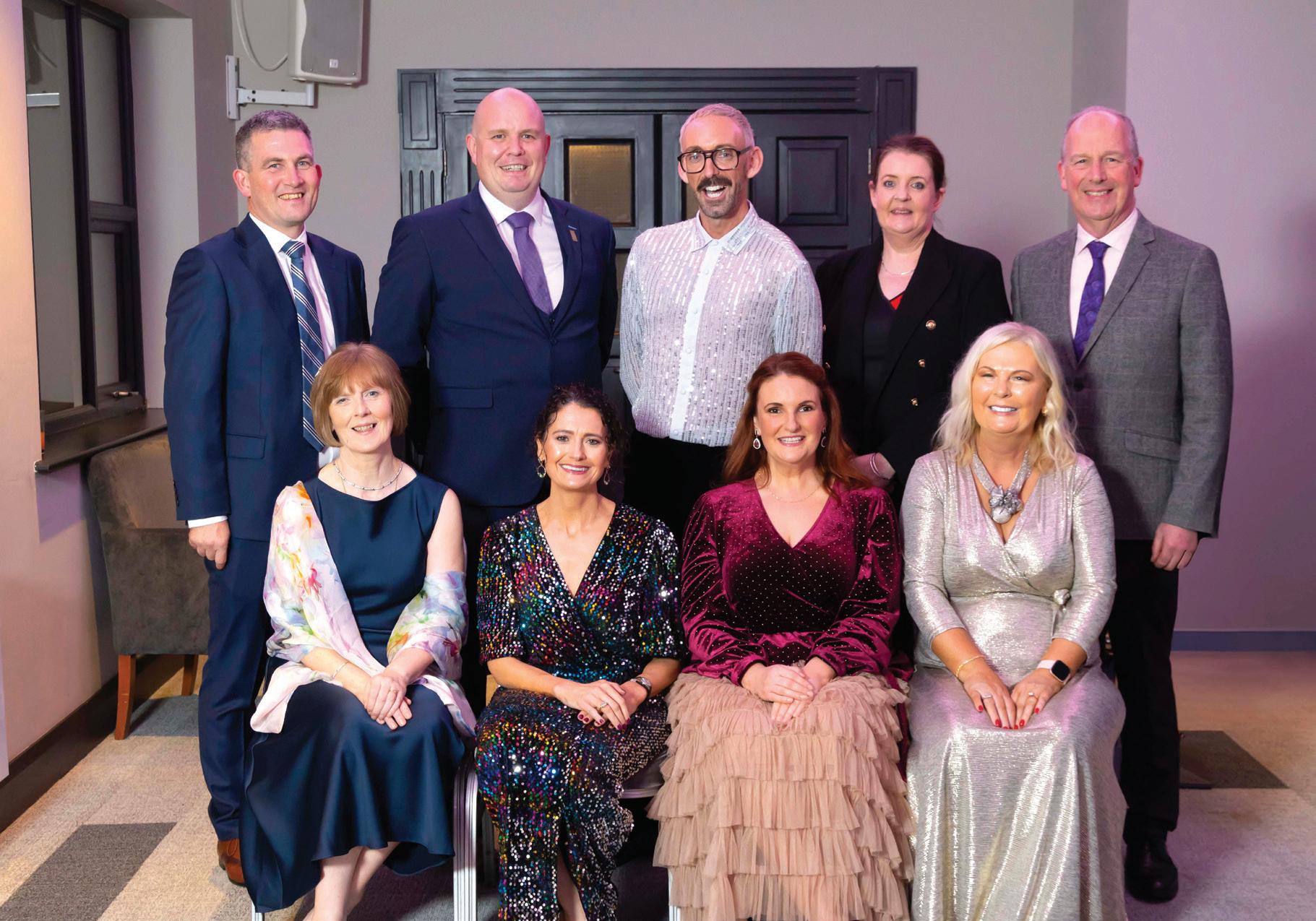
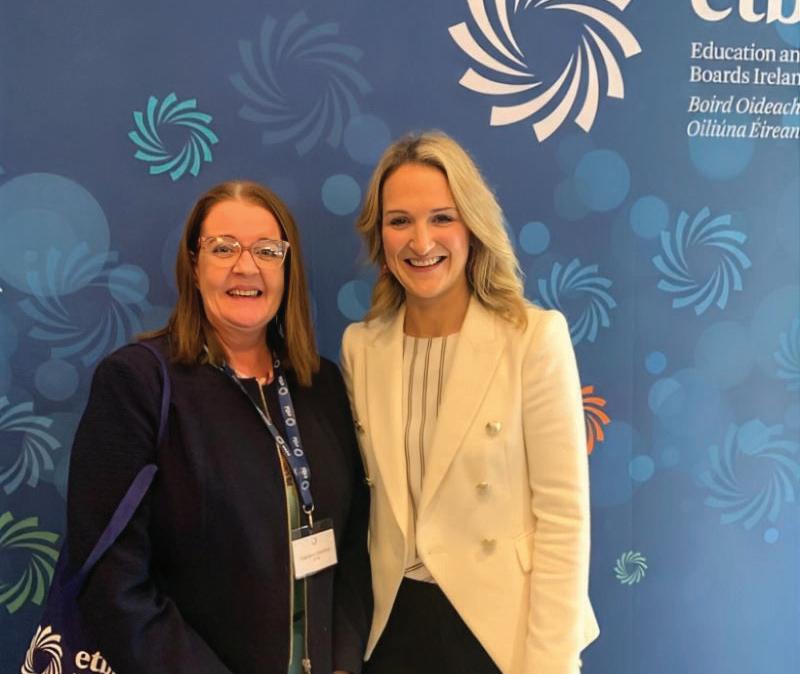

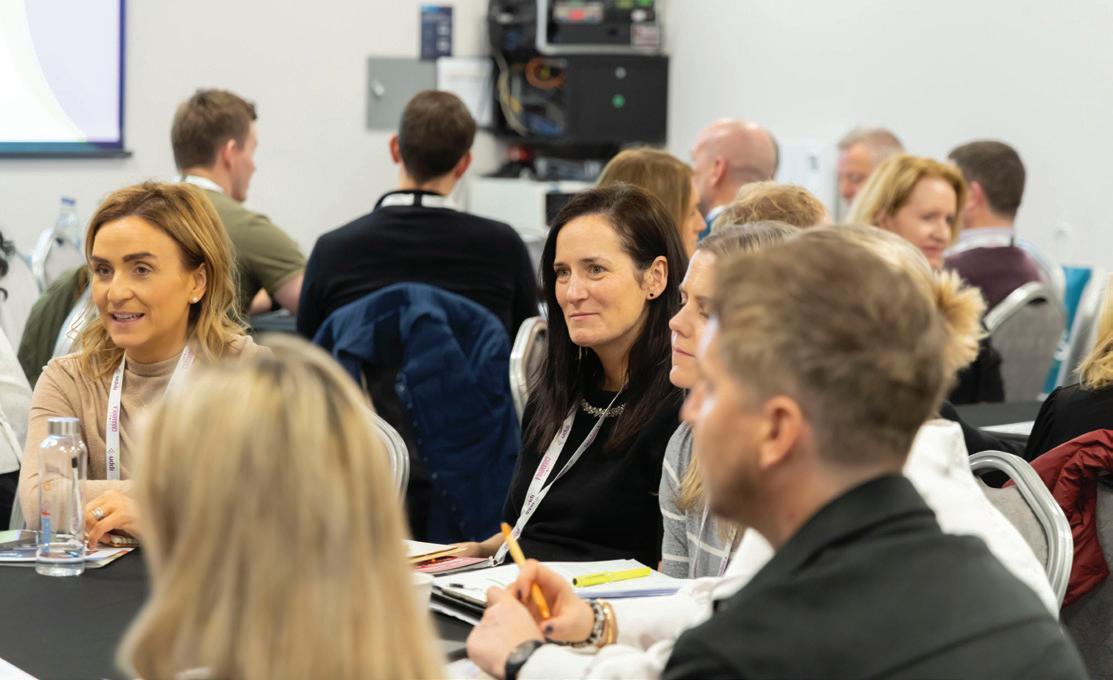

Paul SecretaryByrneGeneral ESHA
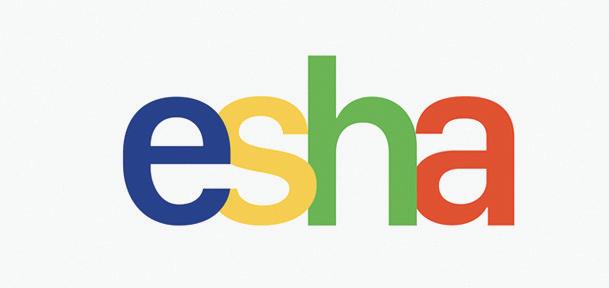
As IPPN reaches that stage in its journey of being twenty-five years young, it gives me great pleasure to extend sincere congratulations on behalf of ESHA (European School Leaders Association) to the Irish Primary Principals’ Network. I am sure that quarter of a century on, the visionary founders of IPPN are glowing with pride when they see how IPPN has grown into a central pillar for sustainable leadership, advocacy, and professional community in Irish primary education.
Over the past ten of IPPN’s twenty-five years, I’ve had the privilege of observing its growth—first as President and Deputy Director of NAPD, and now as Secretary General of ESHA. I’ve also worked closely with IPPN during my time on the council of ICP. IPPN has made a significant contribution at both European and international levels, holding the ICP presidency twice and serving on the ESHA board. In every forum, IPPN representatives have consistently demonstrated professionalism, integrity, and purpose, earning recognition as outstanding ambassadors for Irish education.
I have always been impressed with IPPNs deep understanding of the realities of school leadership. Its ‘warts and all’ approach doesn’t sugar-coat the complexity of the role of the
school leader and has never underestimated the personal and professional demands placed on school leaders. IPPN responds with action— offering practical supports, peer networking, professional development, and by providing a strong collective voice for its members. IPPN has consistently advocated for those in leadership positions—not only for recognition and resourcing but for meaningful systemic change. Whether through thoughtful policy and at times robust engagement while always careful listening to its members, IPPN has helped shape the reality of the narrative around school leadership, making visible the invisible work that goes on every day in schools across the country.
I’ve have witnessed first-hand the strength of IPPN’s community. Through its mentoring programmes, annual conferences, publications, and regional supports, it has built something more than a professional body. It has created a network of care, collegiality, and shared purpose. In a profession where loneliness and isolation can often come with the territory, IPPN has ensured that no leader is ever truly alone.
The response of IPPN during the COVID-19 pandemic is a perfect example of its commitment and capacity to care. In a time
of immense global uncertainty, when schools and communities were under pressure, IPPN stepped up to the plate offering clear, calm, practical leadership supported by on the ground supports to those most in need when they needed it most.
IPPN’s impact goes far beyond crisis response. It has consistently demonstrated forwardthinking leadership by investing in future school leaders, commissioning strategic research, and promoting reflective practice. Through this work, IPPN has helped shape a vision of school leadership that is sustainable, values-driven, and grounded in the real, day-today experiences of its members. While this kind of foundational work may not always make headlines, it plays a vital role in strengthening the education system and ensuring that school leadership remains a viable and supported career path.
As we now struggle with a national and international shortage of teachers and school
leaders the steady cultivation of leadership capacity and implementation of succession planning is vital. IPPN’s work is a lasting investment in education, with benefits that will reach generations to come.
IPPNs achievements are many and significant, but equally important is the spirit in which this work has been done, with integrity, honesty, solidarity, and always with the best interests of children and school communities at heart.
To all those who have shaped IPPN along the way, the founders, CEOs, presidents, board members, staff, and above all, the principals and deputy principals who have given so much of themselves, you have built something truly worthwhile and lasting.
Congratulations once again on being 25 years young. Here’s to IPPNs next chapter in the story of school leadership in Ireland, and to IPPN’s unrelenting commitment to leading the way.
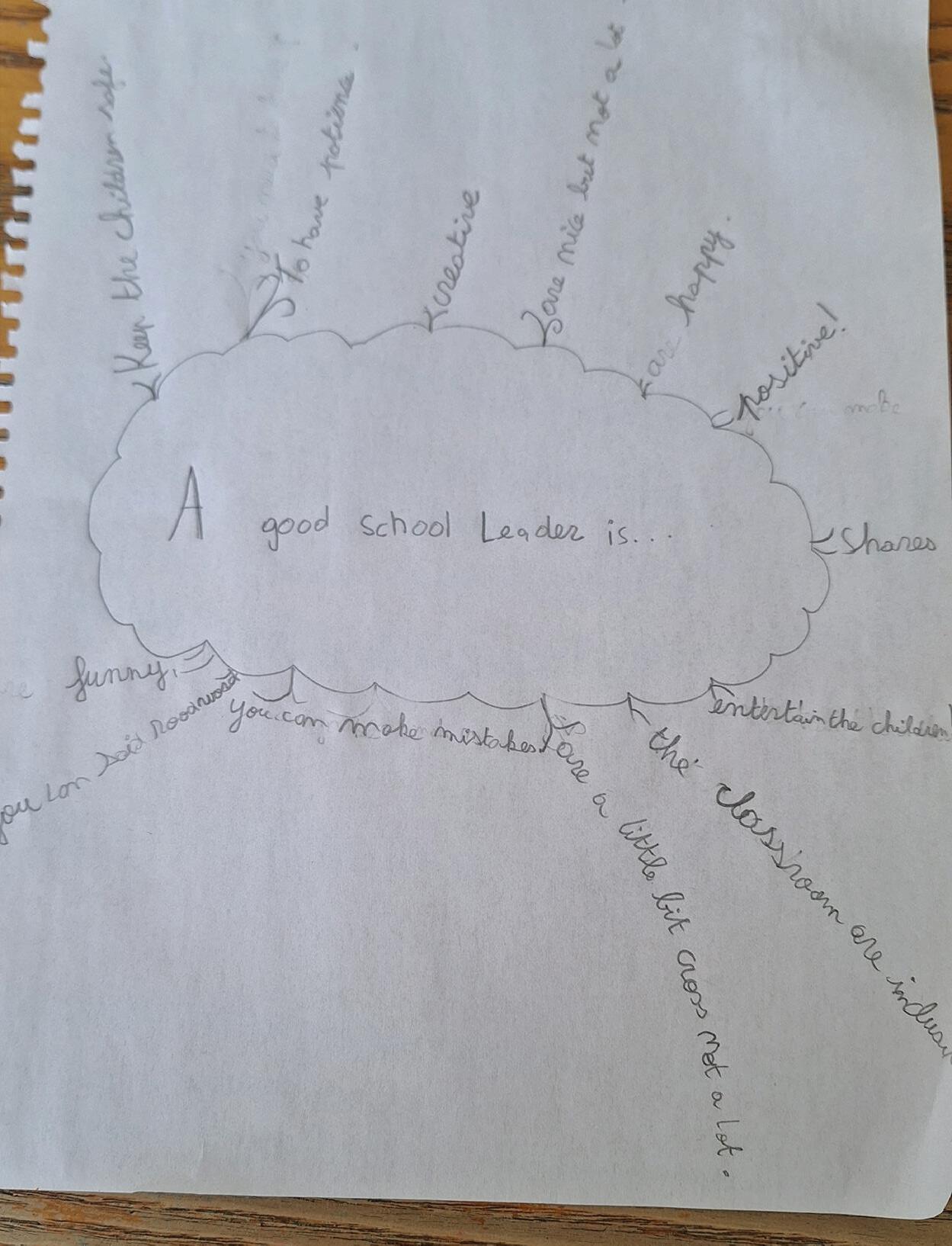
Over the years, IPPN has developed a suite of online supports for school leaders, to reduce the cost and effort in managing key aspects of school life – home/school communication (TextaParent.ie), vacancy advertising (EducationPosts.ie and Sub Seeker) and sourcing templates and exemplars (ippn.ie). Thanks to the professional generosity of IPPN members, these websites have evolved to become valued supports availed of by thousands of members every day.

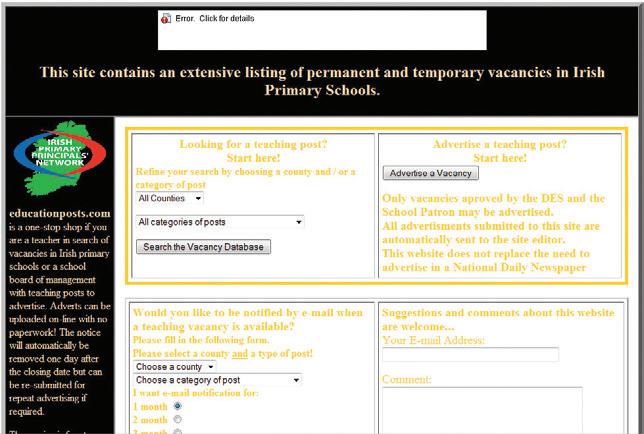
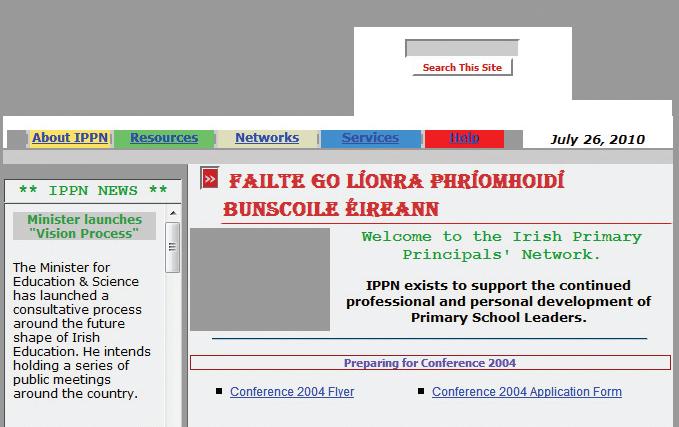

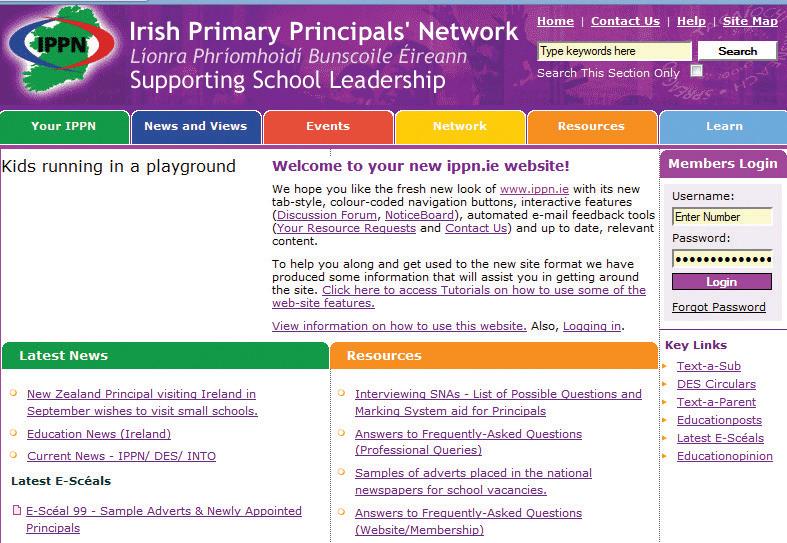
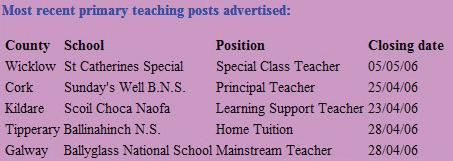
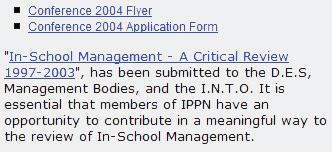
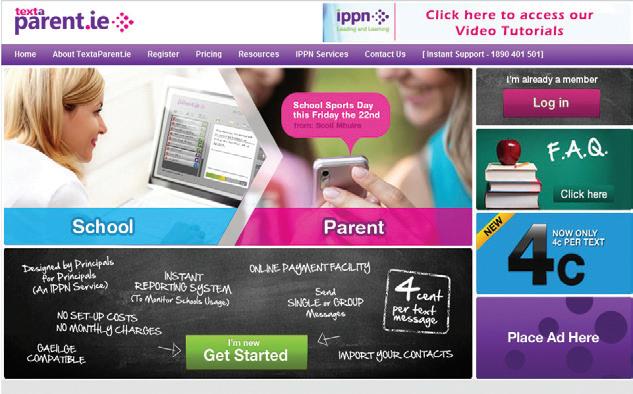
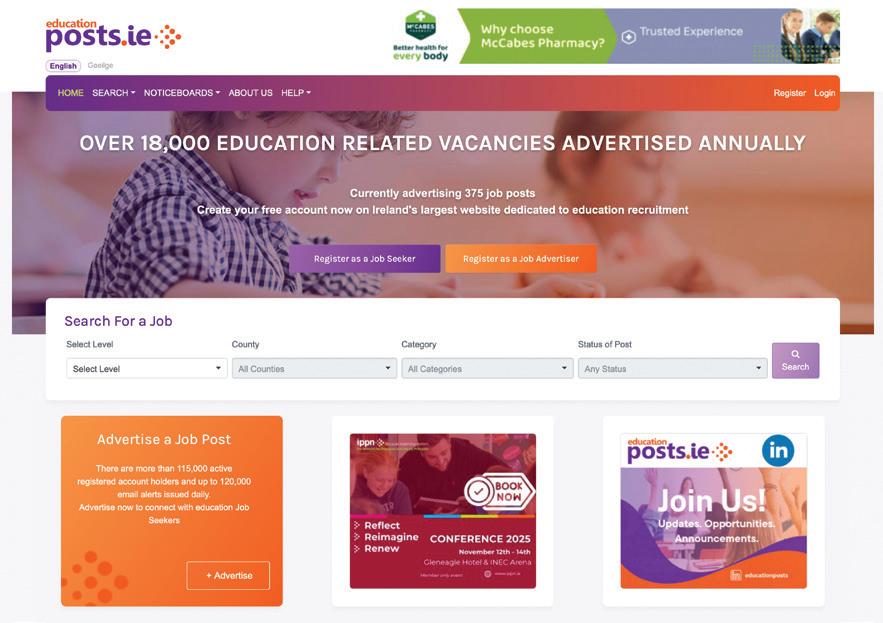
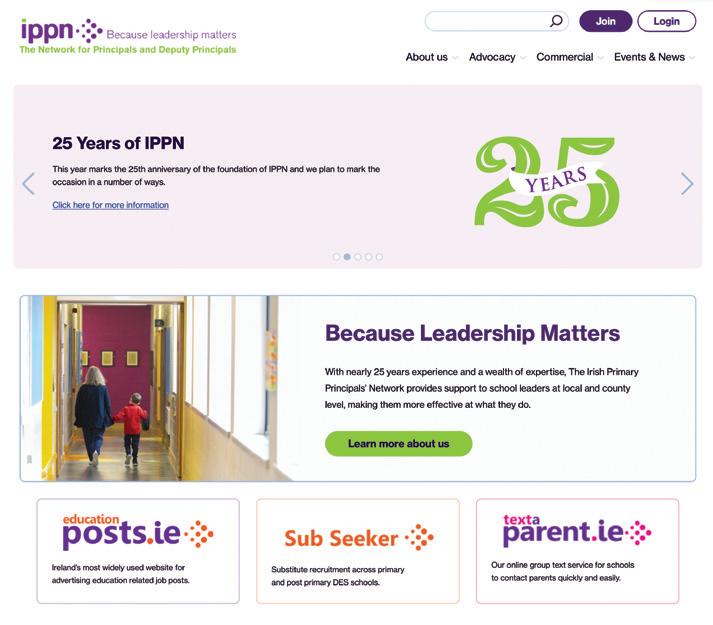
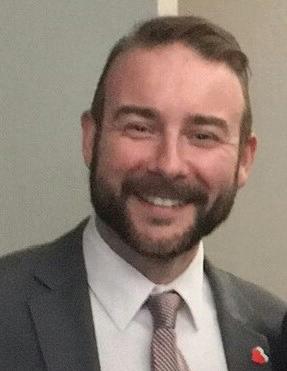
I’m delighted to be asked to contribute to this special edition epublication to mark twenty-five years of IPPN. The marking of this twenty fifth anniversary is significant for two reasons. It is an opportunity to highlight how IPPN, as an organisation, has developed over that period of time and embedded itself as a recognised stakeholder in the Irish education system. Secondly, coinciding as it does with the anniversary of fifty years of Boards of Management this year (2025), it provides a further opportunity to examine how the role of the school principal has evolved, not only in the ‘day to day’ management of the school; but as the leader of learning in school and as part of the general management of the school. 2025 is therefore a ‘hinge’ year in Irish education!
In my role as an advisor to schools and as a representative of schools, I have ‘visibility’ of the role that IPPN plays both as a support network for its members and as a stakeholder and advocate body at a national or ‘systems’ level. From speaking regularly with primary school principals from schools within my own sector, I know that the support they receive from IPPN Head Office is greatly valued. I know also that the wider support and existence of a network among peers and for peers, has come to be an essential piece of the professional infrastructure for primary school principal in Ireland. Over the last 25 years, IPPN has come to be regarded as one of the ‘systems level’ organisations in Irish education that ‘looks both ways’ – to its network of members and at the State in seeking to articulate the views of school principals on the range of issues that
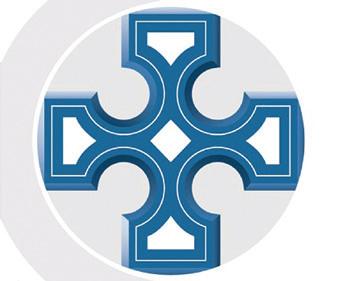
arise for the person tasked with managing the ongoing work of school.
It is interesting to note how the role of the principal itself has developed over the last number of decades. While everyone thinks they know what the school principal does, only those who either are principals or work closely with principals might realise how the role has changed and evolved. Where once a school principal would lead their staff of teachers, a school secretary and maybe a school caretaker, the reality of running a school of today is far removed from any idea of school management being ‘just’ about the organisation of staff and making returns to the Department of Education! School leaders today provide a management role that delivers both teaching and learning to reflect the needs of pupils in various ways, along with all the reporting, compliance, administration and data management that is a requirement of any modern-day operation. The role of IPPN, in both supporting principals and advocating specifically in regards to the management role of the school principal, has proved itself as being needed in Irish education and this is now widely recognised by stakeholders who work alongside IPPN in supporting school leaders.
In marking fifty years since the introduction of Boards of Management in 1975, it is also important to highlight that this change to how governance is carried out in Irish schools is also relevant to the role of the principal. Where once there was the (single) school manager (often the local cleric) and only the principal
to run the school, we now have a Board of Management. Unlike at post-primary level, at primary level the principal is a member of the Board which is significant as it allows the principal to speak at ‘eye level’ with other Board members. As an organisation, IPPN has always been conscious of this and, on behalf of its members, has sought to maintain engagement with school management representative organisations. Individual school principals do not usually have visibility of this type of engagement by leadership team at IPPN, but it is an important element of the ‘unseen’ work of IPPN and one which contributes to the
common goal of all of us in education, which is to seek to ensure that the children in school get the best possible educational experience and development.
On behalf of my own organisation, the Church of Ireland Board of Education, may I wish IPPN continued success into the future. We look forward to continuing to work with you for the good of the leaders in our schools, whom we all value so highly.
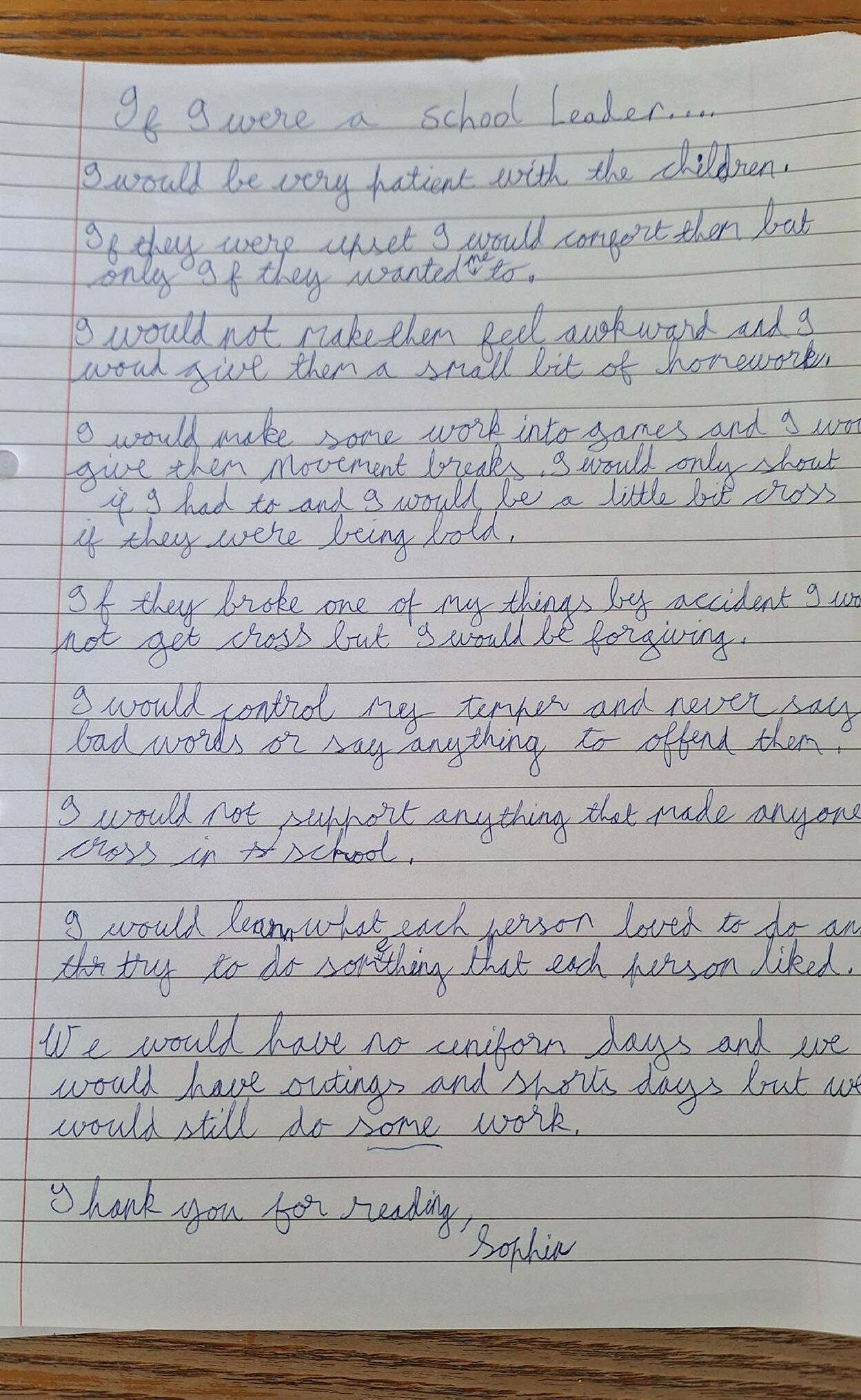

Aine Lynch CEO, National Parents Council
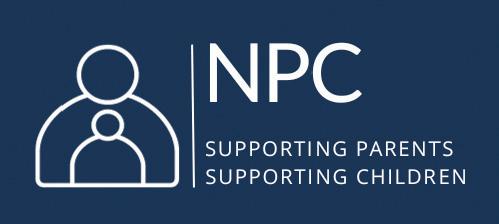
NPC wishes many congratulations to IPPN on its 25th anniversary. When I started in my role as CEO of the National Parents Council, IPPN were one of the first organisations to seek a meeting with me. At that meeting, IPPN set out the important relationship they believed needed to be fostered between our two organisations as representatives of school leaders and parents. Over the years, the relationship between IPPN and NPC has gone from strength to strength. Whilst not approaching issues necessarily from the same context, our partnership work has succeeded, I believe, due to the fact that both organisations continue to focus on better outcomes for children at the core our professional relationship.
This partnership has allowed NPC and IPPN to work on a number of issues together including in the publication of ‘Supporting Each Other’ and on the significant project ‘Partnership Schools
Ireland’ (PSI). Our partnership on PSI really is at the core of the collaboration between IPPN and NPC, where the programme supports school communities to work effectively together on all aspects of school life, ensuring school staff, parents, students and local community members work together for better outcomes for the students in the school.
NPC strongly believes in its collaborative work with IPPN and the support that this collaboration at a national level can provide for school leaders and parents at a local level. Again, I would like to congratulate IPPN on all of its achievements over the last 25 years, and NPC look forward to our continued collaboration in the future.
NPC strongly believes in its collaborative work with IPPN and the support that this collaboration at a national level can provide for school leaders and parents at a local level.
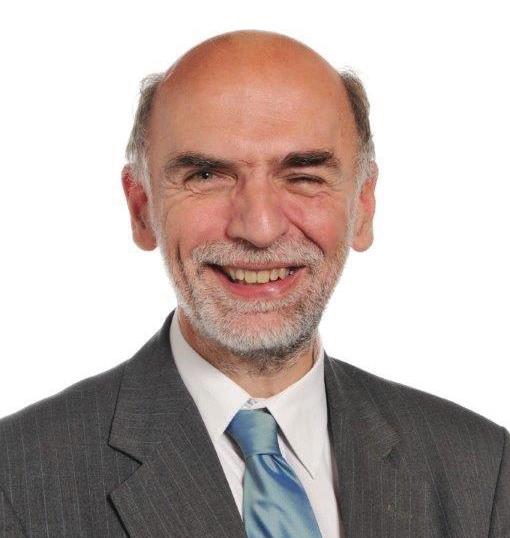
Words matter. IPPN is a ‘network’, ICP is a ‘Confederation’ and ASCL, my home organisation in the UK, is an ‘association’. All three words paint a picture of a group of colleagues working together to provide mutual help and support. That image sums up my experience of working with IPPN over a number of years.
I have always been deeply impressed by the enthusiasm shown by IPPN colleagues to take every opportunity to work with fellow leaders from around the world, both to learn from them and also to generously share their own experiences and insights. When I was ICP President, Páiric, Brian and Damian all made huge contributions to our Council meetings, sharing the research that contributed to IPPN’s excellent publications on sustainable leadership and leading discussions with colleagues around the world on how they could transfer these insights to their own situations and contexts.
In the same spirit, ICP has benefitted hugely from the wonderful work of Maria Doyle, both as a member of ICP executive, and also as an inspirational champion of student voice. Whether it be Singapore or Rovaniemi or Mombasa, many of us who attended these events have particular memories of Maria’s wonderful work with student leadership panels and the way in which Maria’s wit and insight inspired the students to share some profound
insights with us.

Last but not least, a network or confederation or association is in the end all about people. The friendship and warmth which IPPN colleagues have always brought to international events, less tangible but just as important as any workshop or seminar, has played a central role in building the relationships between leaders from different cultures and continents that is at the heart of ICP. I often reference E.M. Forster’s famous advice ‘Only Connect’ and in my experience IPPN has been central to establishing this connection between leaders from across the world.
IPPN embodies so many admirable qualities: a generosity of spirit, a willingness to give and receive, warmth and kindness. The organisation encapsulates what it means to be part of a worldwide community of leaders and serves as an example and an inspiration to us all.
Congratulations on your silver jubilee and long may IPPN and the values that it embodies continue to flourish.
Peter Kent is a former president of both Association for School and College Leaders (ASCL) and the International Confederation of Principals (ICP), a National Leader of Education, Fellow of the National College for School Leadership, to name just a few of his accomplishments.
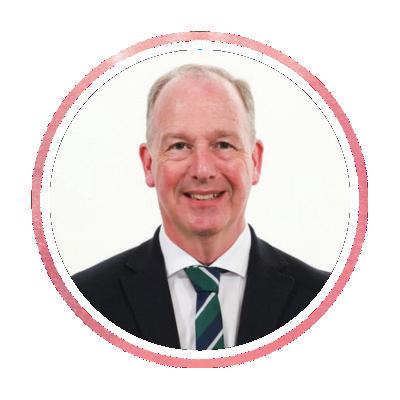
Diarmuid Hennessy, Principal of Scoil Mhuire na nGrást, Belgooly, Co.Cork, IPPN Board member and IPPN Cork Committee member
In December, IPPN Cork, in association with the Cork Education Support Centre, and with the support of the IPPN Support Office, played host to a special 30th Anniversary celebration in honour of the original organising committee of the first Irish National Principals’ Conference. The Changing Role of the Primary Principal provided the theme for this inaugural event, which was held on the 14th & 15th October 1994 at the Imperial Hotel, Cork.
Prompted by the government publication in 1992 of The Green Paper in Education, Education for a Changing World, which signalled shifting responsibilities for principals and a changing educational landscape, this visionary group recognised the acute need for advocacy to ensure that effective practical supports and continuous professional development opportunities were made available for their professional peers. Named after the first conference, ‘Talking Heads’, this group were equally committed to prioritising the cultivation of networking opportunities for a professional leadership position that, at the time, could be quite a solitary role. By contrast, there was no shortage of good-humoured banter and camaraderie among the assembled group as they gathered once again to celebrate this achievement.
The stories and tales shared on the day also served as a reminder of the vision, dedication and collaboration of the original organising committee. Given that mobile devices, internet and social media were not available, communication presented some organisational challenges. In terms of achievements, building a space for mutual engagement, establishing links with fellow educational partners and exploring and considering the leading of teaching and learning at home and abroad became distinguishable hallmarks for this fledgling group in their efforts to support principals. Of particular note, networking, as is the case today, has over the course of time, fostered highly-valued, warm friendships which have endured and extended well beyond people’s professional lives.
‘Talking Heads’ went on to organise two further National Conferences in 1995 and 1996 in Cork.
Subsequent National Conferences were held in Malahide, Dublin in 1998, 1999 and 2000. As momentum grew, and following consultation with representatives of the organisers of the Cork Conferences and the Conferences held in Dublin, it was decided to set about forming a National Professional Network for Primary Principals. This eventually culminated in IPPN being formally launched as a national organisation for Primary Principals at Dublin Castle on 10th February 2000. In marking the 30th Anniversary of the inaugural National Principals’ Conference, we celebrate the legacy of these pioneering advocates for school leadership. Owing to the equally impressive and formidable developments overseen by the dedicated efforts of so many others in the intervening years,
IPPN continues to remain a pivotal and welcome cornerstone for countless principals and deputy principals during the course of their daily work in schools.
We look forward to IPPN’s 25th anniversary in 2025, providing further opportunities to celebrate its successful and ever evolving mission of Tacaíocht, Spreagadh agus Misneach in the Irish school leadership journey.
Ar scáth a chéile a mhaireann na daoine.
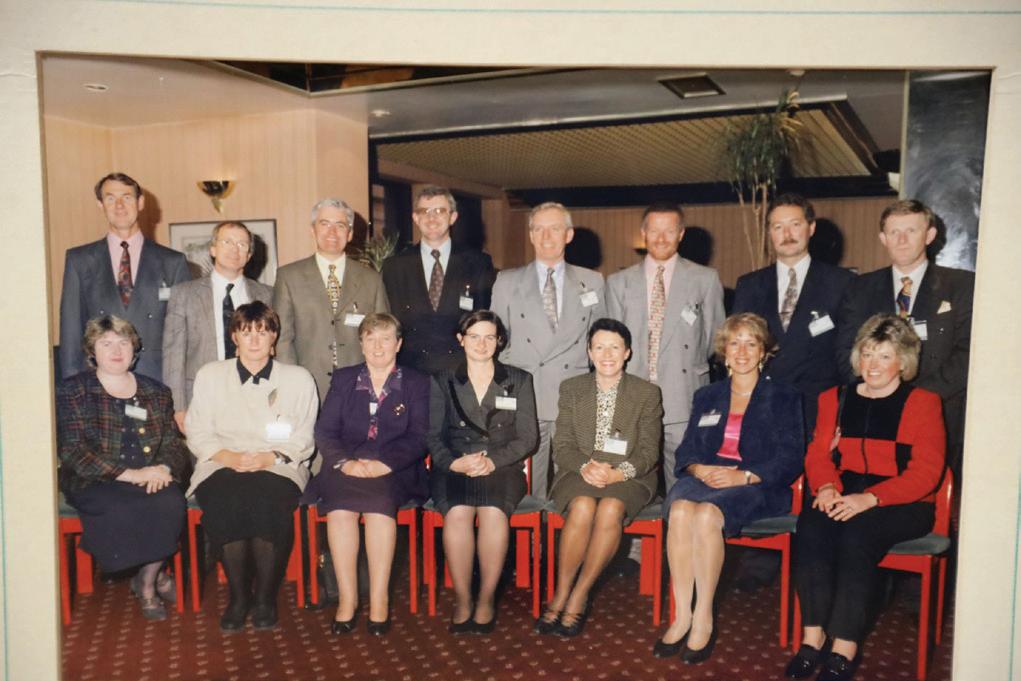
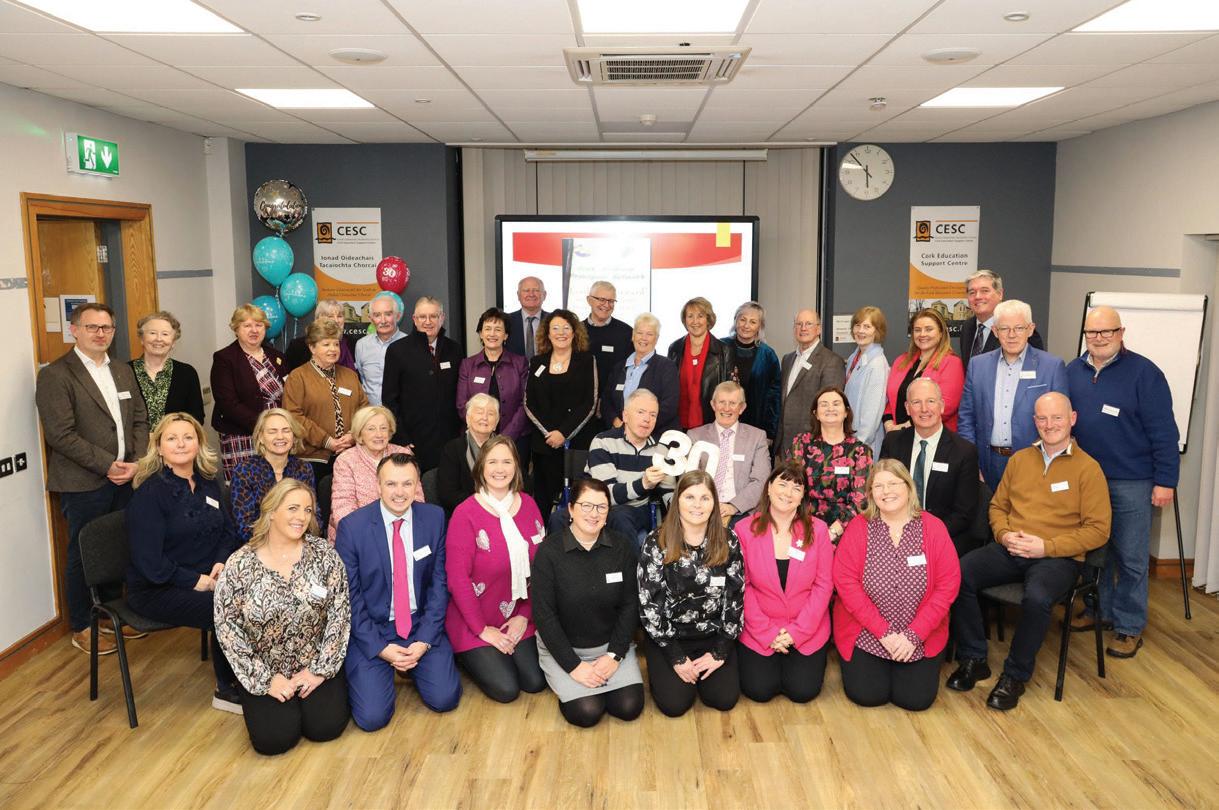
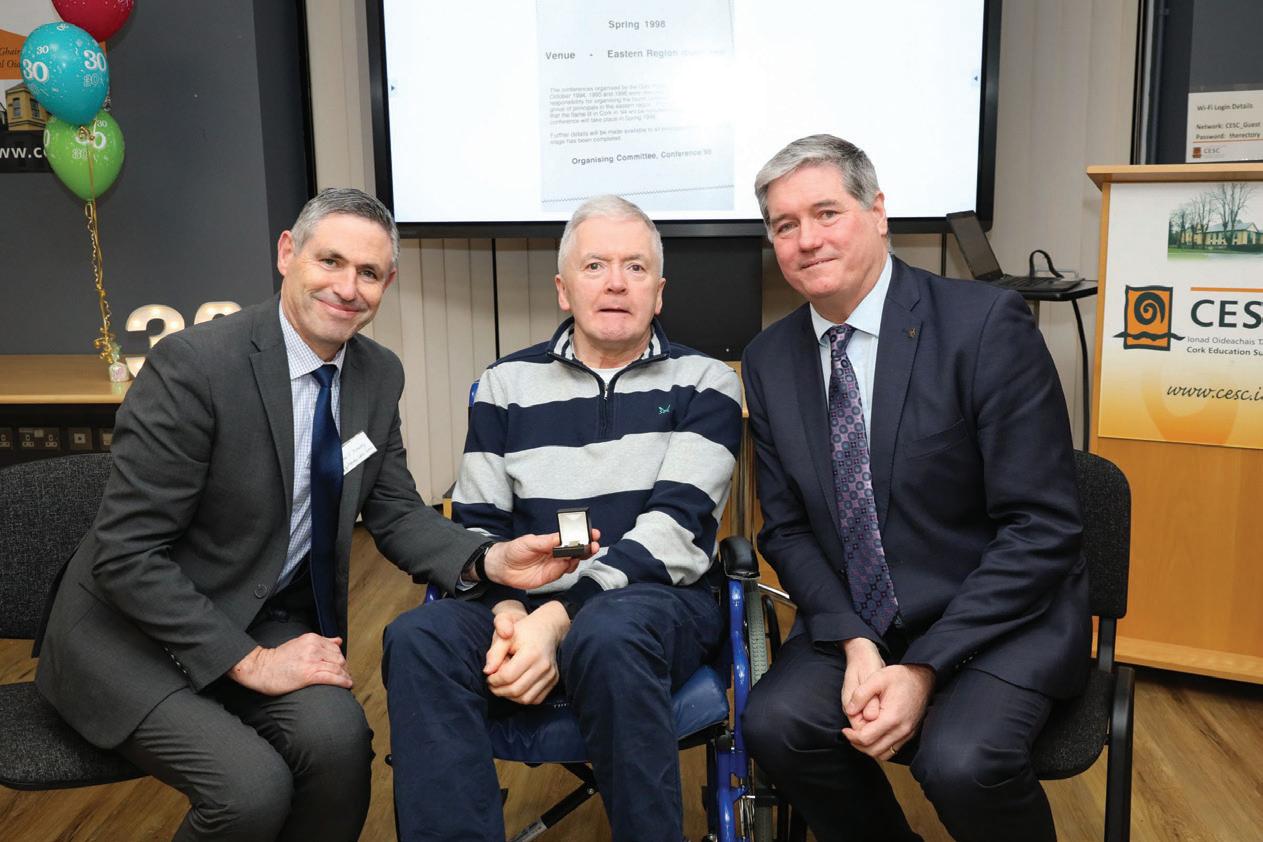
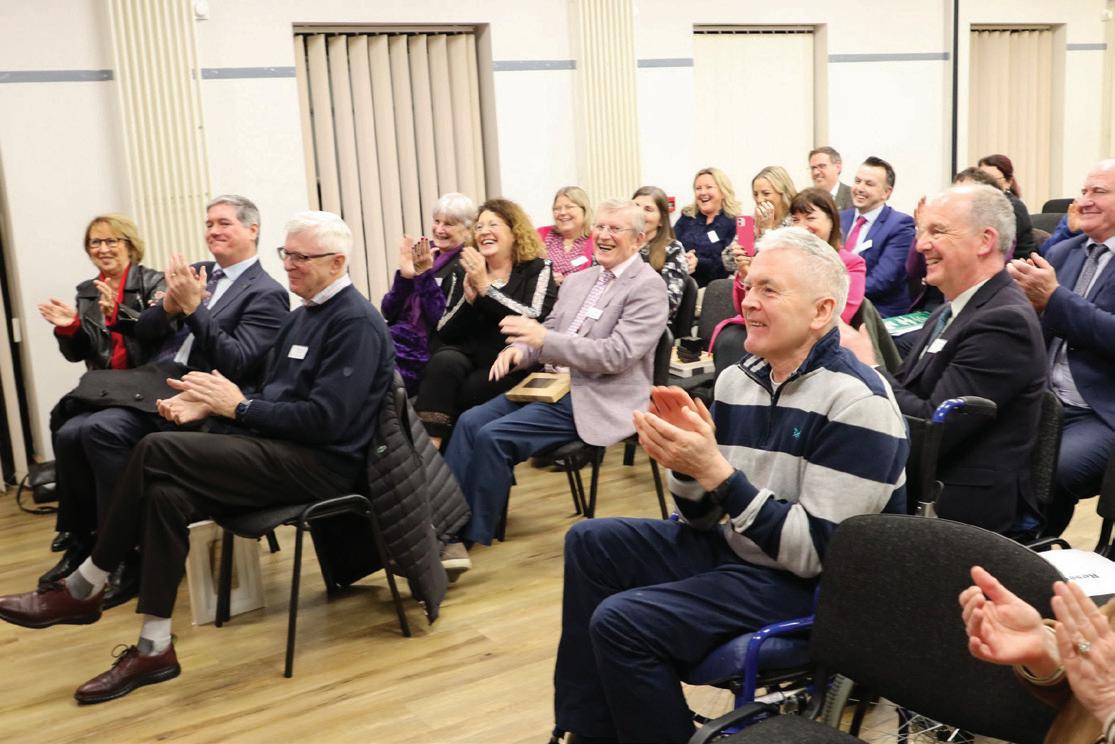

Education Support Centres Ireland
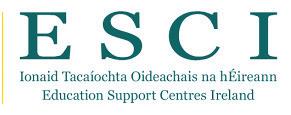
As IPPN marks its silver anniversary, I am reminded of the significant and lasting impact this organisation has had on the landscape of primary education in Ireland. Smaoiním siar ar an ngrúpa ceannródaithe crógach i gCorcaigh (cén áit eile!) cúig bliana is fiche ó shin. Nach uaillmhianach an fhís a bhí acu agus nach iontach an chaoi ar thit sé amach, ag fás agus ag bláthú as an gcéad chéim mhisniúil sin! Since its foundation in 1999, IPPN has grown into a trusted and influential voice, championing the vital role of school leaders and shaping a more progressive, connected and responsive education system for all.
Since its inception, IPPN has been instrumental in raising the profile of school leadership and strengthening its capacity across the country. It has remained unwavering in its mission to support, empower and advocate for primary school leaders. Through professional development opportunities, mentorship programmes, conferences, advocacy work and peer support, IPPN has provided school leaders with the tools, confidence and support they need to meet the significant challenges of their complex roles.
It has ensured that those leading our schools are not isolated but connected and arepart of a strong network grounded in shared purpose and professional solidarity. Indeed, IPPN’s greatest achievement may be the strong community it has cultivated among school leaders across Ireland. This network and its collegial spirit have helped reduce the isolation often felt in leadership roles and has fostered a more collaborative and supportive leadership culture amongst primary school leaders. Crucially, IPPN has been instrumental in
influencing education policy at national level. Its work has ensured that the voice of the principal is clearly heard in key conversations—from curriculum reform to inclusion, leadership sustainability, funding and school governance. At every turn, IPPN has worked to ensure that school leaders are central contributors to national decision-making. Their influence in shaping education policy and prioritising leadership wellbeing has been truly transformative.
In its own commitment to professional learning and peer support, IPPN finds a strong and valued ally in Education Support Centres Ireland (ESCI). While ESCI focuses on the delivery of high-quality professional development and support for all educators, IPPN brings focused expertise to the specific challenges of school leadership, creating a powerful synergy between the two organisations. Together, and often in partnership, our respective organisations work to strengthen the professional fabric of the education system. Each contributes unique value while sharing a common goal of excellence in teaching and learning, all the while continually evolving in response to the ever-changing needs of education, promoting innovation and building capacity across the system.
So, mar fhocal scoir, here’s to a proud legacy, 25 years of leadership, innovation and advocacy. The Irish education system is stronger, more compassionate, and more future-ready because of IPPN. Guíonn baill ESCI gach rath ar an obair fíor-thábhachtach amach rómhaibh – go maire sibh an céad!
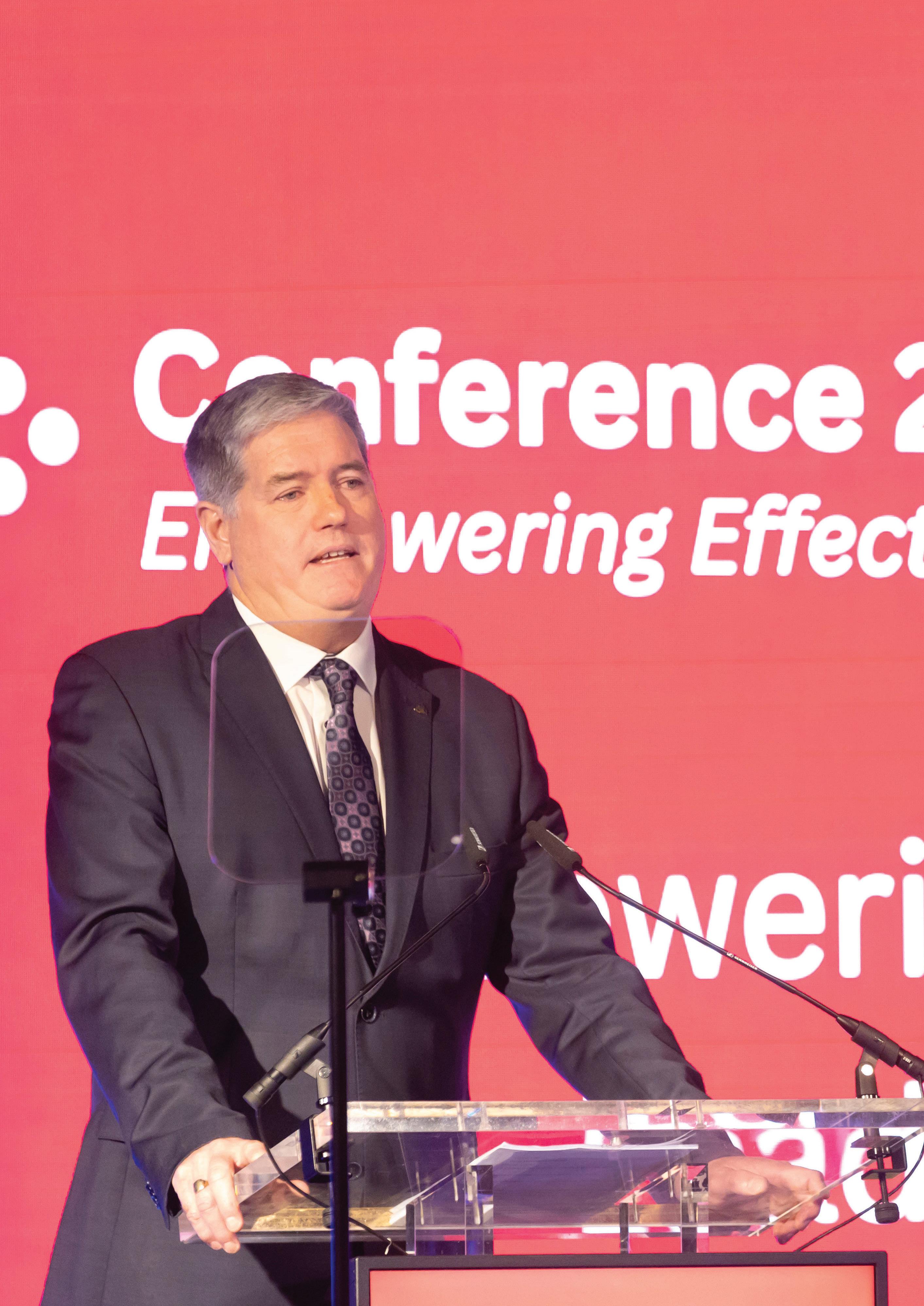
© NOVEMBER 2025 IBAN 978-0-9555050-8-9